Projects

DEAL: DEcentrAlised Learning for automated image analysis and biodiversity monitoring
DEAL will create an application that allows owners of biological image data to participate in decentralised, collaborative networks, where they can le...

Oceanus
Introducing Oceanus – the world’s first long-range autonomous research vessel

WADIM: Water-Associated infectious Diseases in India: digital Management tools
WADIM aims to develop a multi-layered digital tool to map sanitation conditions and occurrence of disease and changes therein, especially in the event...

CHALKY: Coccolithophore controls on ocean alkalinity
The CHALKY project aims to determine how coccolithophore calcium carbonate production, recycling and export from the surface ocean affects air-sea CO2...

C-BLUES: Carbon sequestration in BLUe EcoSystems
The C-BLUES project aims to significantly advance knowledge and understanding of blue carbon ecosystems (BCEs) – seagrasses, tidal marshes, mang...

Ocean ICU: Improving Carbon Understanding
The Horizon EU OceanICU is a five year project that seeks to gain a new understanding of the biological carbon pump and its processes in order to prov...

Monitoring Integrated Digital Support Tool – for CO2 and hypersaline brine monitoring applied to UK
In MIDST-UK, an open source, user friendly, pre-operational Decision Support Tool (DST) will be extended to also included brine release (high salinity...

Smart AUVs for detection and quantification of greenhouse gas seepage in the oceans
SmartAUVs will dramatically improve the monitoring capabilities of AUVs, by applying artificial intelligence (AI) in concert with specialized signal p...

LandSeaLot: Land-Sea interface: Let’s observe together!
Monitoring the complex land-sea interface is critical for managing pollution, carbon fluxes, biodiversity, and other challenges driven by human and cl...

EuroGO-SHIP: Enhancing Ocean Observations
The EuroGO-SHIP project aims to enhance the quality, integration and sustainability of ship-based hydrographic data collection across Europe.

TYRE-LOSS: Lost at Sea – where are all the tyre particles?
Tyre particles are increasingly recognised as a potentially major source of microplastic pollution, yet limited data exists on their accumulation and ...

FOCUS: Future States of the global Coastal ocean: Understanding for Solutions
The Future states Of the global Coastal ocean: Understanding for Solutions (FOCUS) project is working to understand how climate change and human activ...

BIO-PLASTIC-RISK: Biodegradable Bioplastics – Assessing Environmental Risk
Biodegradable bioplastics (BBPs) offer promising solutions to the global plastic pollution challenge. However, our understanding of their fate in the ...

HyperBOOST – Hyperspectral Bio-Optical Observations Sailing on Tara
Marine ecosystem health in coastal areas can be challenging to monitor using Earth Observation due to their optical complexity. HyperBOOST will addres...

ProBleu: Promoting ocean and water literacy in school communities
ProBleu aims to mobilise and engage students, school communities, and the wider community across the EU and associated countries to enhance understand...

AgZero+
Plymouth Marine Laboratory (PML) is a partner in a major five-year £13.8 million research programme, named “AgZero+’, to support the UK&#...

INSITE Synthesis
With the development of the blue economy, and shift to offshore renewable energy thousands of man-made structures (MMS) have been installed around the...

EcoNex – The marine energy, biodiversity and food nexus
The UK has plans to increase offshore wind capacity to 50 GW by 2030. This will require an understanding of the trade-offs between climate change and ...

Marine Social and Natural Capital Laboratory
Launching the first Marine Social and Natural Capital Laboratory of its kind, linking social and natural sciences enabling data for ground-breaking re...

APICS
The Automated, in situ Plankton Imaging and Classification System (APICS) will radically improve the understanding of how environmental changes are af...

Environmental Monitoring at Calstock flood defence improvement scheme
Measuring the effects of new Calstock intertidal wetland on water biogeochemistry

PELAgIO – Physics-to-Ecosystem Level Assessment of Impacts of Offshore Windfarms
The PELAgIO project will explore the impacts of offshore wind development across all levels of the food chain, looking at the predicted changes across...

UKERC – Energy, Environment, and Landscapes theme
This theme will apply ecosystem service and natural capital approaches to understand the environmental implications of changes in the UK energy system...

MOET – Managing the Environmental Sustainability of the Offshore Energy Transition
MOET will assess the environmental sustainability of offshore wind, blue and green hydrogen, and carbon capture and storage for selected test areas of...

TerraFIRMA: Future Impacts, Risks and Mitigation Actions in a changing Earth system
Global climate change is the leading environmental challenge facing humanity today. Reliable guidance on the risks and impacts of future climate chang...

NextOcean
NextOcean co-developing a suite of Earth observation-based services for sustainable fisheries and aquaculture.

Biodiversity in the Open Ocean: Mapping, Monitoring and Modelling (BOOMS)
Increasing pressure due to anthropogenic drivers is leading to a reduction of global biodiversity and its associated benefits at the planetary scale. ...

MSPACE: Marine Spatial Planning Addressing Climate Effects
MSPACE is a 3 year project designed to drive forward the capability of the four UK nations in designing and implementing climate-smart marine spatial ...

Biodiversity of the Coastal Ocean: Monitoring with Earth Observation (BiCOME)
BiCOME will develop a better understanding of how the community structure and function of coastal ecosystems will respond to the anthropogenic and nat...

COMFORT: Our common future ocean in the Earth system – quantifying coupled cycles of carbon, oxygen, and nutrients for determining and achieving safe operating spaces with respect to tipping points
COMFORT will identify tipping point in future marine ecosystems induced by climate change and the associated multiple stressors. The impact of these t...

Water-ForCE: Water scenarios For Copernicus Exploitation
Water-ForCE is co-creating a Roadmap for the development of the next phase of Copernicus Inland Water Services with the space sector, research communi...

SEAMLESS: Services based on Ecosystem data AssiMiLation: Essential Science and Solutions (SEAMLESS)
SEAMLESS aims at improving the current European capability to simulate and predict the state of marine ecosystems.

FutureMARES: Climate Change and Future Marine Ecosystem Services and Biodiversity
FutureMARES is examining the relations between climate change, marine biodiversity and ecosystem services.

FRONTAL: Satellite FRONTs for detection of Anthropogenic plastic Litter
Fronts in coastal and oceanic regions are hot-spots for rich and diverse marine life, where floating marine debris also tends to accumulate. FRONTAL i...

SCIPPER: Shipping Contributions to Inland Pollution Push for the Enforcement of Regulations
The SCIPPER project deploys state-of-the-art and next-generation measurement techniques to monitor emissions of vessels under normal operation.

DREAMS – Decommissioning – Relative Effects of Alternative Management Strategies
The highly integrated DREAMS project is designed to bring together information about the effects of man-made structures on the marine ecosystem and th...

Mission Atlantic
Mission Atlantic is the first ever initiative to develop and systematically apply Integrated Ecosystem Assessments (IEAs) at the Atlantic basin scale....

Detection and Attribution of Regional greenhouse gas Emissions in the UK
DARE-UK is developing systems to estimate greenhouse gas emissions to improve the accuracy of the UK’s greenhouse gas emissions inventory report...

South Asian Nitrogen Hub
The South Asian Nitrogen Hub is a pioneering UK-South Asia research partnership to enable South Asia to adopt and champion a strategic approach to nit...

Atlantic Ecosystem Assessment, Forecasting and Sustainability (AtlantECO)
AtlantECO is working to understand the human impacts on the marine ecosystems and processes in the Atlantic. The main focus of the project is to deter...

Copernicus Evolution: Research for harmonised and Transitional water Observation (CERTO)
CERTO will provide solutions to harmonise water quality products across a continuum of oceans, seas, coasts, estuaries, lagoons, rivers and lakes, to ...

Act on Offshore Monitoring (ACTOM)
ACTOM developed the capability for cost-effective monitoring of offshore carbon storage projects as part of Carbon Capture Utilisation and Storage (CC...

The Economics of Marine Plastic Pollution: What are the Benefits of International Cooperation
The Economics of Marine Plastic Pollution: What are the Benefits of International Cooperation? project is calculating the economic costs of the enviro...

Biological Pump and Carbon Exchange Processes (BICEP)
Project start: January 2020 – currently ongoing The ocean carbon cycle is a vital part of the global carbon cycle. It has been estimated that a...

Pathways Of Dispersal for Cholera And Solution Tools (PODCAST)
Image courtesy of the World Health Organization. Focusing on the northern Indian Ocean, a multidisciplinary team of scientists from India, Japan and t...

Sentinel-3 Mission Performance Centre (S3MPC)
The European Space Agency (ESA) launched the Sentinel-3A satellite in February 2016 and Sentinel-3B in April 2018, as the start of a long-term program...

Removing marine microplastics with mussel power
Removing marine microplastics with mussel power is a one-year feasibility study funded by Waitrose Plan Plastic to develop an ecological solution to m...

Portugal Twinning for Innovation and Excellence in Marine Science and Earth Observation (PORTWIMS)
Through innovation, collaboration and capacity building, PORTWIMS aims to enhance the science, technology and profile of marine science at the Faculty...

Artificial Light in Coastal Ecosystems (ALICE)
Artificial light at night (ALAN) can now be detected above 22% of the world’s coasts, and will dramatically increase as coastal human population...

Sea State CCI
Sea State CCI is part of the European Space Agency’s programme to deliver long-term homogeneous datasets covering many of the recognised Essenti...

War on tiny giants – do viruses impact Pelagibacterales genotype dynamics in the Western English Channel
The oceans, and in particular coastal regions, are responsible for about half of all global photosynthesis as marine bacteria and algae capture sunlig...

Quantifying the contribution of sympagic versus pelagic diatoms to Arctic food webs and biogeochemical fluxes (MOSAiC SYM-PEL)
At the base of the Arctic food web, there are three major primary producers: small flagellates, diatoms living in open water (pelagic) and diatoms gro...

Atlantic Meridional Transect Ocean Flux from Satellite Campaign (AMT4OceanSatFlux)
The AMT4OceanSatFlux project will measure the flux of carbon dioxide (CO2) between the atmosphere and the ocean utilising a state-of-the-art eddy cova...

Atmospheric Composition and Radiative forcing changes due to UN International Ship Emissions regulations (ACRUISE)
Ship emissions are significant sources of polluting aerosols in coastal regions, causing hundreds of thousands of premature deaths per year globally. ...

Optical data modelling and assimilation (OPTIMA)
OPTIMA will advance the capacity of the Copernicus Marine Environment Monitoring Service (CMEMS) to accurately assess the state of the marine environm...

Changing Arctic Carbon cycle in the cOastal Ocean Near-shore (CACOON)
The Arctic Ocean is a rapidly changing environment, with rising temperatures leading to an ongoing decline in sea ice and shifting conditions for mari...
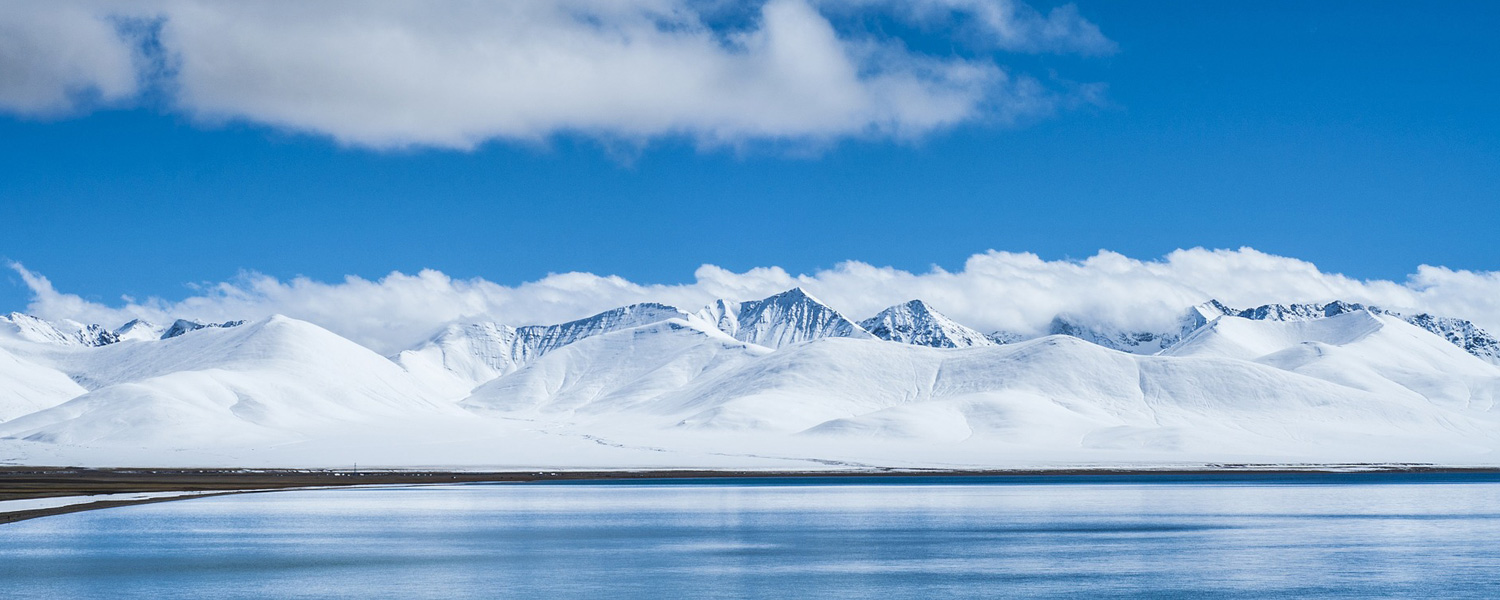
Pathways and emissions of climate-relevant trace gases in a changing Arctic Ocean (PETRA)
The Arctic Ocean is a rapidly changing environment, with rising temperatures leading to an ongoing decline in sea ice and shifting conditions for mari...

Is bacterial DMS consumption dependent on methylamines in marine waters?
Dimethylsulfide (DMS) is a key ingredient in the cocktail of gases that makes up the ‘smell of the sea’. Around 300 million tons of DMS ar...

Multiscale Observation Networks for Optical monitoring of Coastal waters, Lakes and Estuaries (MONOCLE)
Funded by EU H2020, MONOCLE brings together 12 partners from across Europe to create sustainable in situ observation solutions for Earth Observation (...

Combining Autonomous observations and Models for Predicting and Understanding Shelf seas
CAMPUS is a three-year project (2018–2021), funded by the Natural Environment Research Council, combining state-of-the-art computer modellin...

Microbial carbon pump in a changing ocean: building models for the future
This project will conduct laboratory experiments to provide the physiological information and understanding needed to develop the first ever model des...

Rehabilitation of Vibrio-infested waters of Lake Vembanad, funded under the India-UK Water Quality programme (REVIVAL)
Lake Vembanad is the largest body of water in Kerala, India, stretching almost 100km in length and spanning an area of over 2000km2. Its shores are ho...

GCRF Blue Communities
GCRF Blue Communities is a 4 year research capacity-building programme for marine planning in East and South-East (E/SE) Asia, funded by UK Research a...

Resolving Climate Impacts on shelf and CoastaL sea Ecosystems (ReCICLE)
Shelf and coastal seas provide vital services for society, notably food, from fish, and climate regulation, through their role in drawing down and sto...

N-OSmolytes Across the Surface Southern Ocean: Environmental Drivers and Bioinformatics
Marine organisms accumulate osmolytes in response to stress and release them when environmental conditions change due to viral attack, grazing or chan...

Ocean color and biogeochemistry (CBIOMES)
Earth observation of ocean color remains our only window into the pelagic ecosystem at synoptic scales. It is a rich source of data, and chlorophyll c...

Pressure control and conformance management for safe and efficient CO storage – accelerating CCS technologies
Pre-ACT is a €5.2M project led by the Norwegian research institute Sintef. The objective of Pre-ACT is to equip operators and regulators of c...

An Alternative Framework to Assess Marine Ecosystem Functioning in Shelf Seas (AlterEco)
AlterEco aims to develop a new observational framework based upon the latest marine autonomous systems (MAS) to improve the spatio-temporal understand...
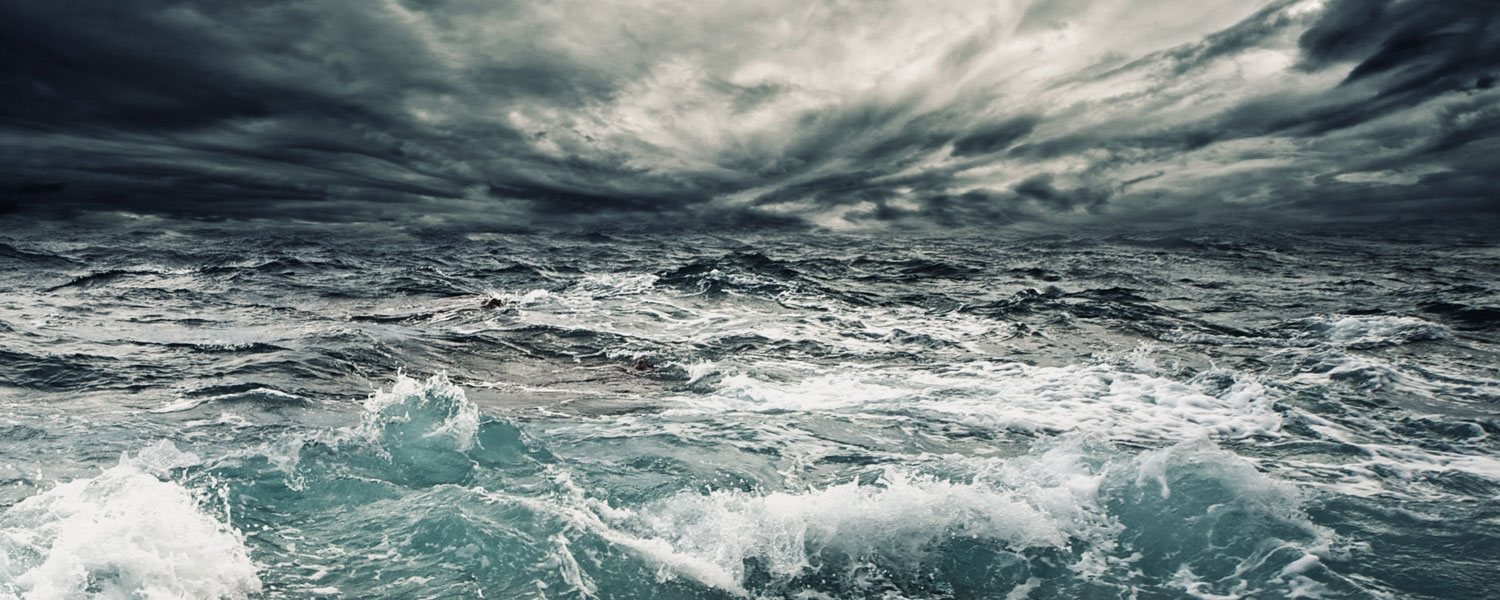
MyCOAST
MyCOAST will develop risk management tools and a Coordination Atlantic Coastal Operational Observatory to improve coastal monitoring and forecasting t...

Addressing Challenges of Coastal Communities through Ocean Research for Developing Economies (ACCORD)
The coastal and marine environments of South East Asia and the Western Indian Ocean (the regional foci of ACCORD) are rich and diverse, possessing hig...

A multidisciplinary study of DMSP production and lysis – from enzymes to organisms to process modelling
A billion tonnes of the dimethylsulfoniopropionate (DMSP) is made each year by marine phytoplankton, seaweeds, corals, coastal plants and marine bacte...

PRIMROSE: Predicting Risk and Impact of Harmful Events on the Aquaculture Sector
The aquaculture sector of Europe’s Atlantic Arc is negatively impacted by the effects of harmful blooms and microbial pathogens. The PRIMROSE pr...

S-3 EUROHAB – Sentinel products for detecting EUtROphication and Harmful Algal Bloom events
S-3 EUROHAB will use the latest satellite technology to improve the way water quality and harmful algal blooms (HABs) are monitored in the English Cha...

The Changing Arctic Ocean Seafloor (ChAOS) – how changing sea ice conditions impact biological communities, biogeochemical processes and ecosystems
The ChAOS project will focus on how climate change and diminishing sea ice affects impact biological communities, biogeochemical processes and ecosyst...

Land ocean carbon transfer (LOCATE)
Our climate, and hence our lifestyle and economy, is profoundly influenced by the concentration of carbon dioxide in our atmosphere, which regulates t...

North Atlantic climate system integrated study (ACSIS)
Major changes are occurring across the North Atlantic climate system: in ocean and atmosphere temperatures and circulation, in sea ice thickness and e...

SOLSTICE-WIO: Sustainable Oceans, Livelihoods and food Security Through Increased Capacity in Ecosystem research in the Western Indian Ocean
SOLSTICE – WIO is a four year collaborative GCRF project that aims to strengthen capacity in the Western Indian Ocean (WIO) region to addres...

Processes Influencing Carbon Cycling: Observations of the Lower limb of the Antarctic Overturning (PICCOLO)
The vast, remote seas which surround the continent of Antarctica are collectively known as the Southern Ocean. This region with its severe environment...

UK Earth System Modelling (UKESM)
Global climate change is one of the leading environmental threats facing mankind. To develop appropriate mitigation and adaptation strategies requires...

Ocean Regulation of Climate through Heat and Carbon Sequestration and Transports (ORCHESTRA)
Climate change is one of the most urgent issues facing humanity and life on Earth. Better predictions of future climate change are needed, so that mea...

South West Partnership for Environment & Economic Prosperity (SWEEP)
SWEEP is a new initiative that will help deliver economic and community benefits to the South West, whilst also protecting and enhancing the area̵...

Coral Communities: Building Socio-Ecological Resilience to Coral Reef Degradation in the Islands of the Western Indian Ocean.
Improving the resilience of communities and coral reefs to changes anticipated as a result of climate change is an issue of huge global importance. Hu...

Tools for Assessment and Planning of Aquaculture Sustainability (TAPAS)
The Tools for Assessment and Planning of Aquaculture Sustainability (TAPAS) project is working to create cost-efficient management tools and practices...

Strategies for Environmental Monitoring of Marine Carbon Capture and Storage (STEMM-CCS)
STEMM-CCS was an ambitious multi-disciplinary project to deliver new approaches, methodologies and tools for the safe operation of offshore carbon dio...

ADdressing Valuation of Energy and Nature Together (ADVENT)
Advent is a UK Energy Research Centre Grand Challenge project exploring future UK low carbon energy pathways and quantifying their differing implicati...

ShellEye
The ShellEye project will use Earth observation data from satellites and environmental data, such as weather forecasts, to monitor and forecast water ...

Sea level Climate Change Initiative (CCI)
The main objective of the sea level CCI project is to produce and validate a Sea Level Essential Climate Variable (ECV) product. It represents the fir...

Western Channel Observatory (WCO)
The Western Channel Observatory (WCO) is an oceanographic time-series and marine biodiversity reference site in the Western English Channel. In-situ m...

NERC Earth Observation Data Analysis and Artificial-Intelligence Service (NEODAAS)
Plymouth Marine Laboratory have provided satellite data to support researchers since the 1990s and the range of services offered has been constantly e...

ERSEM (European Regional Seas Ecosystem Model)
An ecosystem model is an abstract, usually mathematical, representation of an ecological system, which is studied to gain understanding of the real sy...

Atlantic Meridional Transect (AMT)
The Atlantic Meridional Transect (AMT) multidisciplinary programme, which undertakes biological, chemical and physical oceanographic research during a...

NERC Airborne Research Facility (NERC-ARF)
Airborne remote sensing provides an efficient method for the rapid collection of data over a specified area, as a cost effective means of monitoring t...
News

NERC science powers £3.3 billion boost to UK offshore wind: with support from PML expertise
A new study commissioned by the Natural Environment Research Council (NERC) has revealed that public investment in environmental science has delivered...

Harnessing plankton research to inform next generation climate models
An international publication led by Plymouth Marine Laboratory highlights how upgrading current plankton models is critical to understanding the scale...
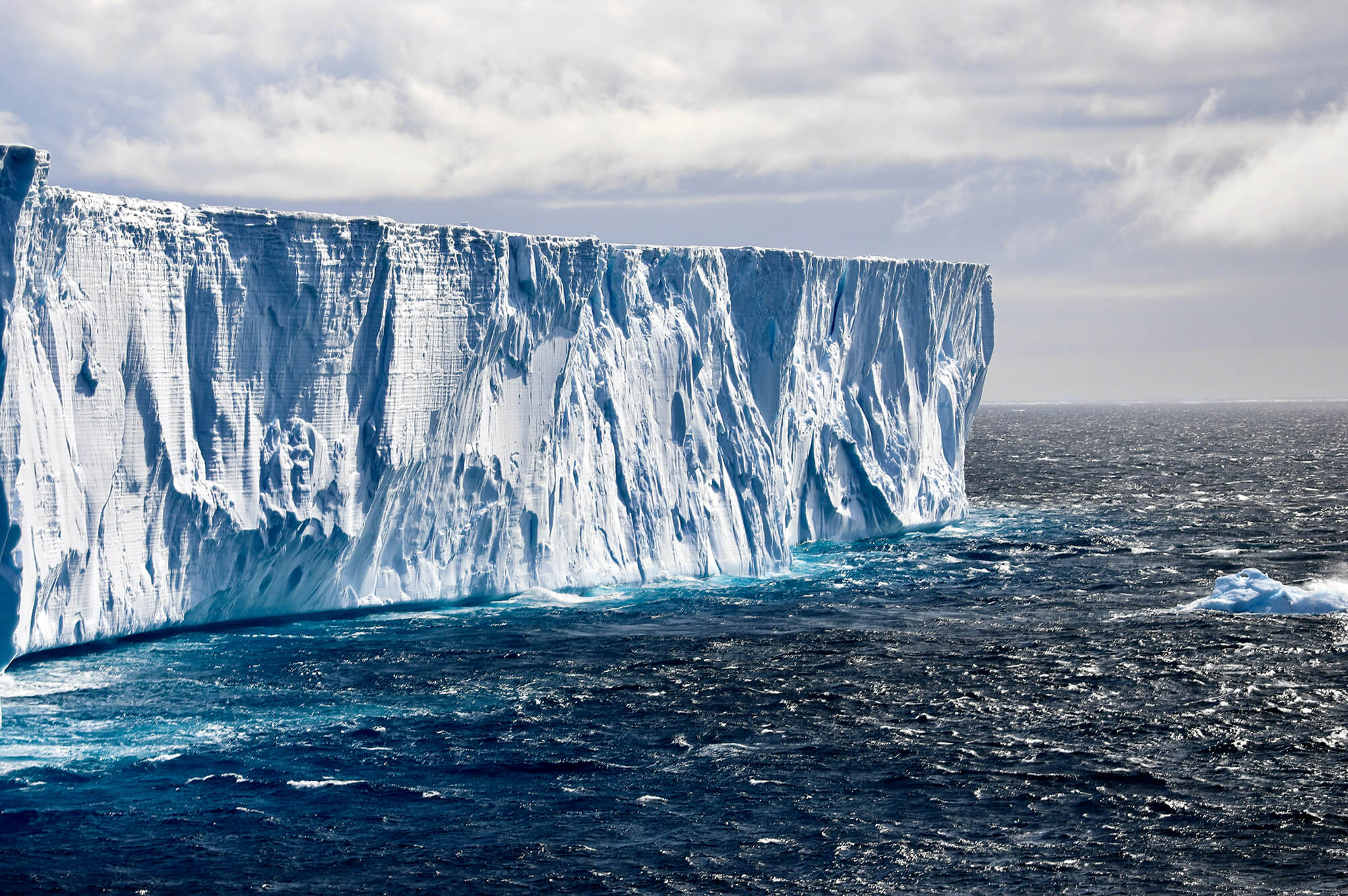
Tiny ocean migrants play a massive role in Southern Ocean carbon storage
New study reveals for the first time that zooplankton migration contributes significantly to carbon sequestration in the Southern Ocean—a process ov...
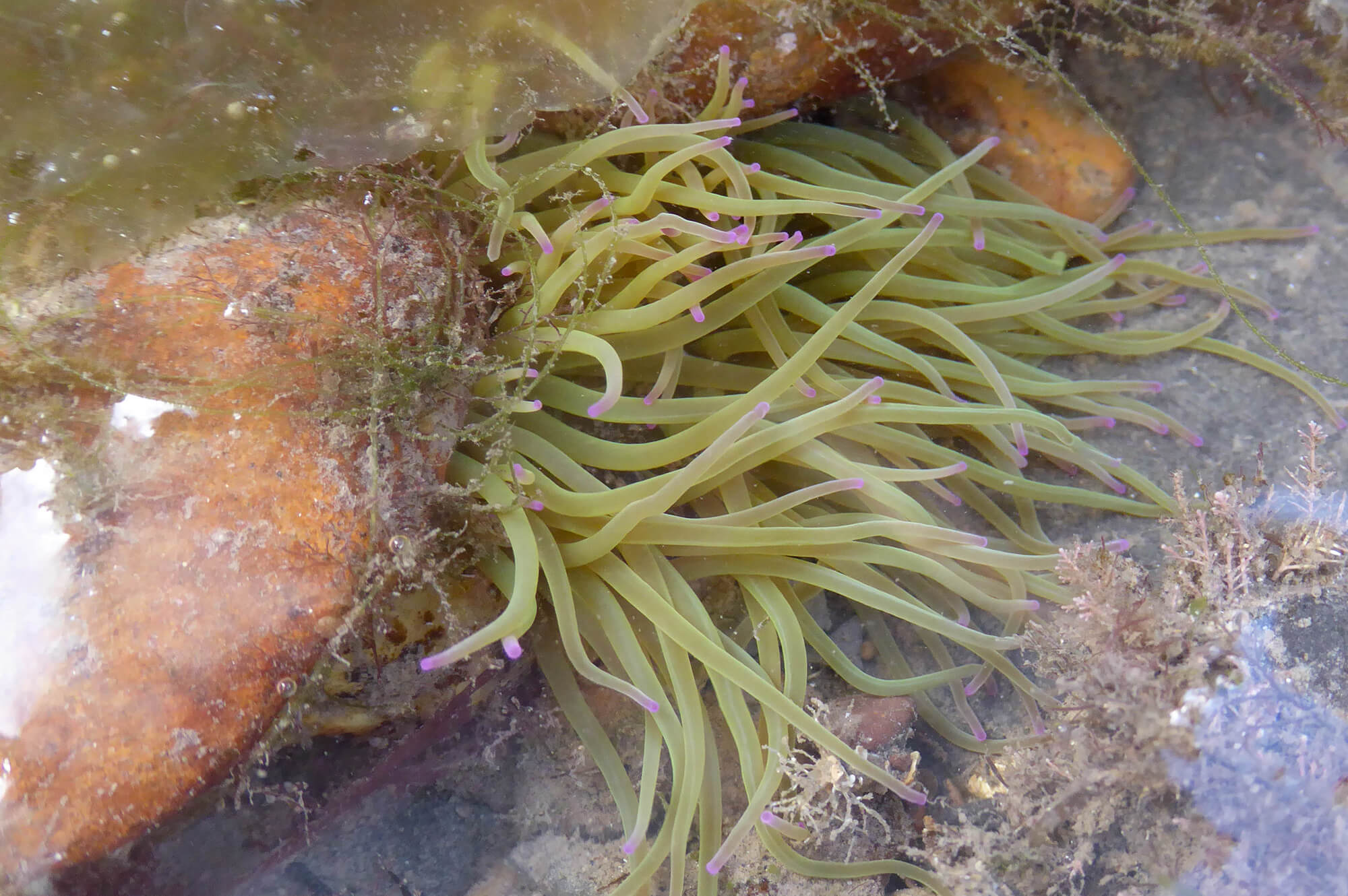
Light threat is not so light for some static marine organisms
New study reveals harmful influence of artificial light at night on the immobile species, the snakelocks anemone. This beautiful sea creature provides...
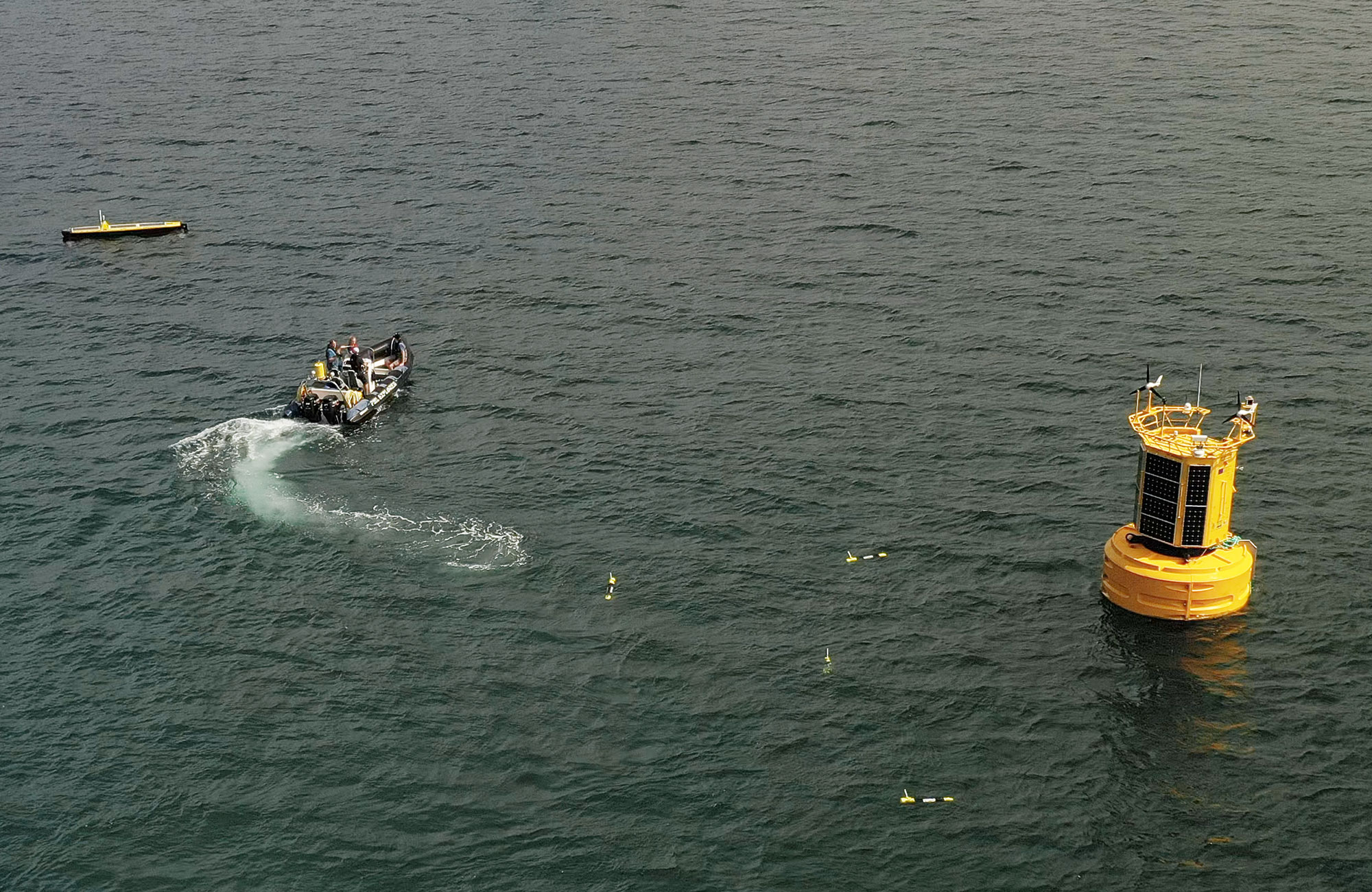
Shaping the future of coastal autonomy
Today, national and international experts from science, policy and industry came together at Plymouth Marine Laboratory to help shape the future of co...
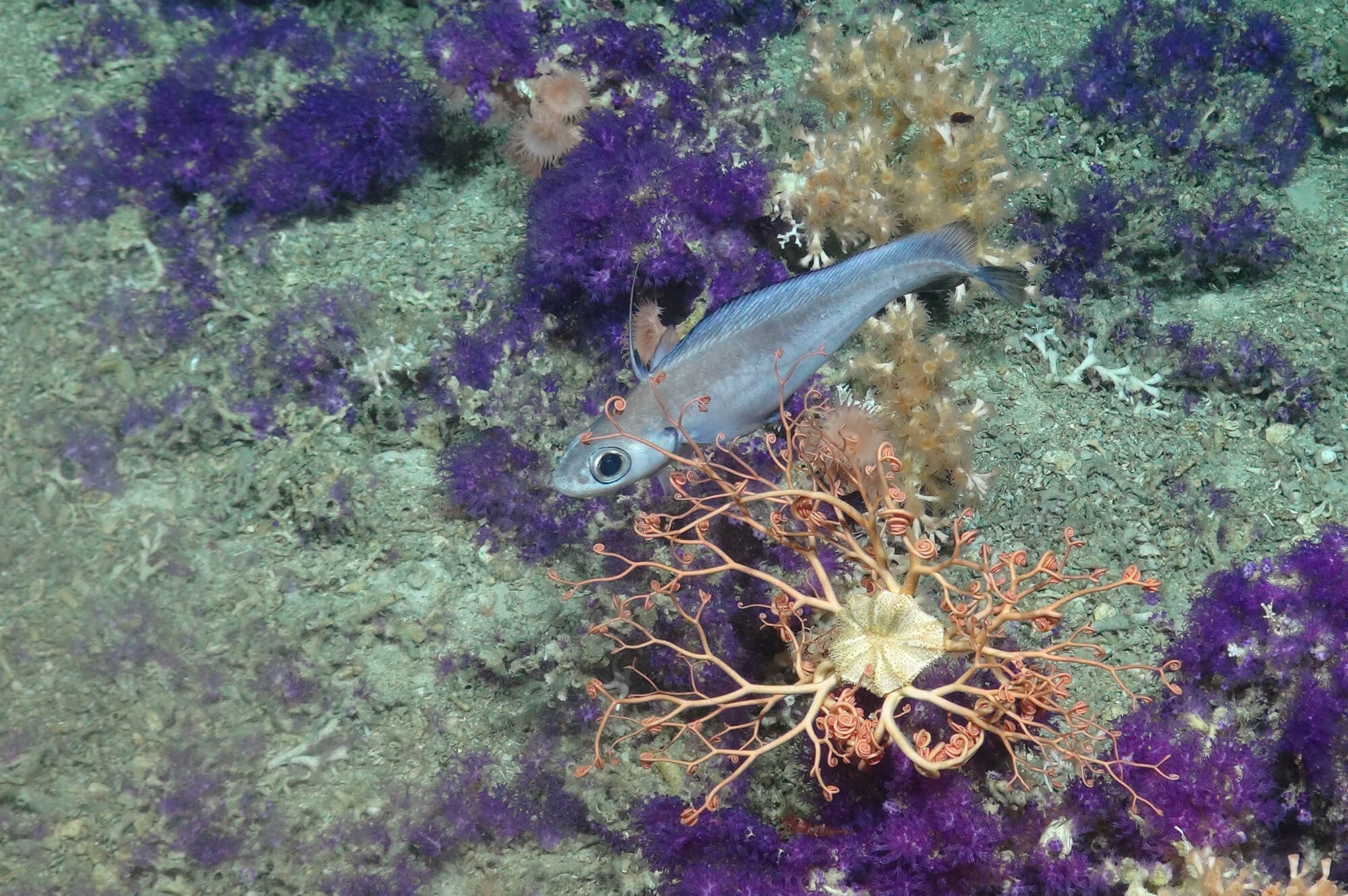
Mapping the Gaps: New Global Assessment Reveals Stark Biases in Ocean Biodiversity Data
Despite decades of ocean exploration, we still lack basic answers to one of the most fundamental ecological questions: where is marine life found, and...
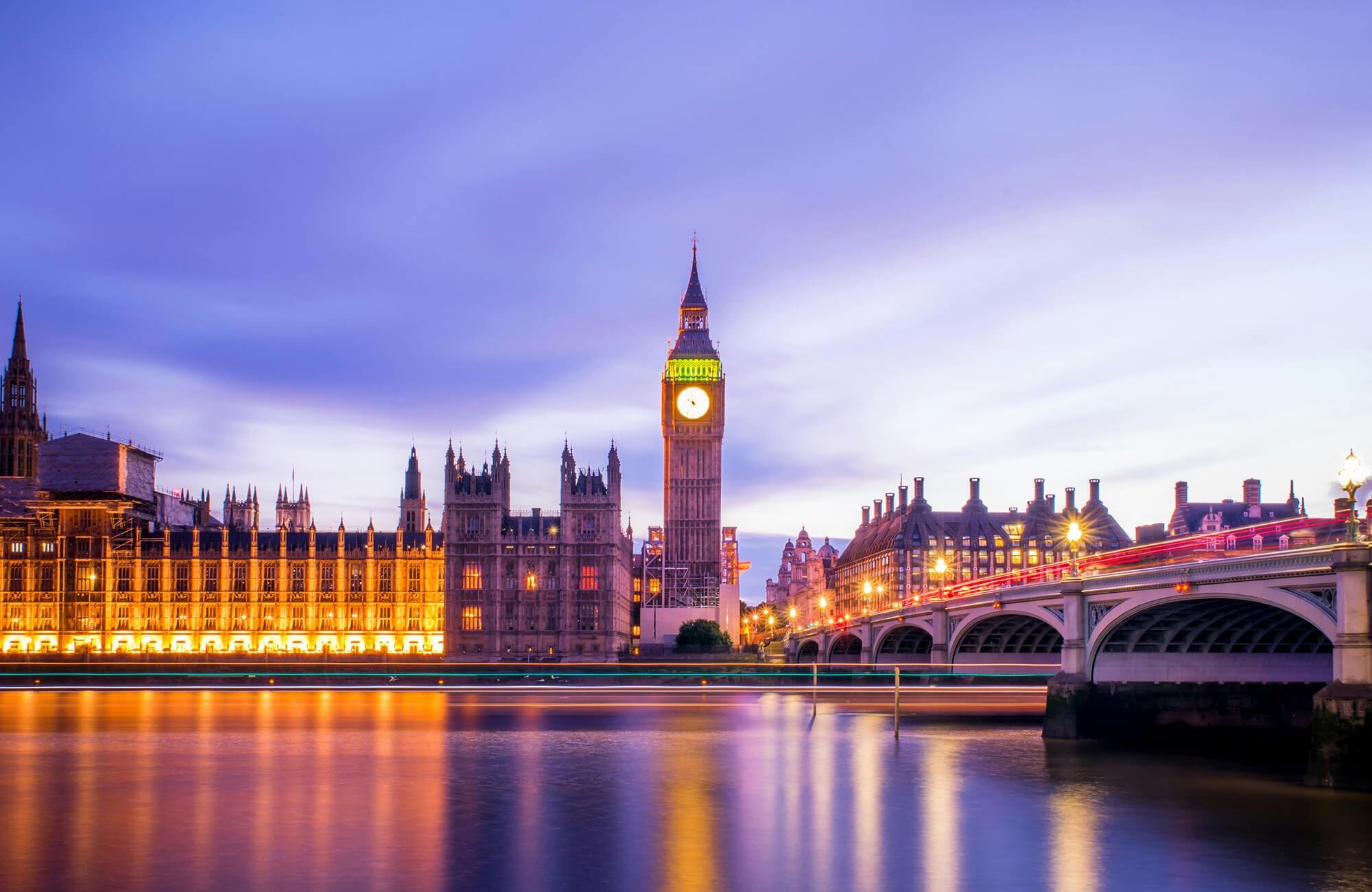
Reflections of a POST Fellow
UK Houses of Parliament. Shreyas Sane | Unsplash At the start of 2025, PhD researcher with the University of Plymouth and Plymouth Marine Laboratory, ...
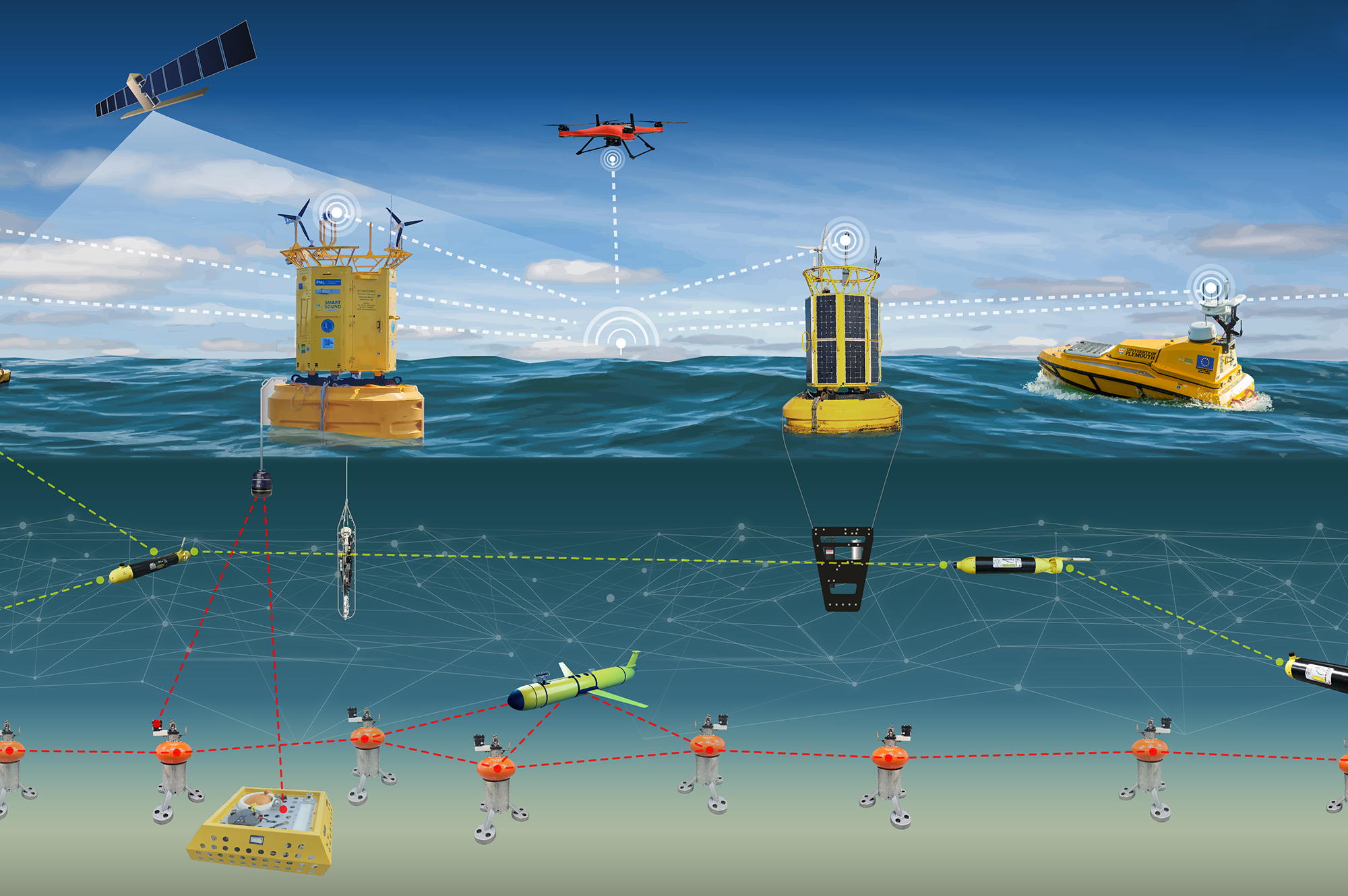
Plymouth is to be the national centre for marine autonomy
Leveraging its unique strengths in marine autonomy, the city is already home to leading initiatives such as the PML co-led National Centre for Coastal...
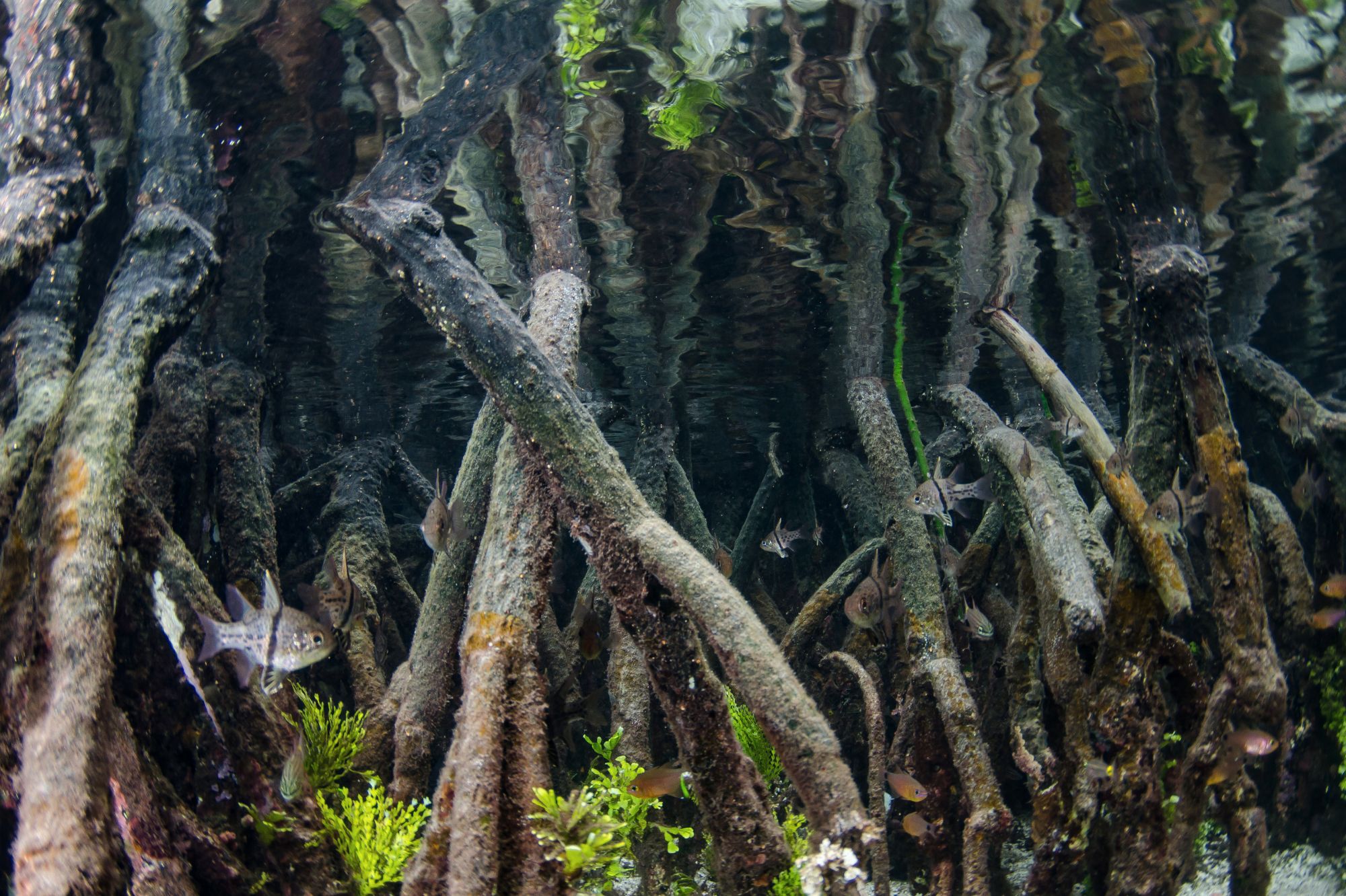
PML Joins Global Call for Enhanced Protection and Restoration of Blue Carbon Ecosystems at UNOC3
Prof Ana Queirós is part of UN Ocean Decade Global Ocean Blue Carbon Programme (GO-BC) who made the intervention

Challenges for High Seas Treaty implementation highlighted at UNOC3
PML’s Prof Matt Frost chairs a roundtable of international experts as BBNJ ratifications gather momentum
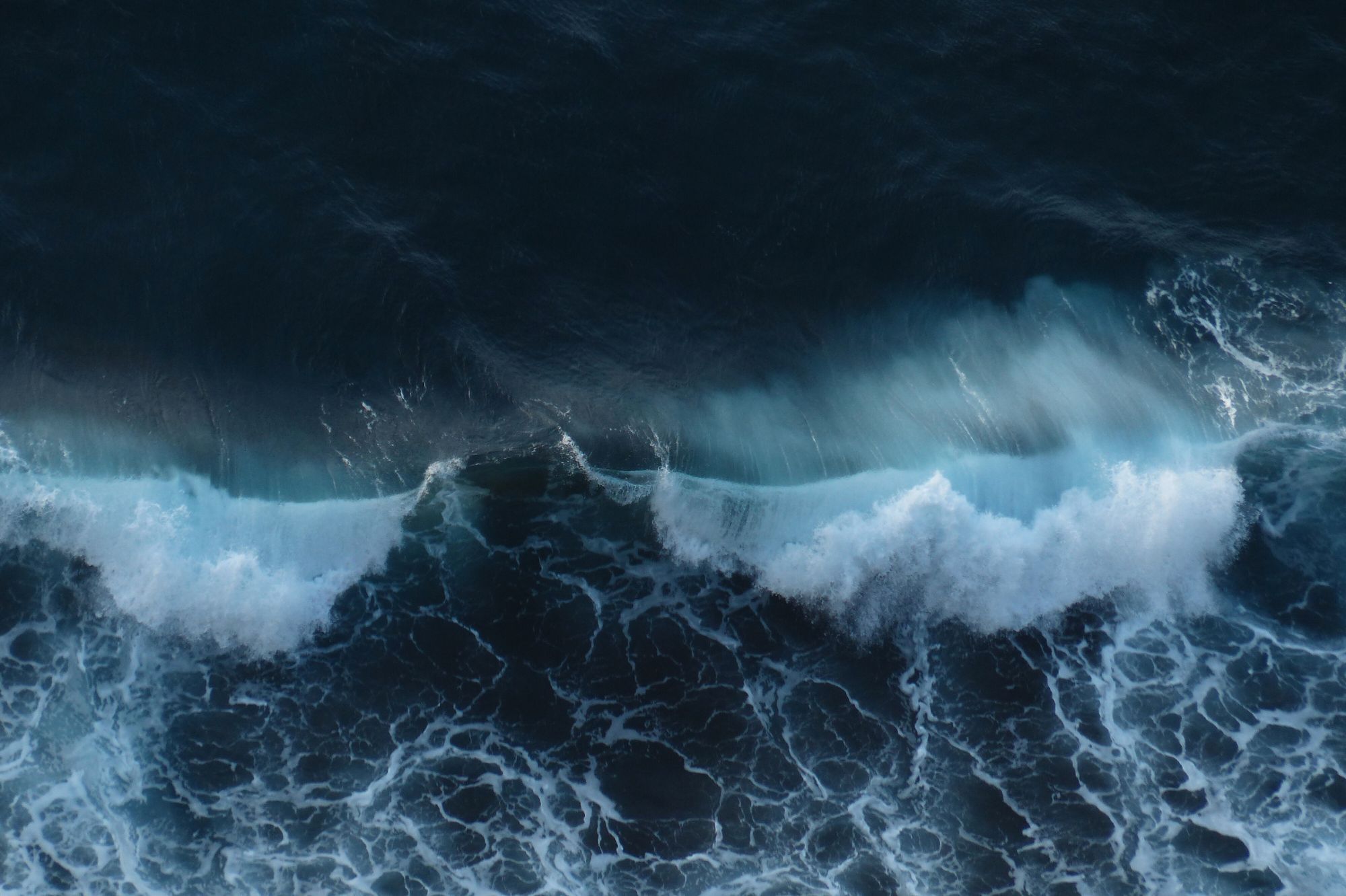
Singular Mission to Chart Atlantic’s Deep-Sea Biodiversity in focus at UNOC3
More than 40 international researchers joined a gathering in Nice to discuss Atlantic Ocean deep sea life mapping initiative, led by PML’s Prof Kerr...
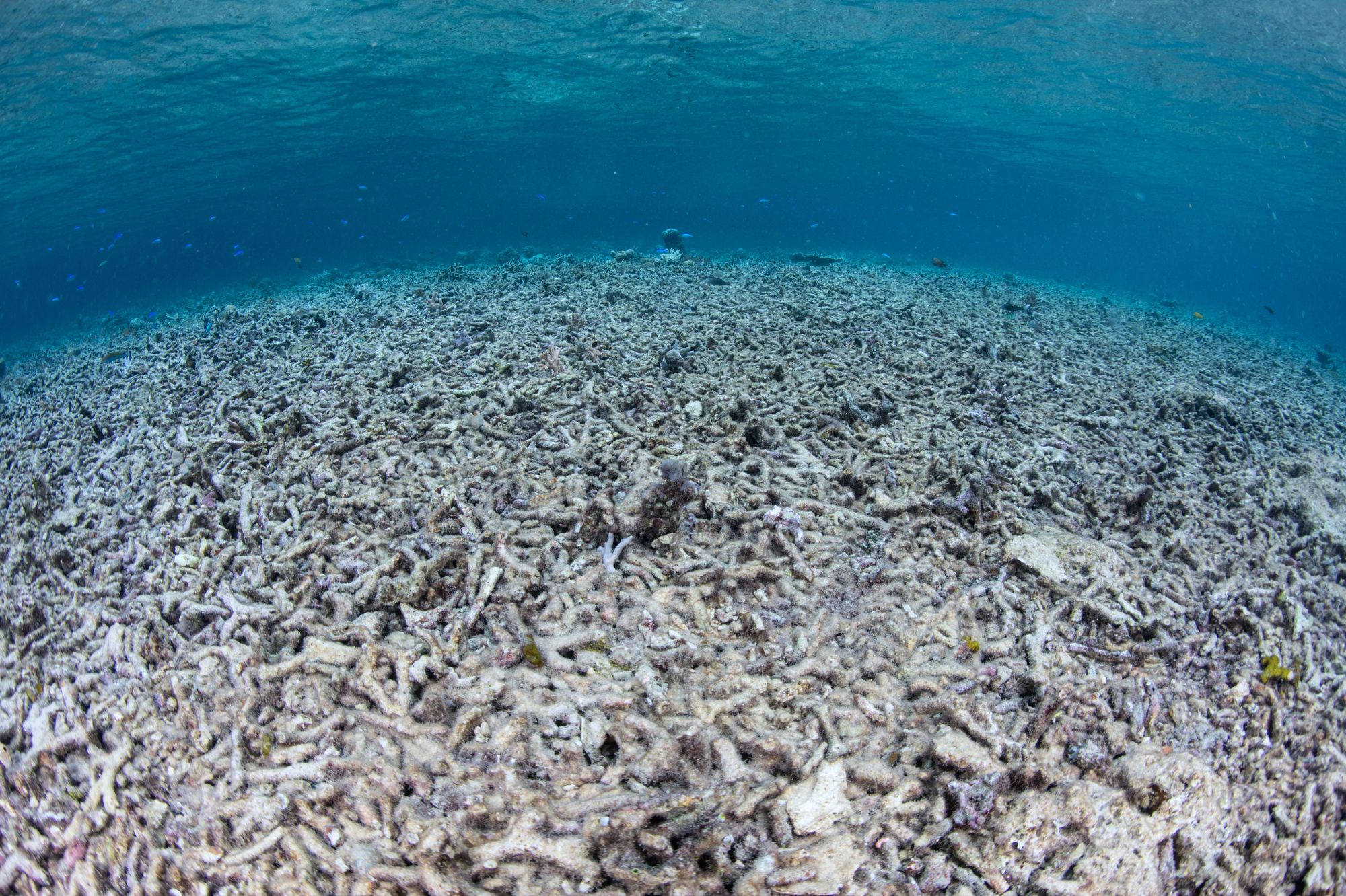
Ocean acidification more advanced than previously thought
New research co-led by PML, NOAA, CIMERS OSU and the University of Maryland provides new evidence on the severity of ocean acidification.
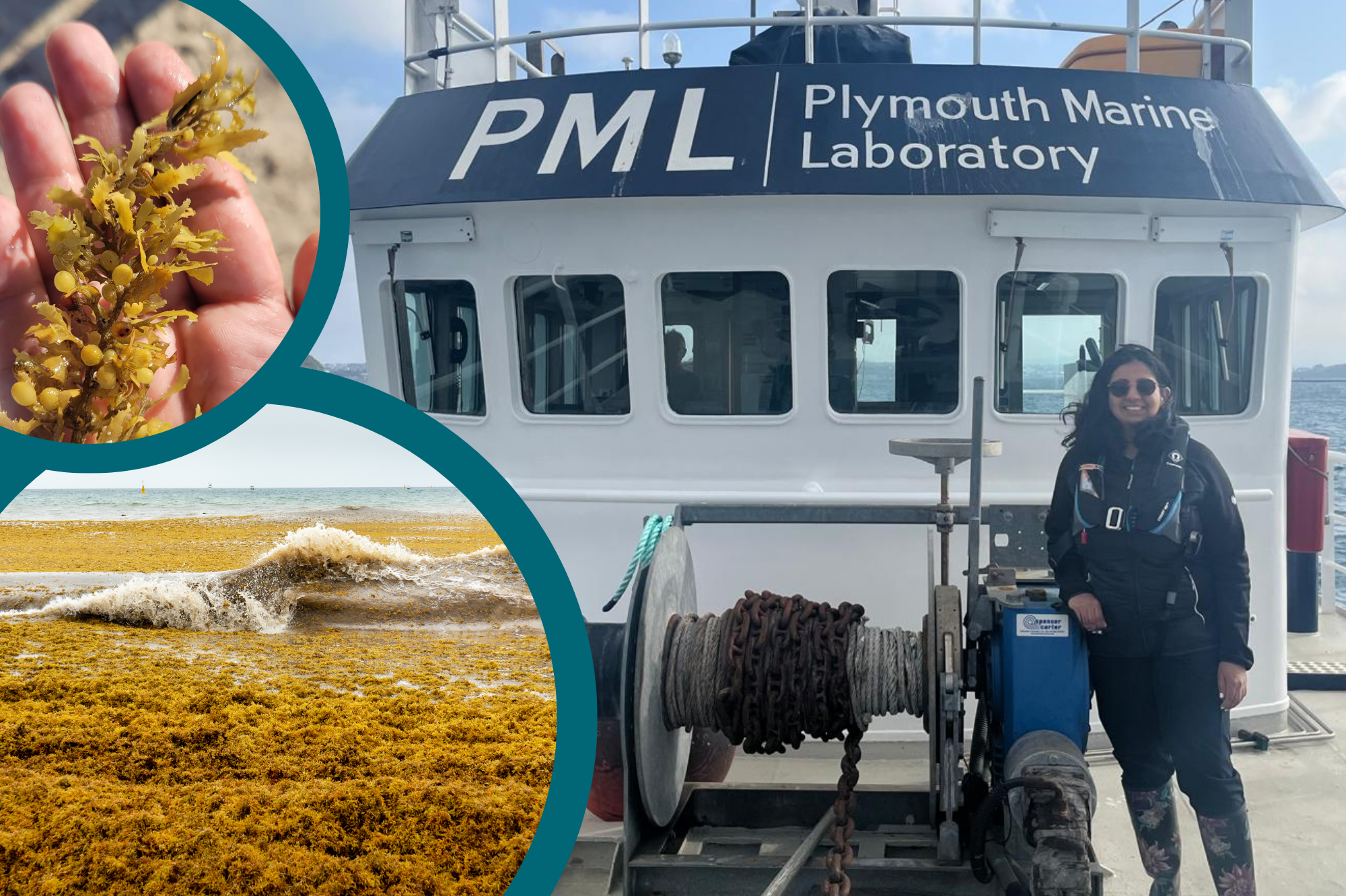
Staff Spotlight: Dr Yanna Alexia Fidai – Earth Observation and Remote Sensing Scientist
Meet Dr Yanna Alexia Fidai, whose research explores how climate change, pollution and changing currents have created the perfect storm for massive sar...
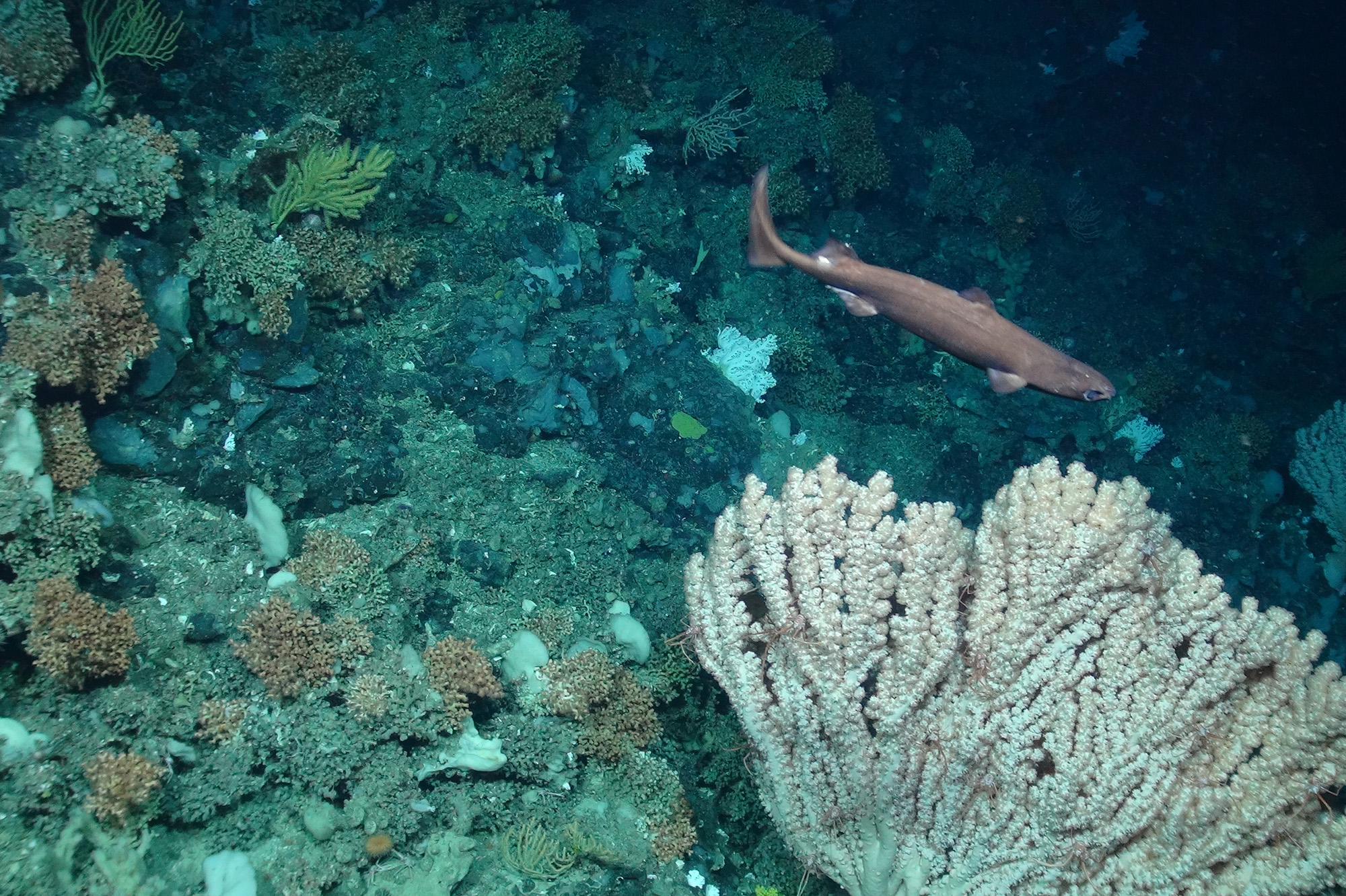
PML championing Deep Sea Biodiversity and Sustainable Ocean Planning at the 2025 UN Ocean Conference
A delegation of PML scientists and other experts will be in Nice for the June event
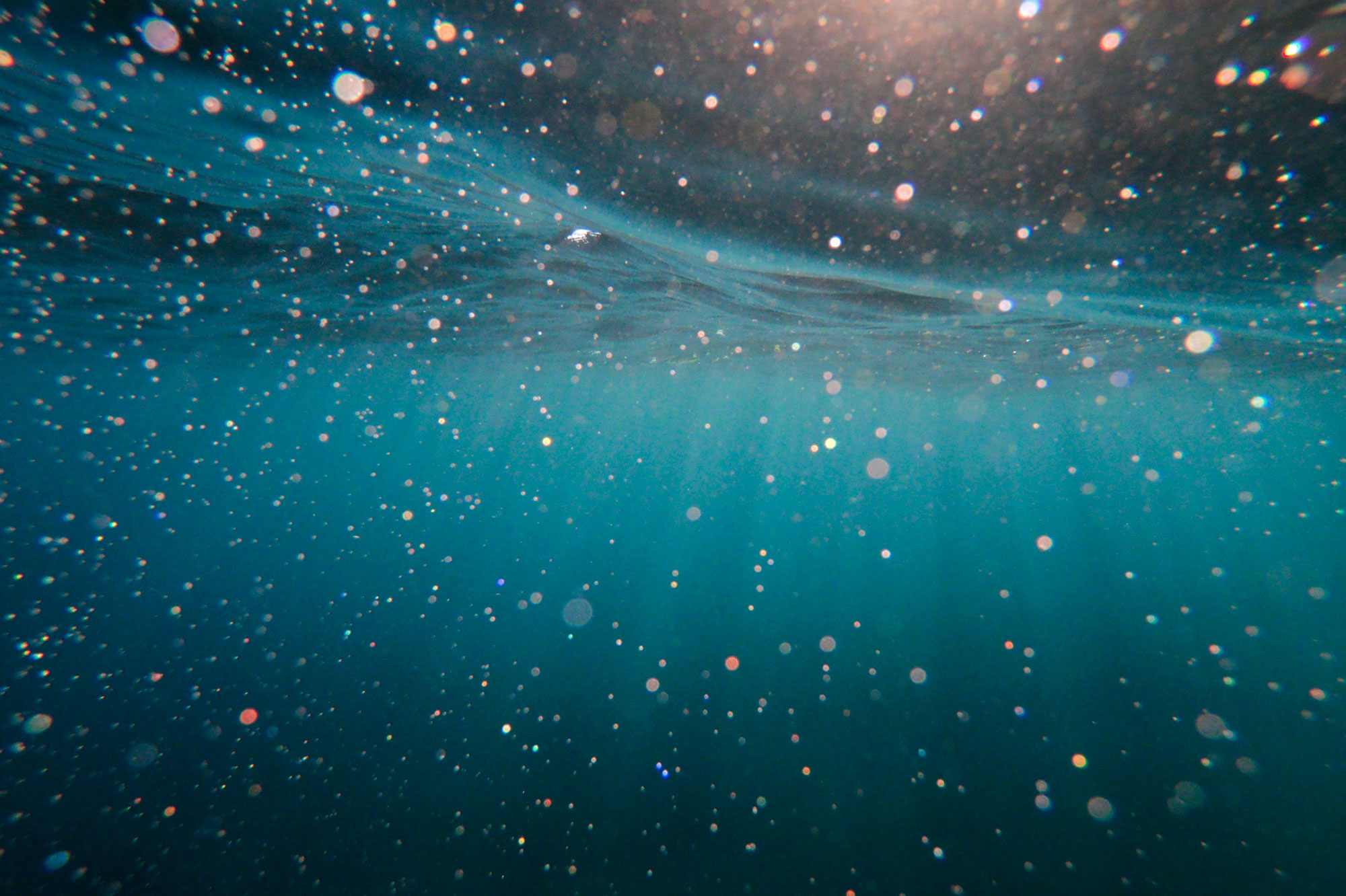
International mCDR Blue Paper launched: the Ocean’s climate role grows – but at what cost?
The newest Ocean Panel–commissioned paper outlines a set of principles for the responsible development and governance of marine carbon dioxide r...
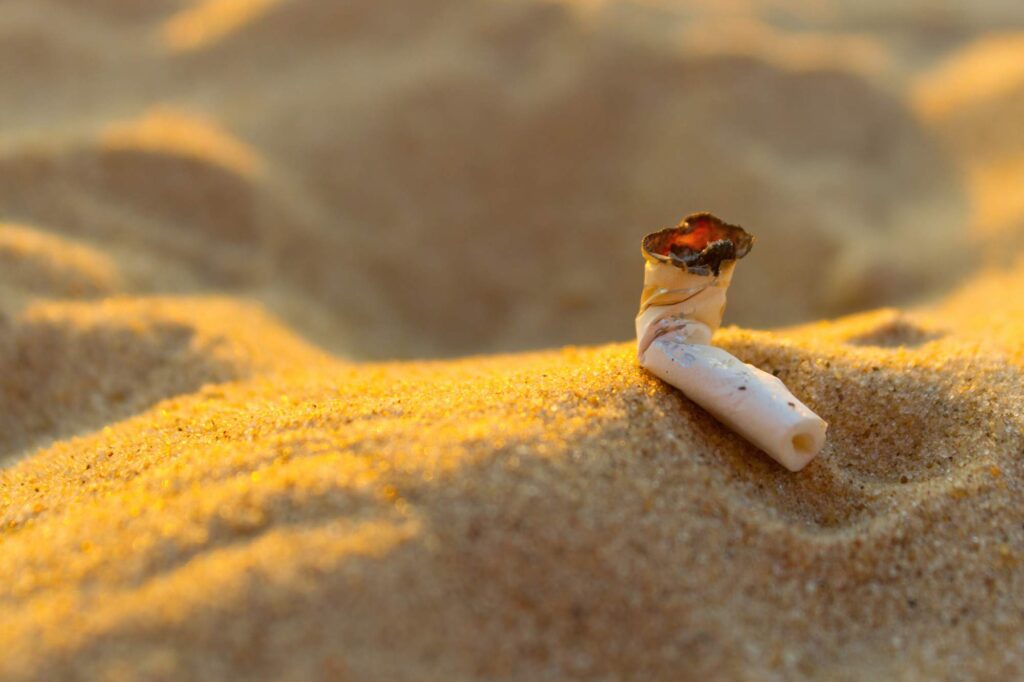
“Butt out”: How one PhD researcher is tackling the world’s most common form of litter
Today (Saturday 31st May) is ‘World No Tobacco Day’, and to mark the occasion, we’re shining a spotlight on Natalie Smith – PhD researche...
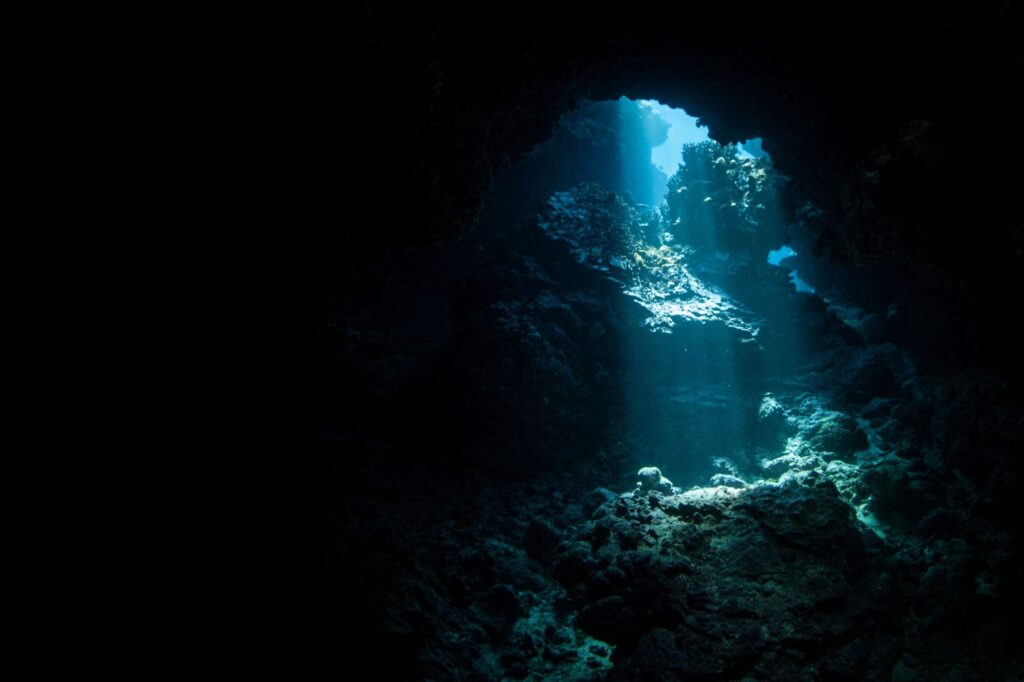
New study reveals global ‘Ocean Darkening’ threatens marine life
A new study co-led by PML’s Professor Tim Smyth has revealed a 21% reduction in sunlight zones vital for life in the sea.
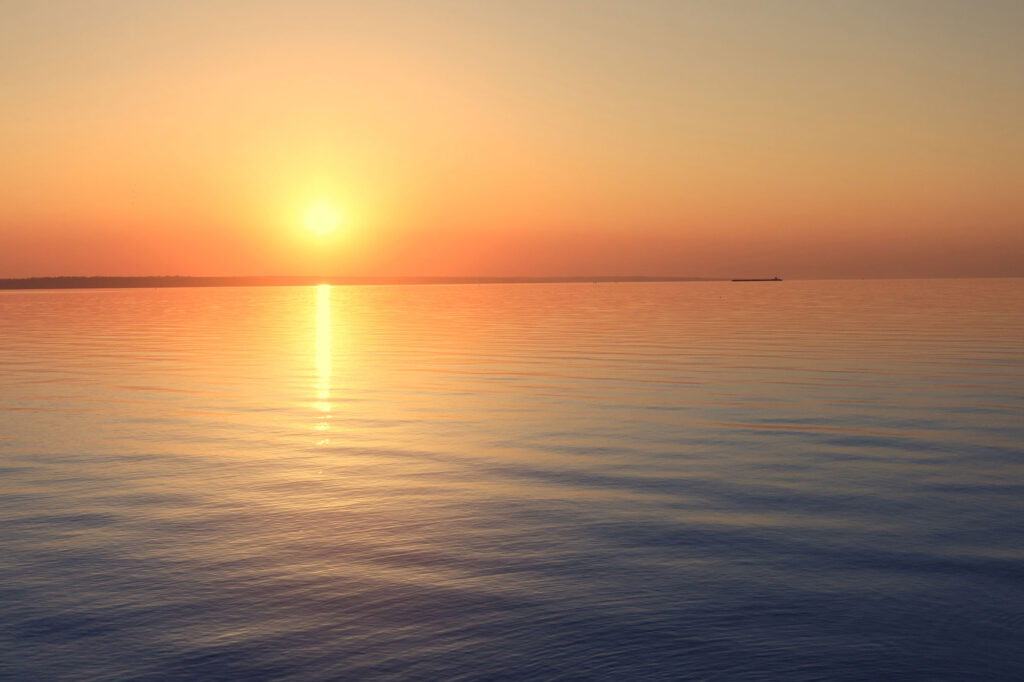
Update from the lab: marine heatwave conditions continue to escalate in UK waters
Our data from the western English Channel has shown almost continuous marine heatwave conditions for the past two years, and, with the latest unusuall...
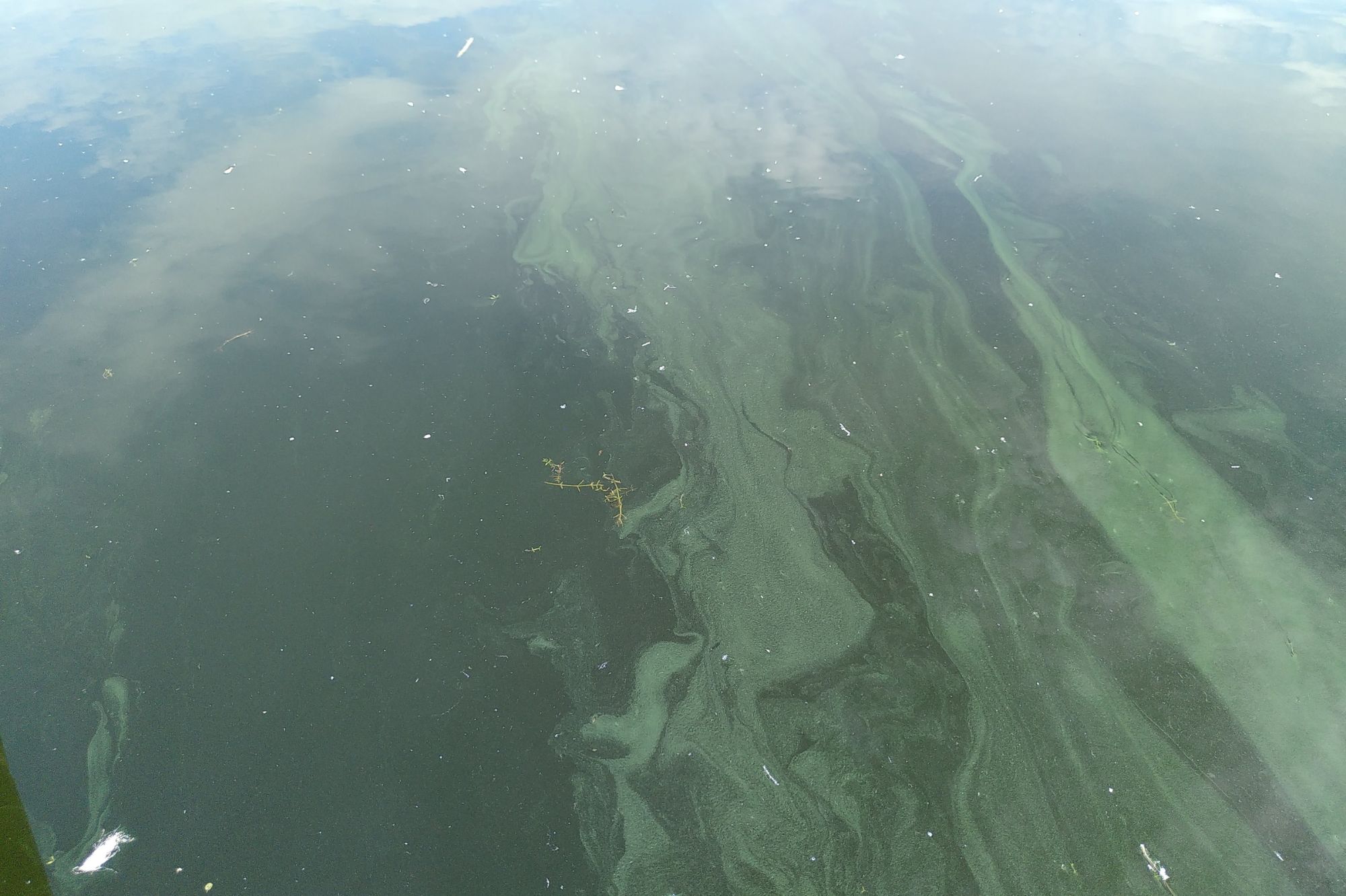
New project funded to boost early detection of algal blooms for cleaner, safer drinking water
It was announced this week that Ofwat, the Water Services Regulation Authority for England and Wales, has awarded funding for the PEDAL project: ‘Pr...
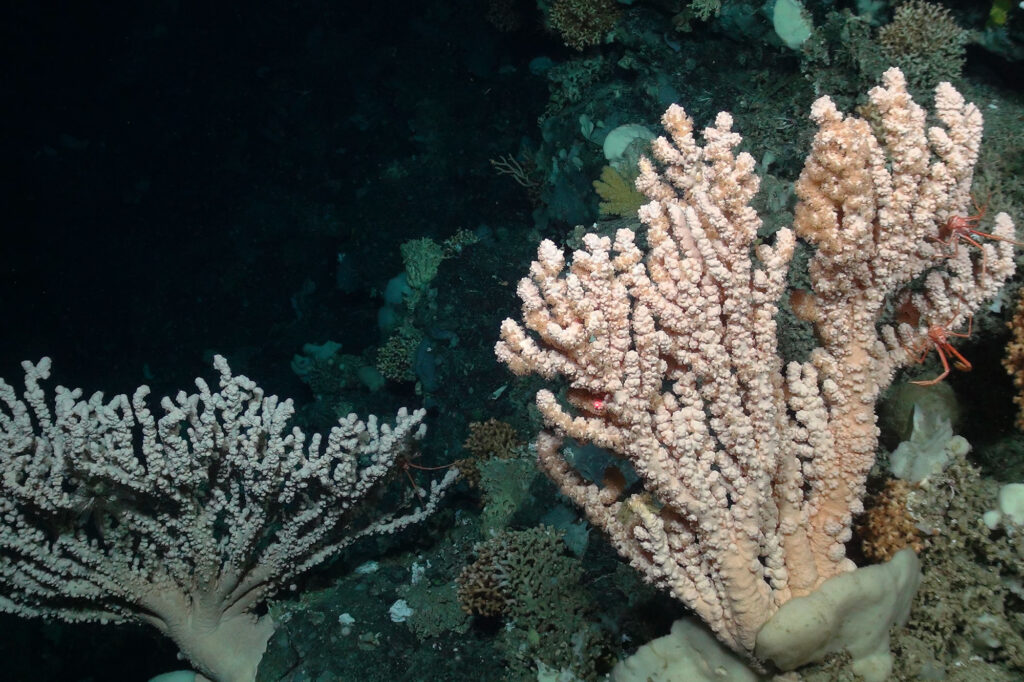
Project to revolutionise deep sea understanding using AI awarded pioneering grant from Bezos Earth Fund
The grant supports innovative AI-driven solutions to tackle urgent environmental challenges
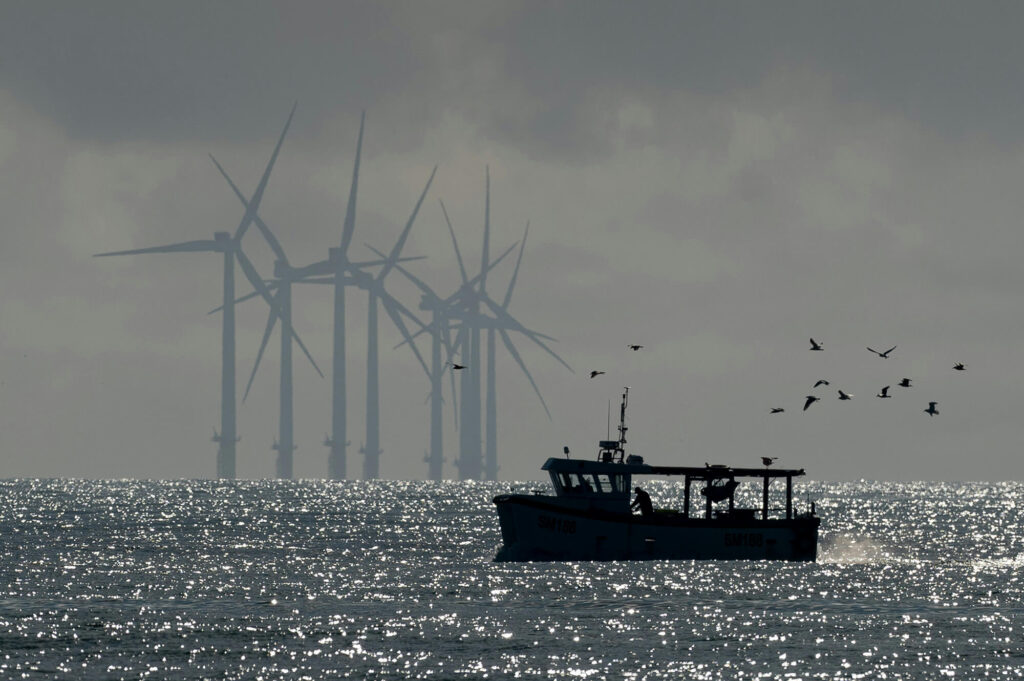
Accelerating climate action through marine spatial planning: the opportunity lies ahead
A new PML-led study identifies key enablers to implementing climate-smart Marine Spatial Planning.
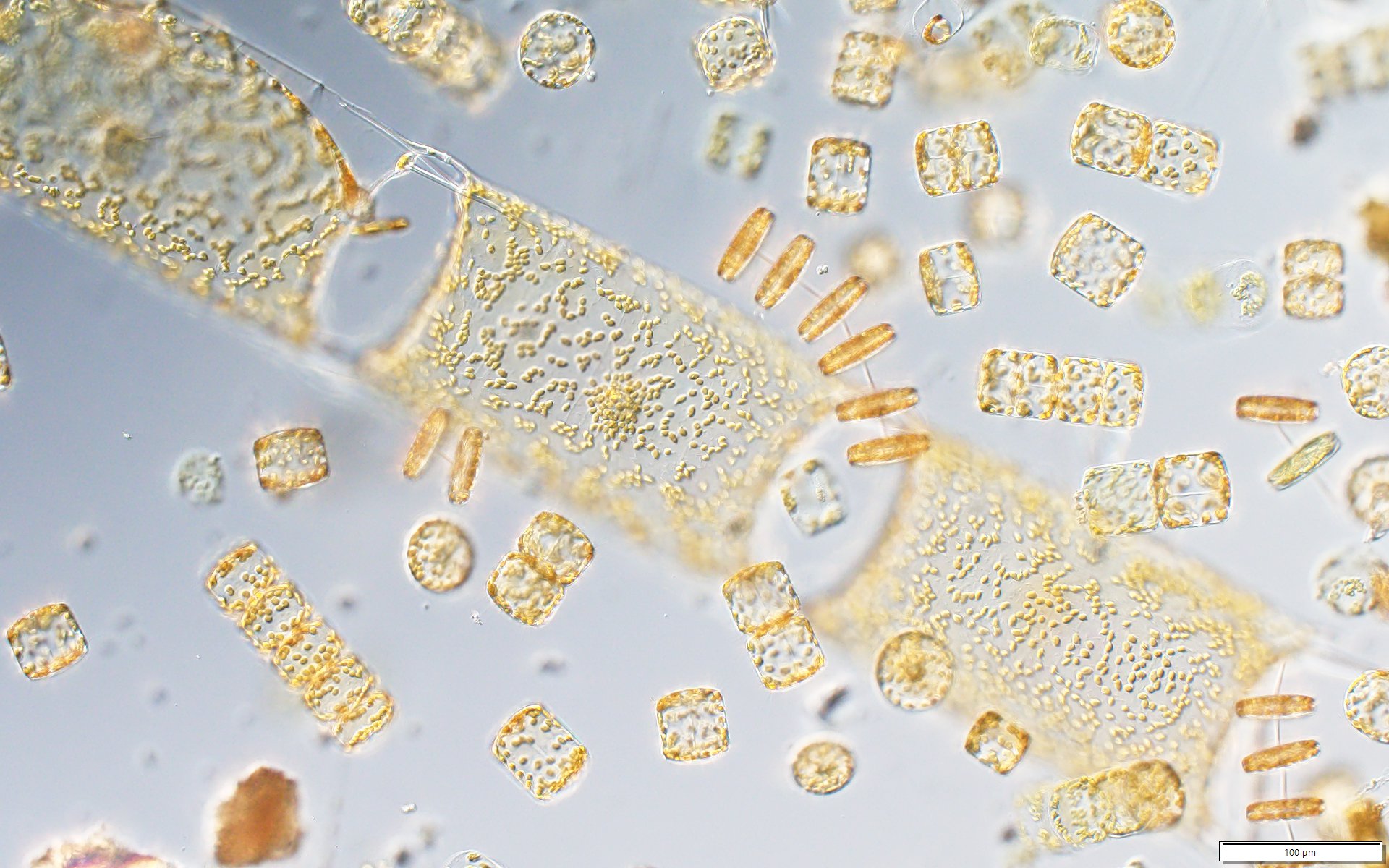
The Spring bloom illuminates the Western English Channel
As the UK enjoys warmer weather and longer days, our scientists are also enjoying seeing the vibrant plankton communities blossom in UK waters through...
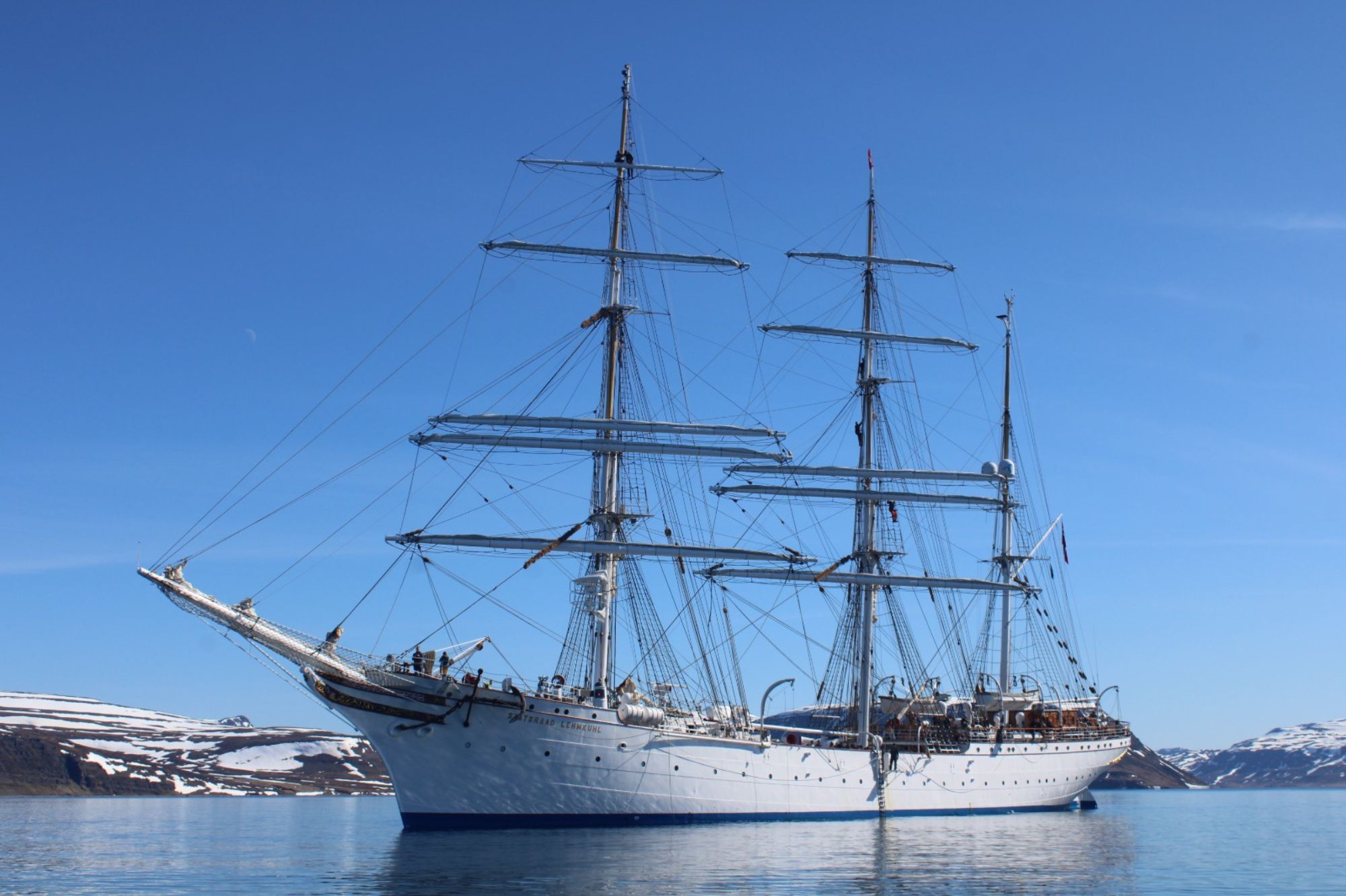
BLOG: PML’s Dr Saskia Ruhl describes life onboard the One Ocean Expedition
PML’s Dr. Saskia Rühl, a specialist in digital marine biology and machine-learning techniques for data classification, is currently sailing onboard...
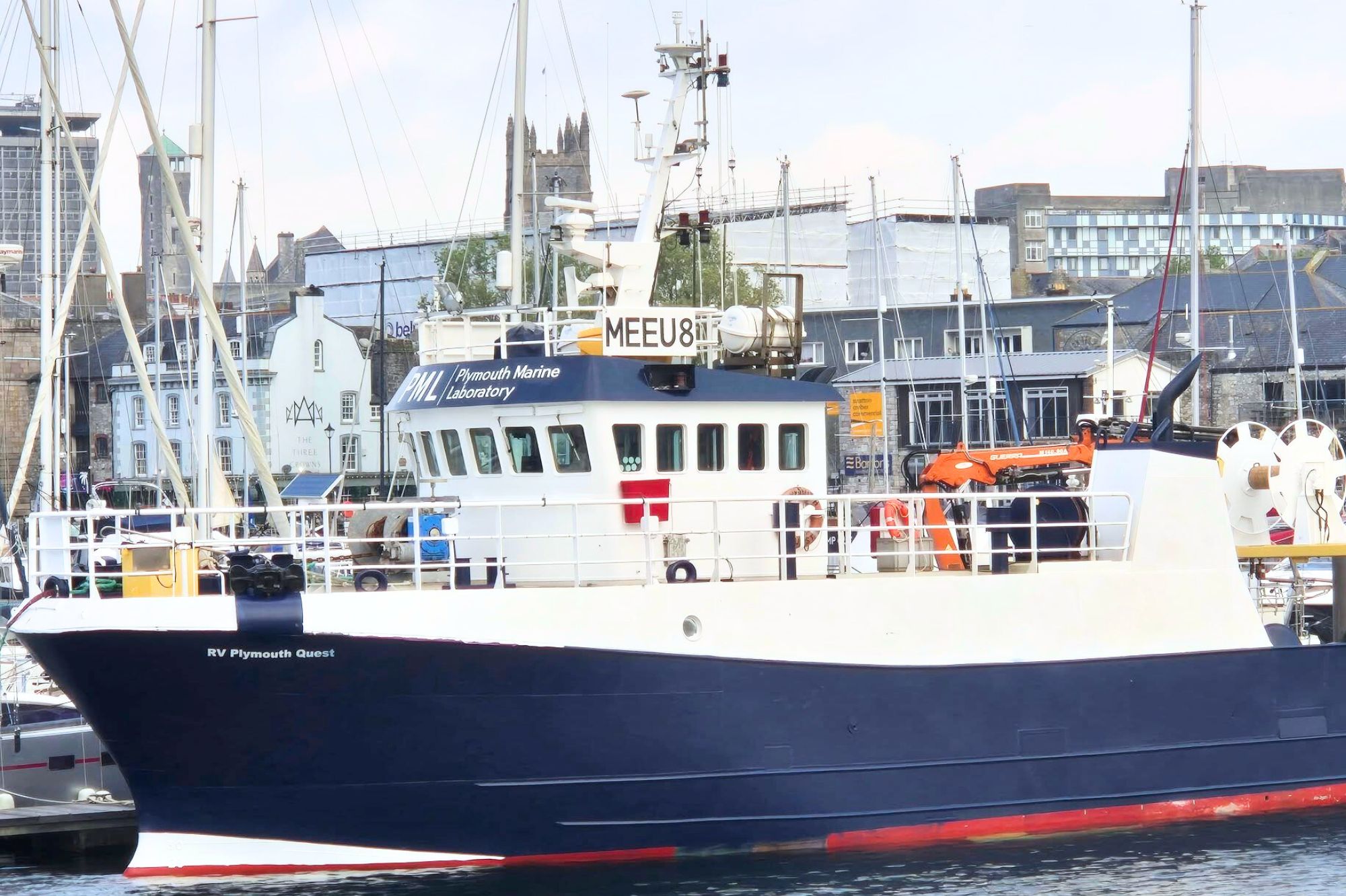
Knot your average vessel… Plymouth Quest gets upgraded for a new era of marine science
Our beloved research vessel, the Plymouth Quest, has been in Penzance for the last few months undergoing some impressive upgrades to help us continue ...

Think you know your mixoplankton from your phytoplankton?
Outdated terms are clouding our view of marine ecosystems – it’s time to update the vocabulary, writes Professor Kevin Flynn.
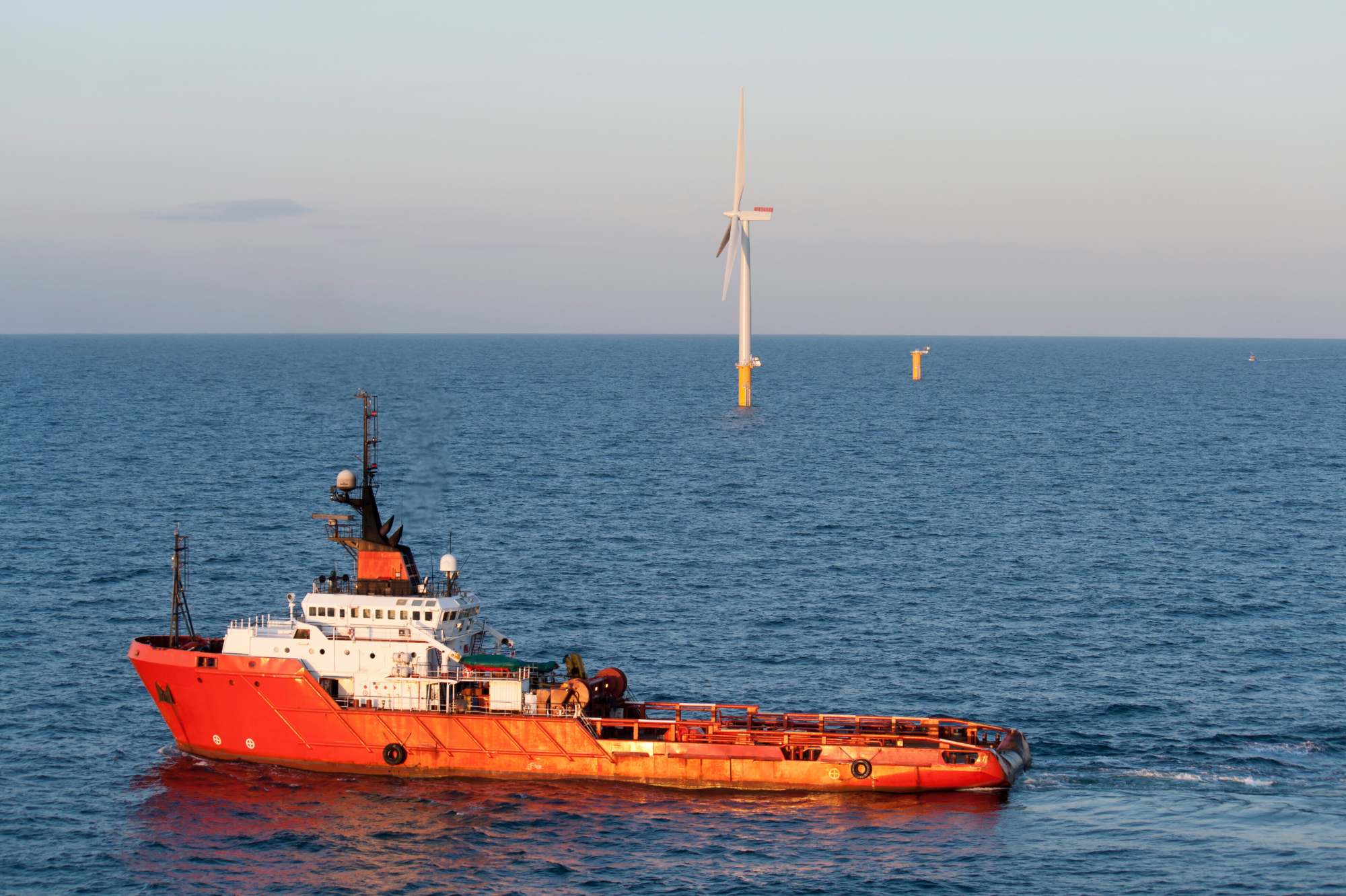
“Strategically placed” offshore structures could enhance ecosystem resilience
A new study led by Dr Molly James from Plymouth Marine Laboratory as part of the DREAMS project has introduced a novel approach to assessing the marin...
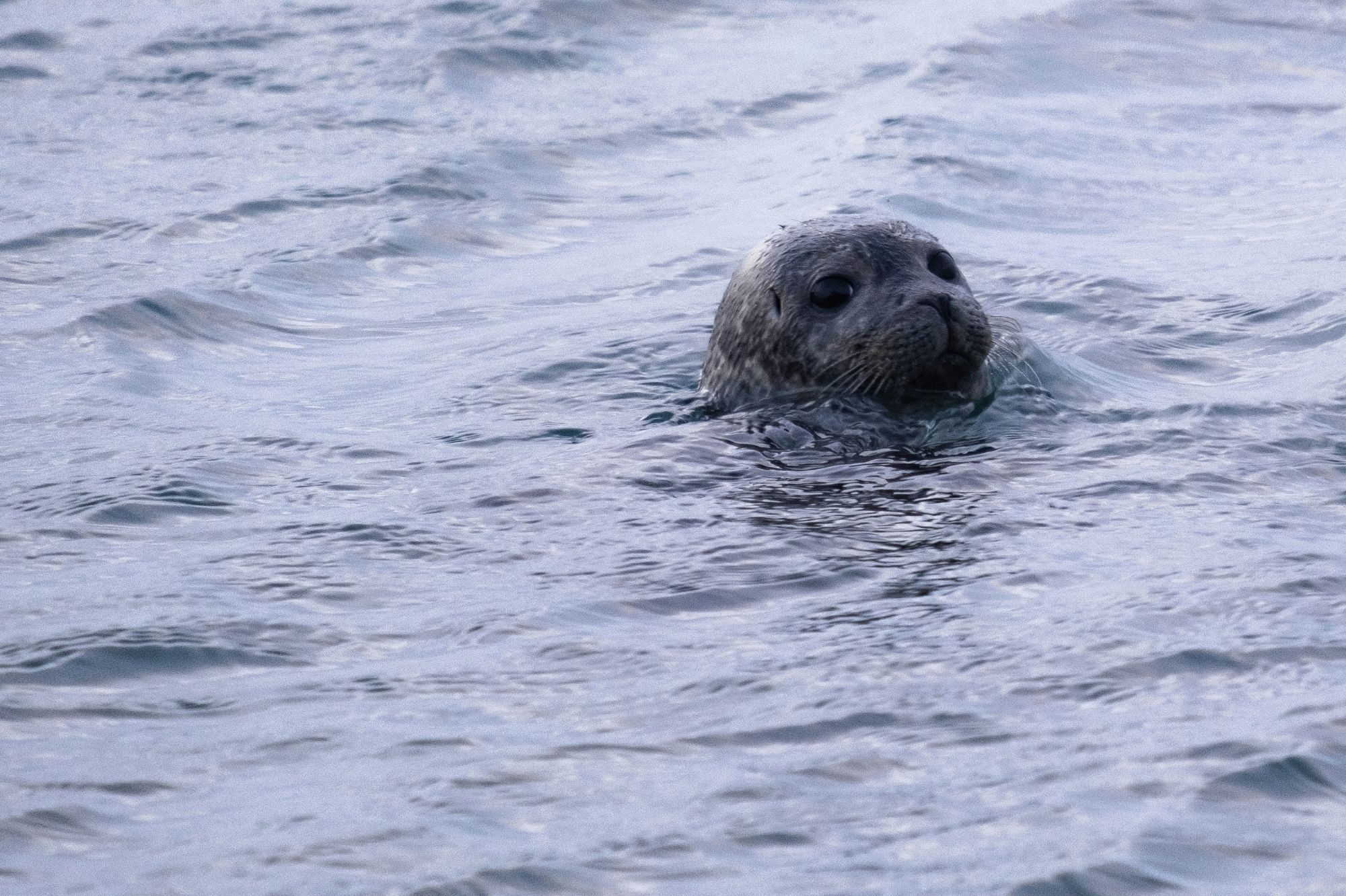
Safeguarding marine animals amid the UK’s offshore wind energy expansion
PML’s Dr Peter Miller’s research on the relationship between ocean fronts and biodiversity hotspots has been cited in the 2024 Offshore Wind Repor...
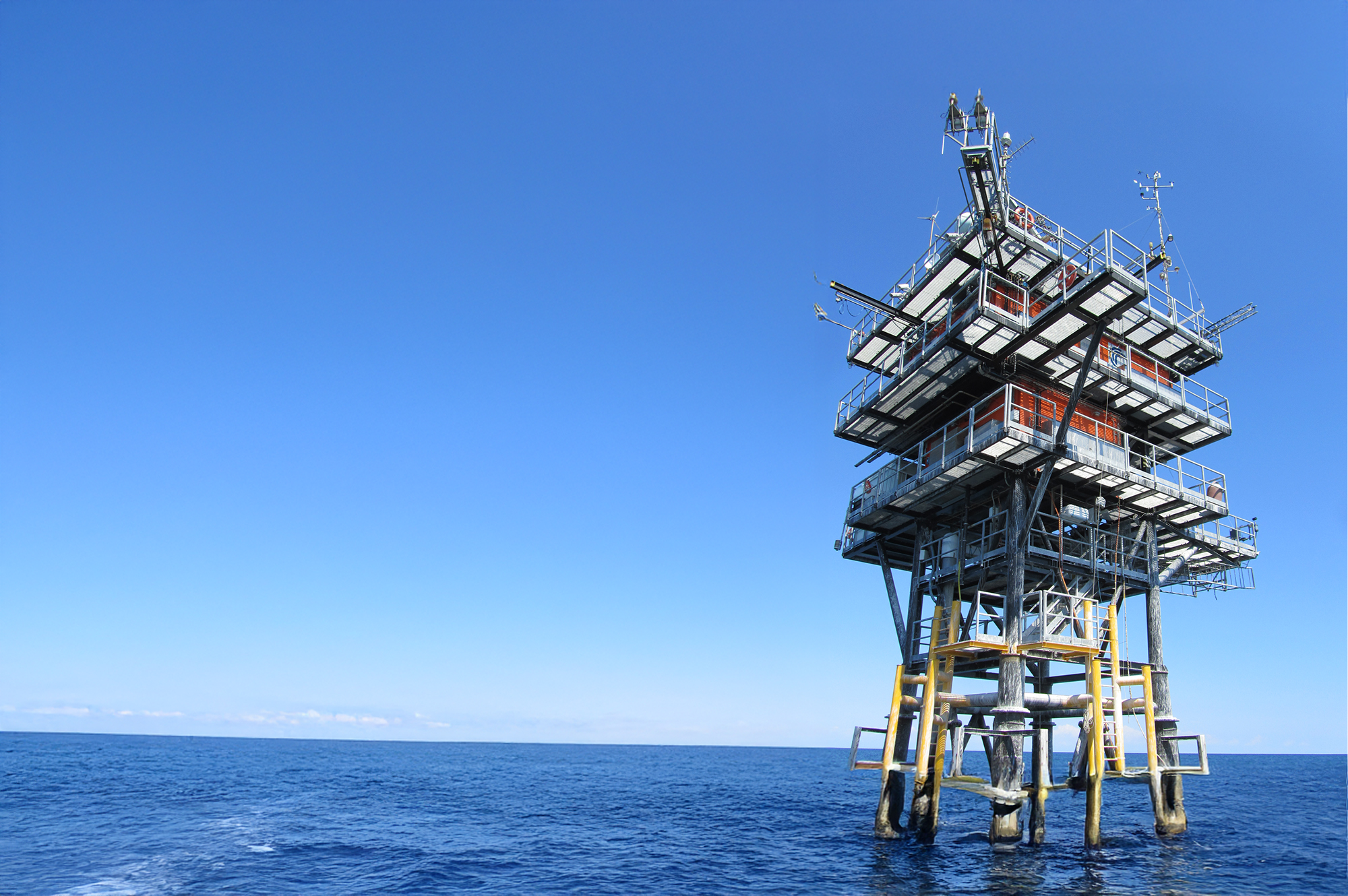
Major intercomparison of optical measurements set to revolutionise data processing for satellite ocean colour validation
A team of ocean optics experts, led by Plymouth Marine Laboratory, evaluated the accuracy of above-water optical sensors, using a community-developed ...
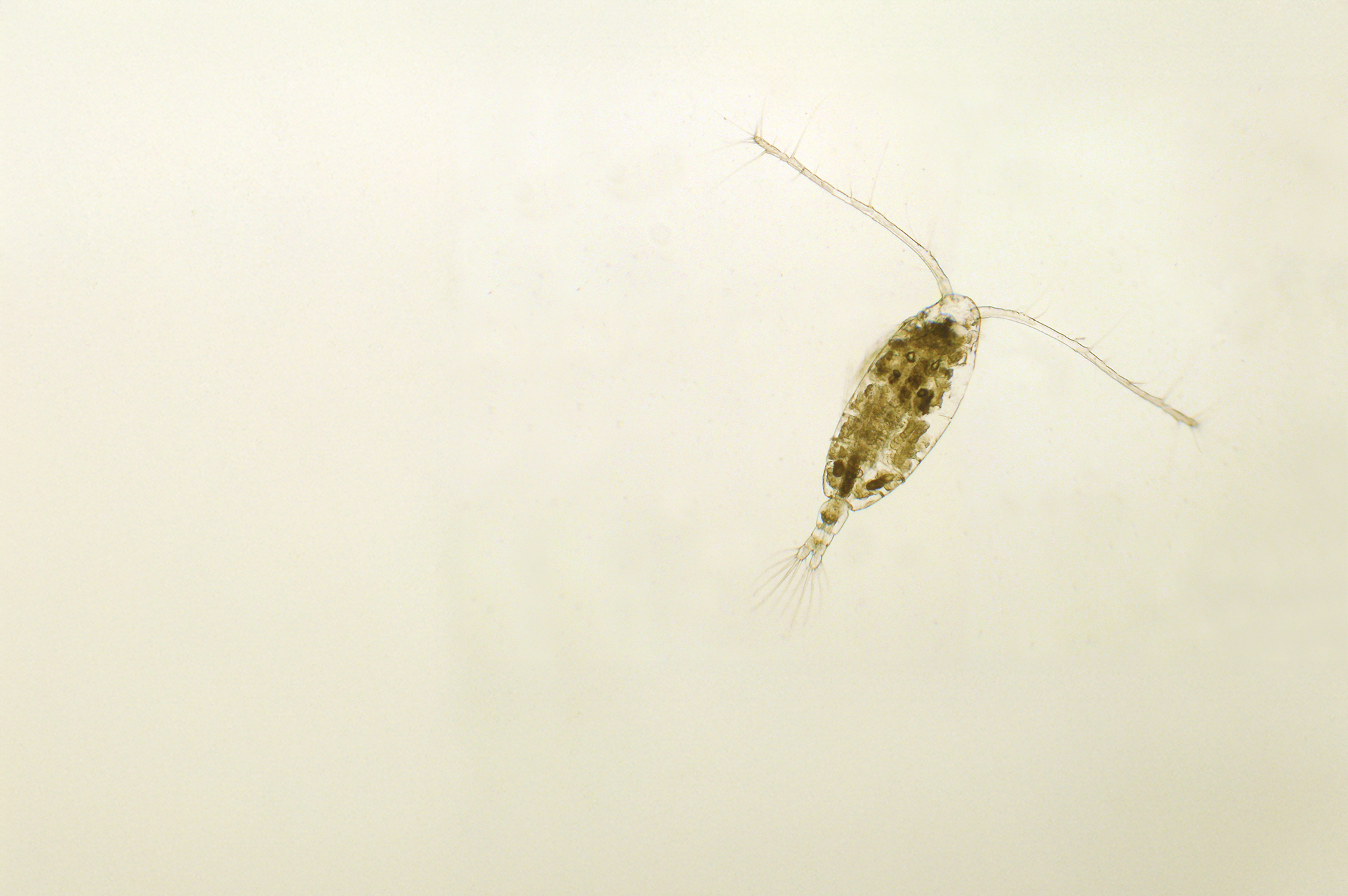
Impacts of mixed microplastics on marine life
Innovative study indicates that a mixed microplastic blend may be substantially more toxic than a single polymer on a key marine food-web species.

Concerns for deep sea ecosystems heighten as US moves to ramp up mining
The Deep Sea Conservation Coalition is calling for deep sea mining to be ceased
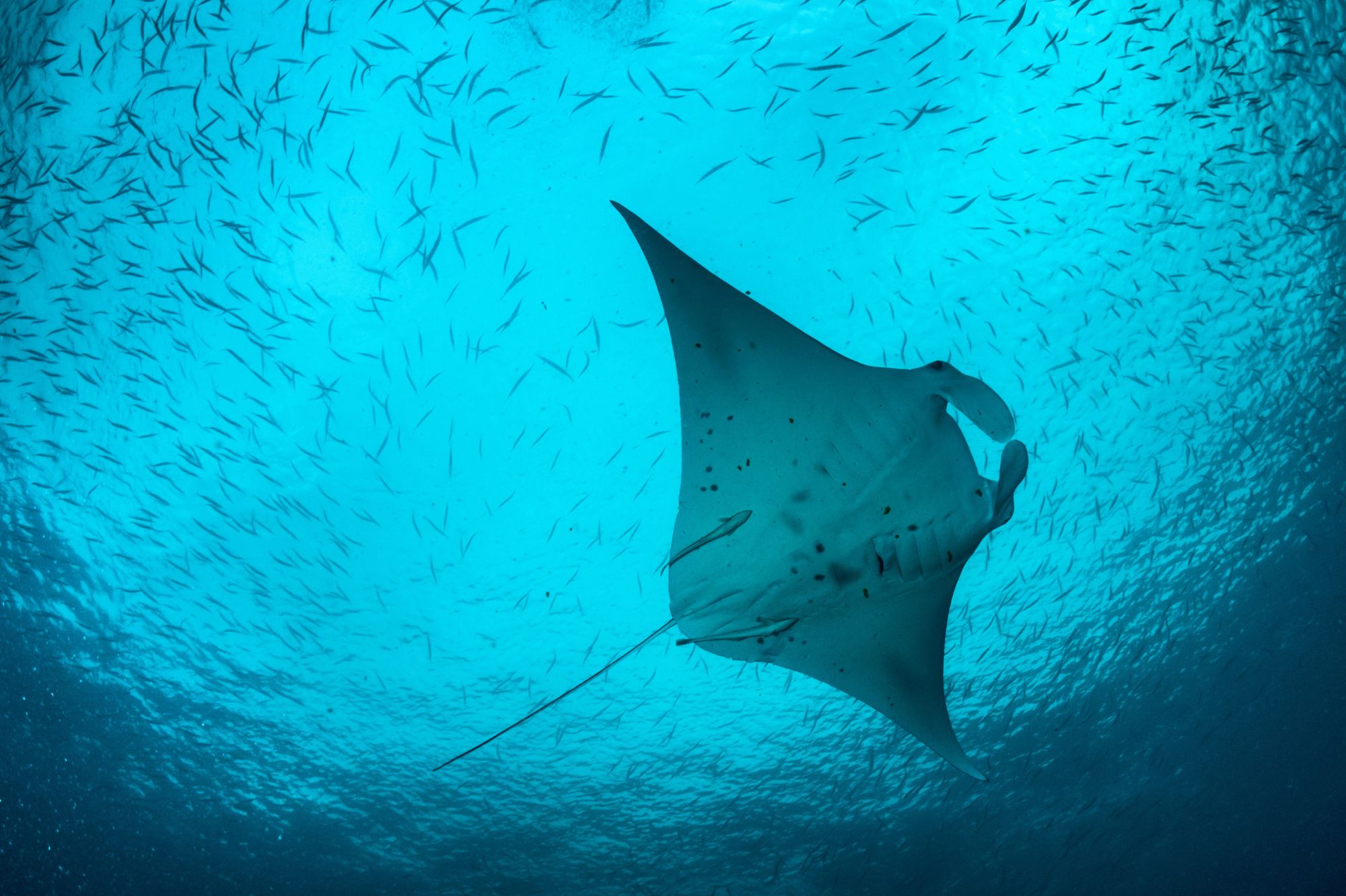
The Role of Climate-Smart Marine Protected Areas in Achieving 30×30
PML’s Professor Ana M Queirós has co-authored a landmark new report, released today, which explores how climate change mitigation, adaptation and...
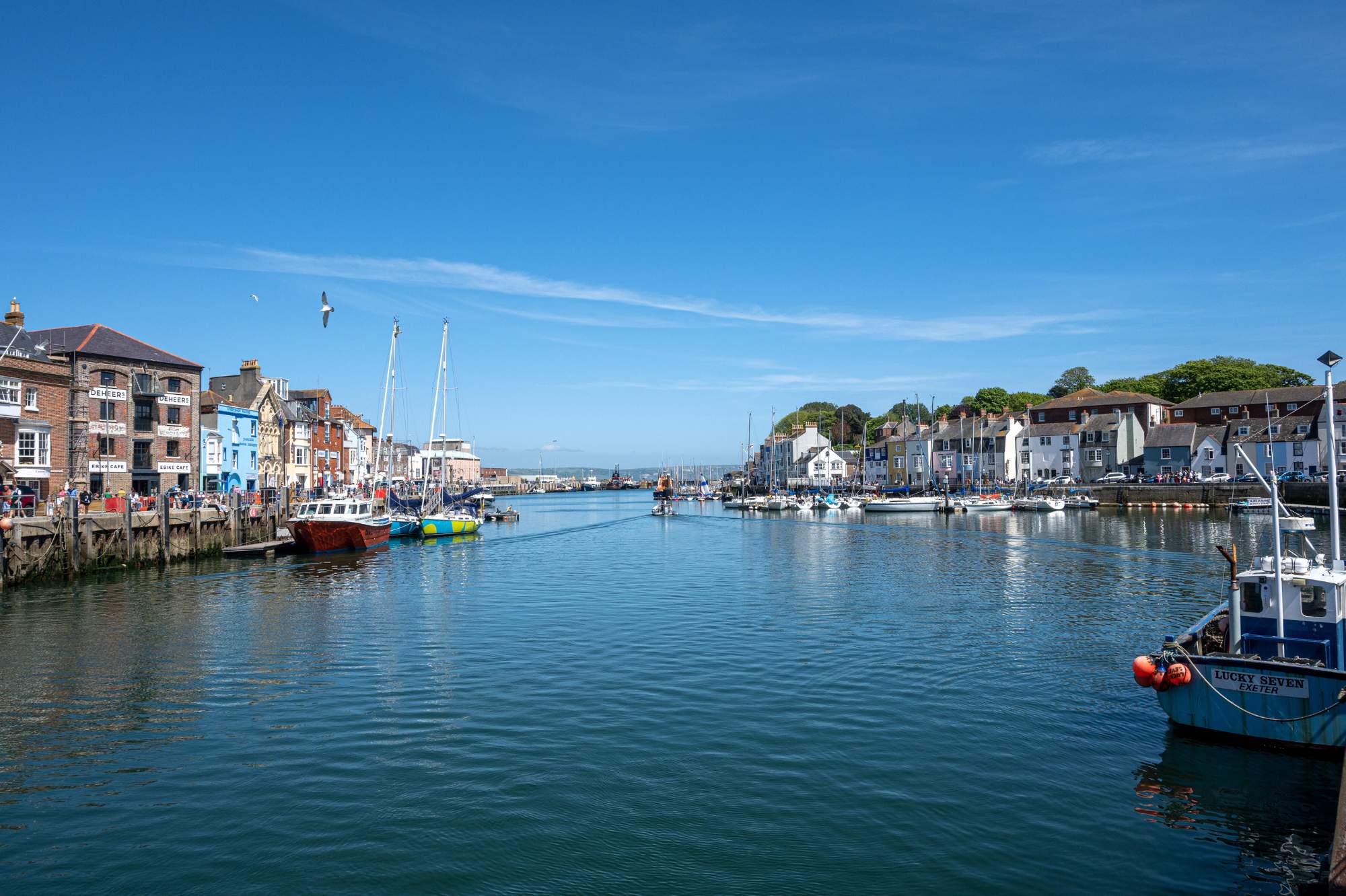
MEDIA: project to suck carbon out of sea begins in UK
Could carbon removal from the sea help tackle climate change? PML scientists and colleagues from the University of Exeter have made headlines over the...
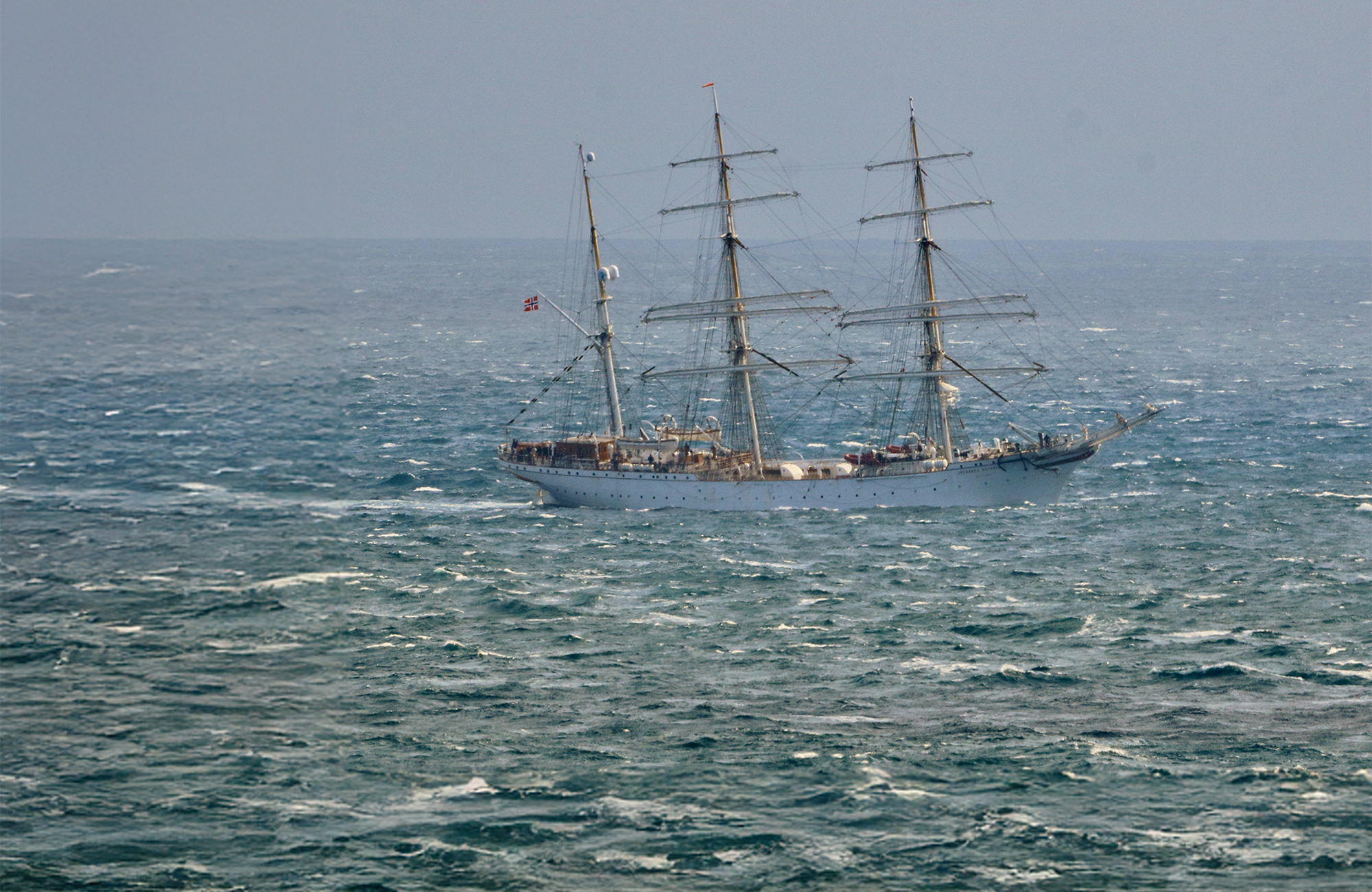
Setting Sail for Nice: PML Joins the One Ocean Expedition
A 111-year-old vessel has been adapted to provide state-of-the-art laboratory facilities.
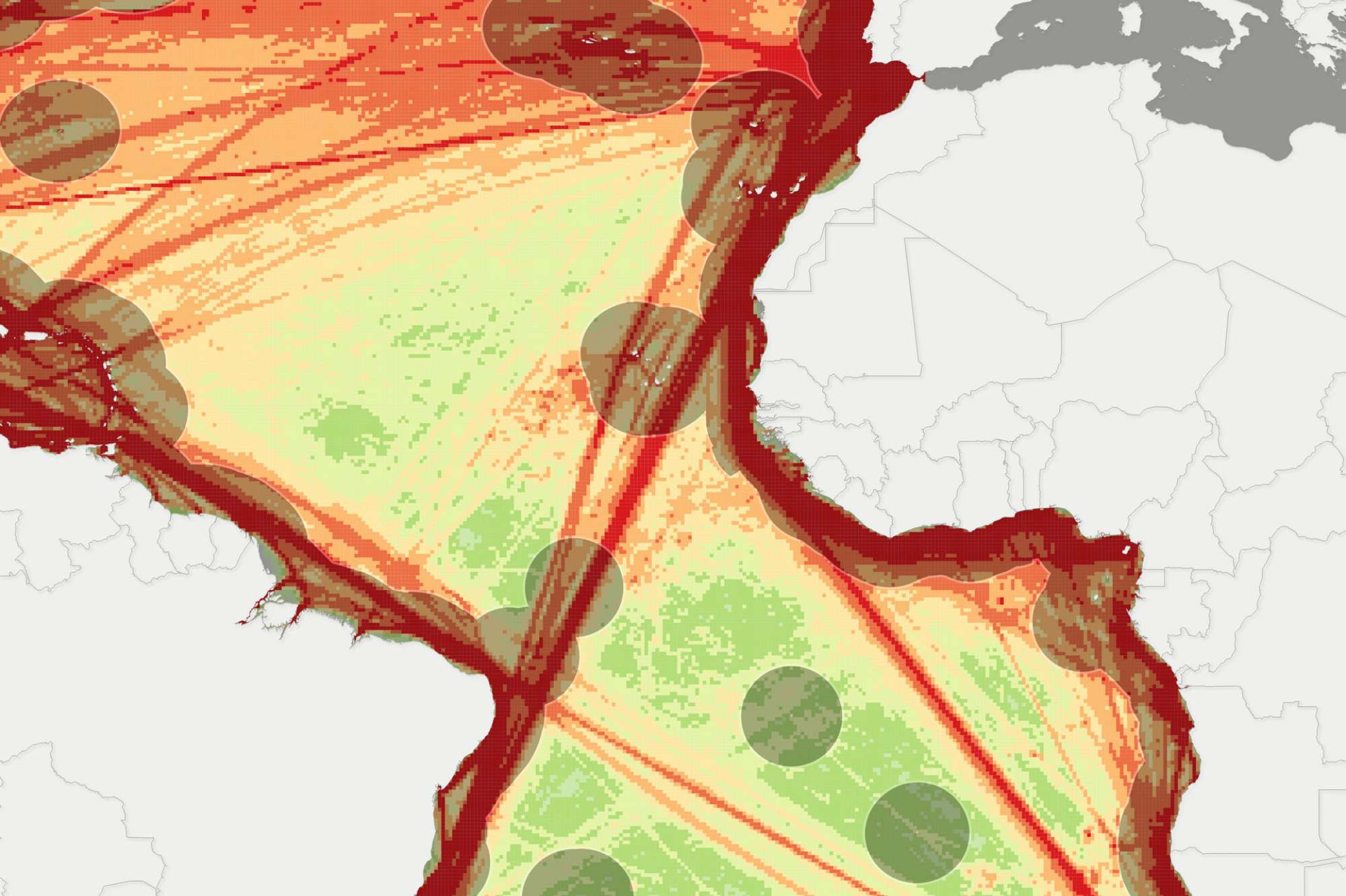
Mapping a Better Balance: Biodiversity and Shipping in the Atlantic
An ESA-funded study that used satellite data to define biodiversity zones and shipping lanes in the Atlantic Ocean suggests it is possible to protect ...
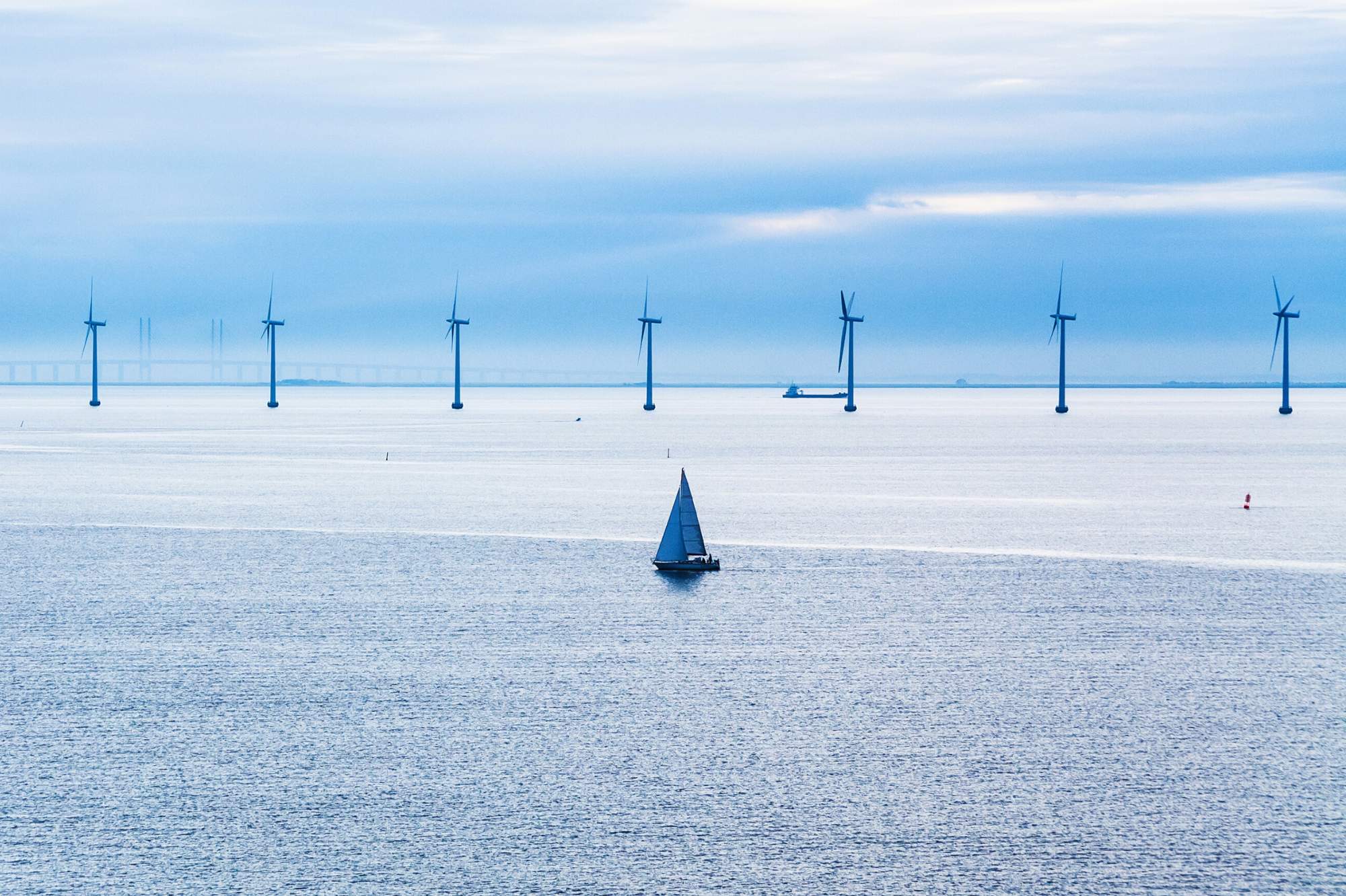
UN Ocean Decade endorses PML-led project driving climate-smart marine planning
MSPACE is supporting the development and implementation of climate-smart, economically viable and socially acceptable UK marine planning.
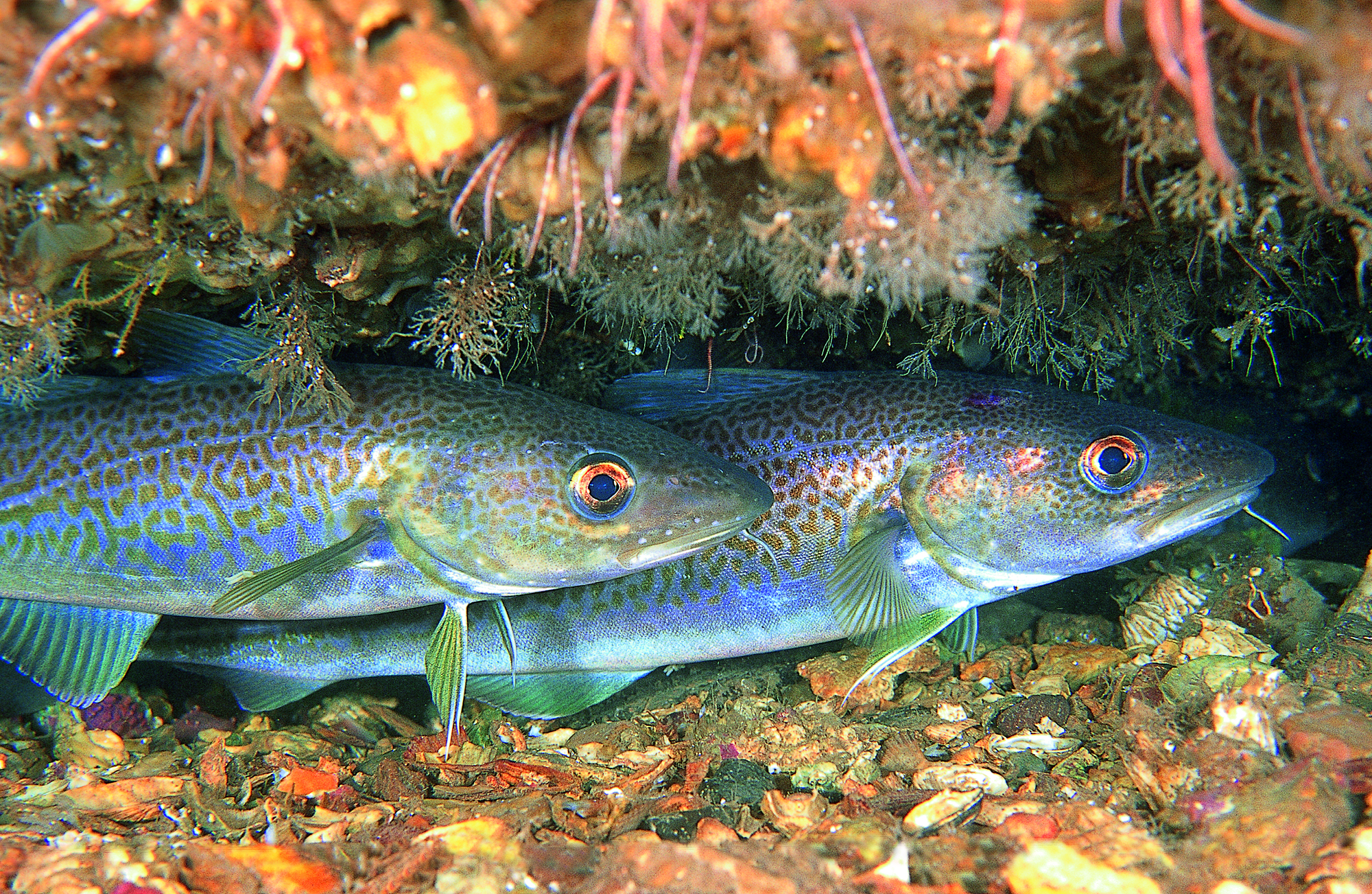
Climate Change to Reshape European Fisheries: New Study Maps “Winners and Losers”
First multi-model analysis shows dramatic shifts in commercial fish stocks by the end of the century

Sargassum, the free-floating seaweed proliferating with climate change
Swathes of Sargassum are rapidly spreading across the tropical Atlantic, with mats reaching depths of 7 meters and spanning hundreds of kilometres. In...

Existing research may have underestimated the scale of microplastic pollution, study finds
A new study suggests that existing research may have considerably underestimated the scale of microplastic pollution, as a result of laboratory extrac...
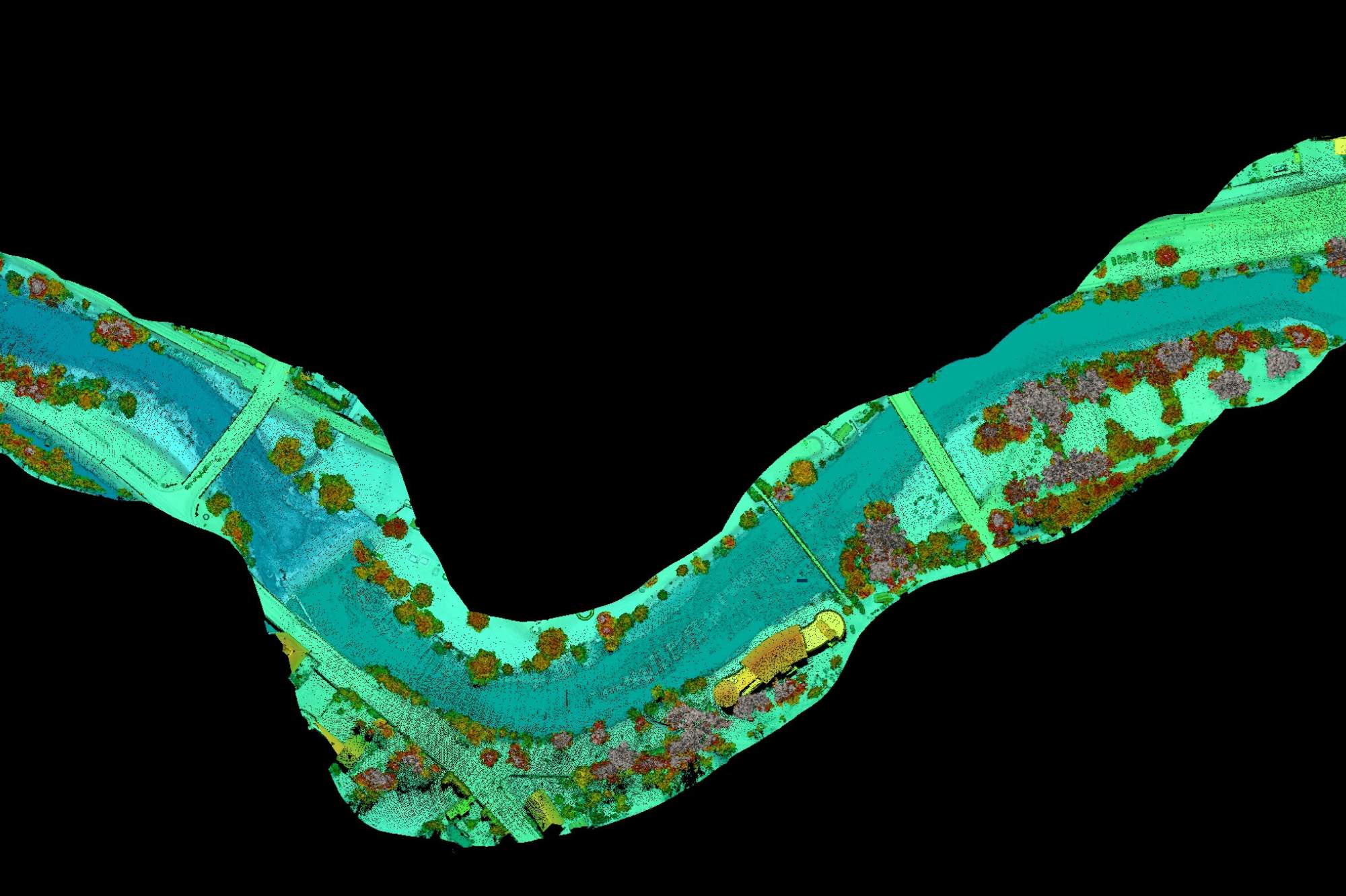
Step change for PML’s remote sensing capabilities with new, cutting-edge drone technology
A state-of-the-art environmental survey drone has been procured to provide advanced environmental survey capabilities in shallow, dynamic and hard-to-...
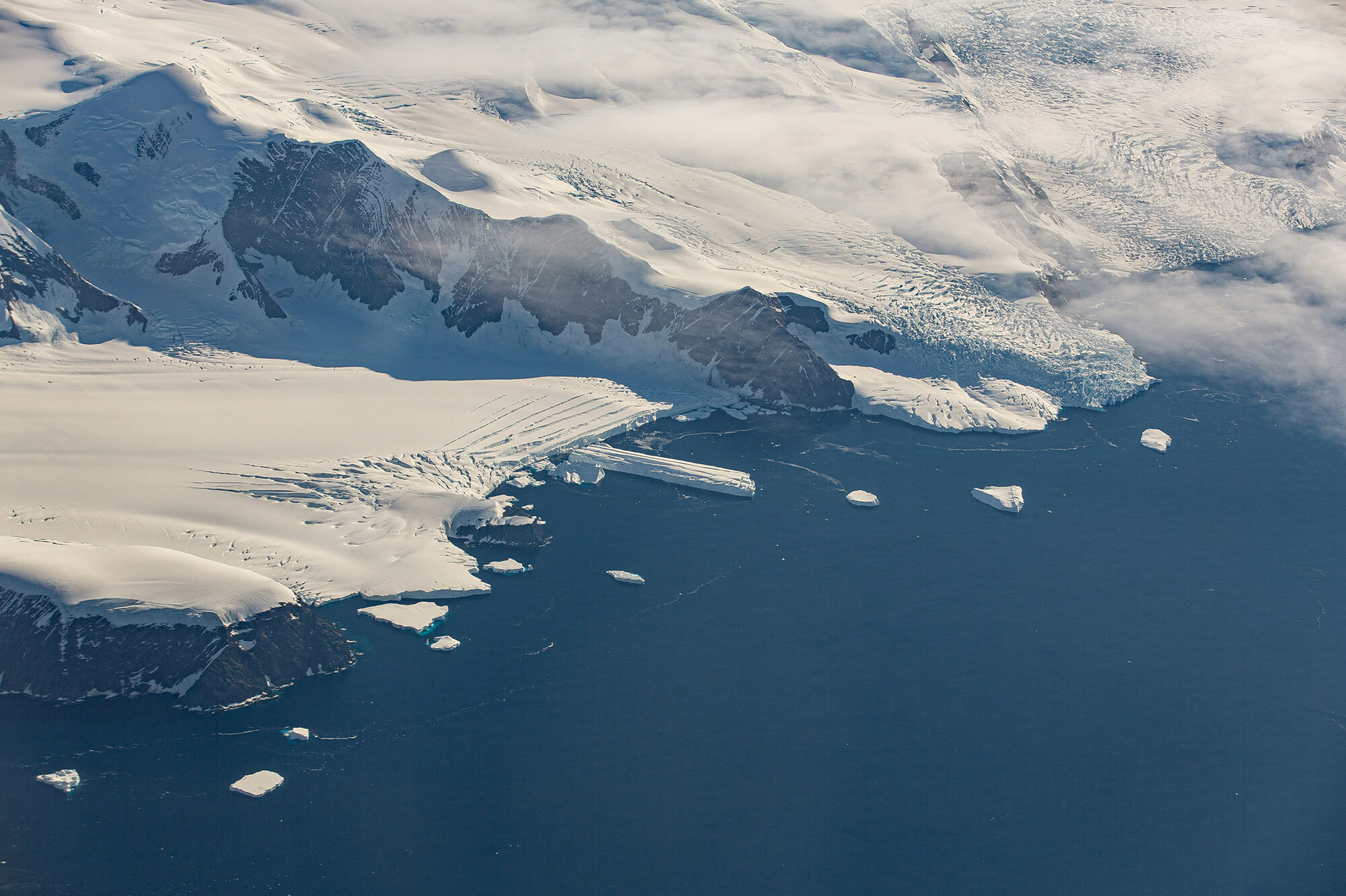
“A stark reminder”: Record-breaking CO2 Levels Recorded for Earth’s Polar Regions
The International Cryosphere Climate Initiative (ICCI) has announced that atmospheric CO2 levels surpassed the key threshold of 430 parts per million ...
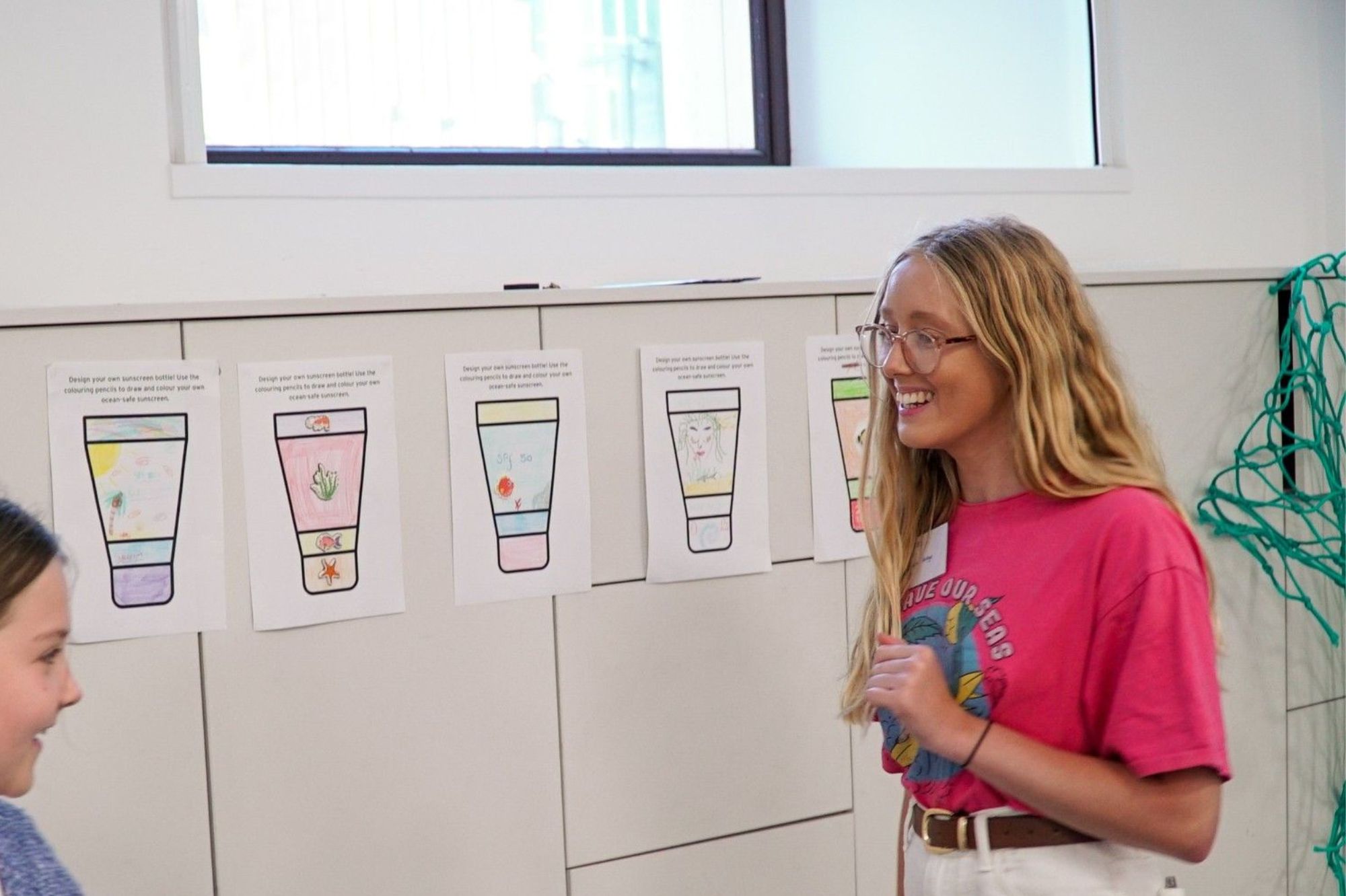
PhD Researcher Wins Prestigious STEM for Britain Award
Anneliese Hodge, PhD researcher with Plymouth Marine Laboratory and the University of Plymouth, has won the Gold Award in the Biological and Biomedica...
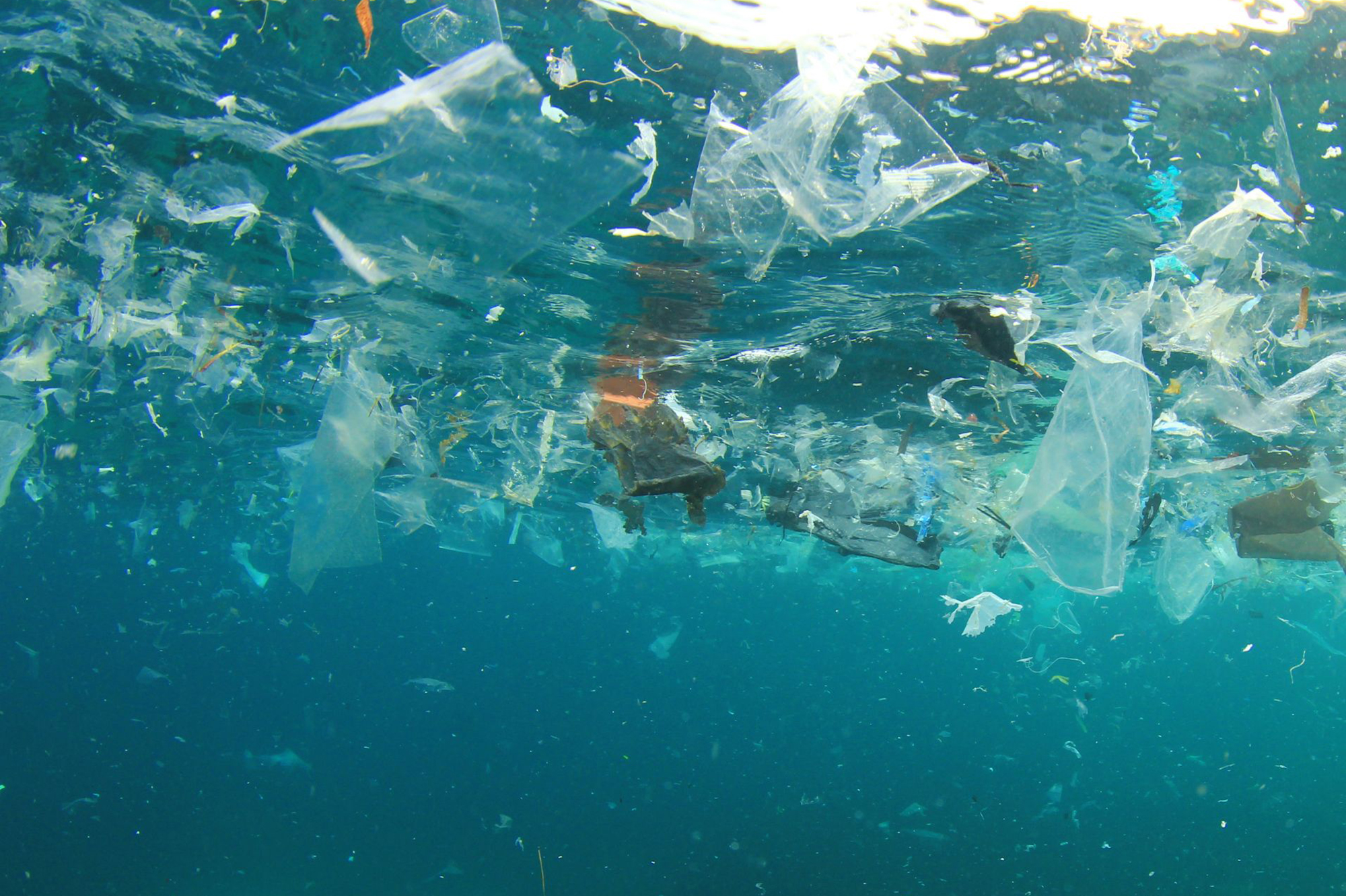
Cooperation between countries could reduce marine plastic pollution in the North Atlantic but with unequal economic benefits
A new study shows cross-country collaboration in tackling marine plastic pollution yields significant economic and environmental returns, which could ...

Illuminating Ocean Threats on Day Two of the World Ocean Summit
Artificial Light At Night (ALAN) among the topics of focus for PML in Japan

Experts and Leaders Unite to Tackle Water Pollution in Devon
Scientists, policymakers, and community leaders will gather at the Island Assembly to address the urgent state of Devon’s rivers, with PML’s Profe...
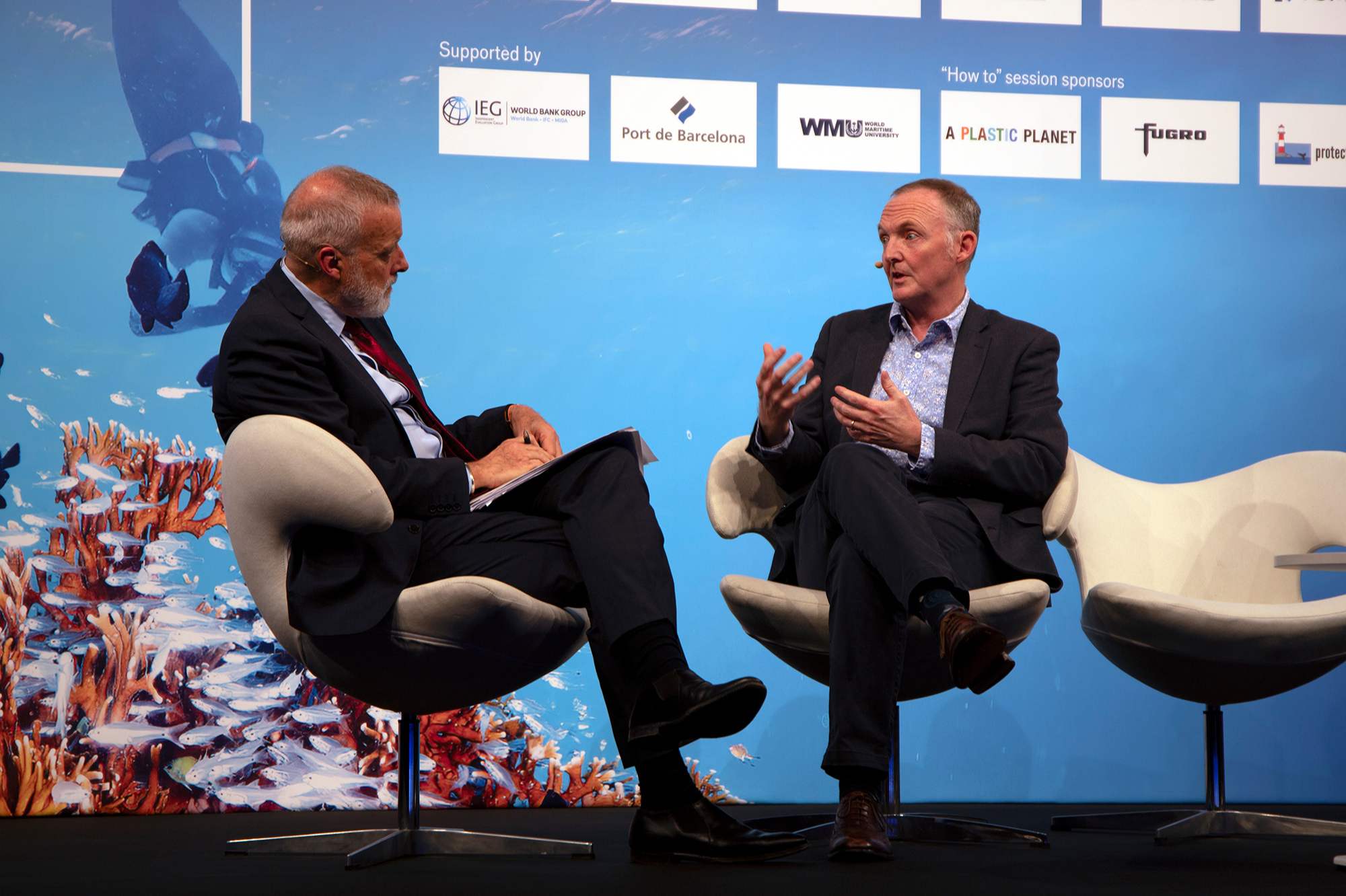
Beyond Sustainability: Reimagining Society’s Relationship with Nature at the World Ocean Summit
Professor Steve Widdicombe spoke to Charles Goddard from Economist Impact during the opening session of the event in Tokyo.
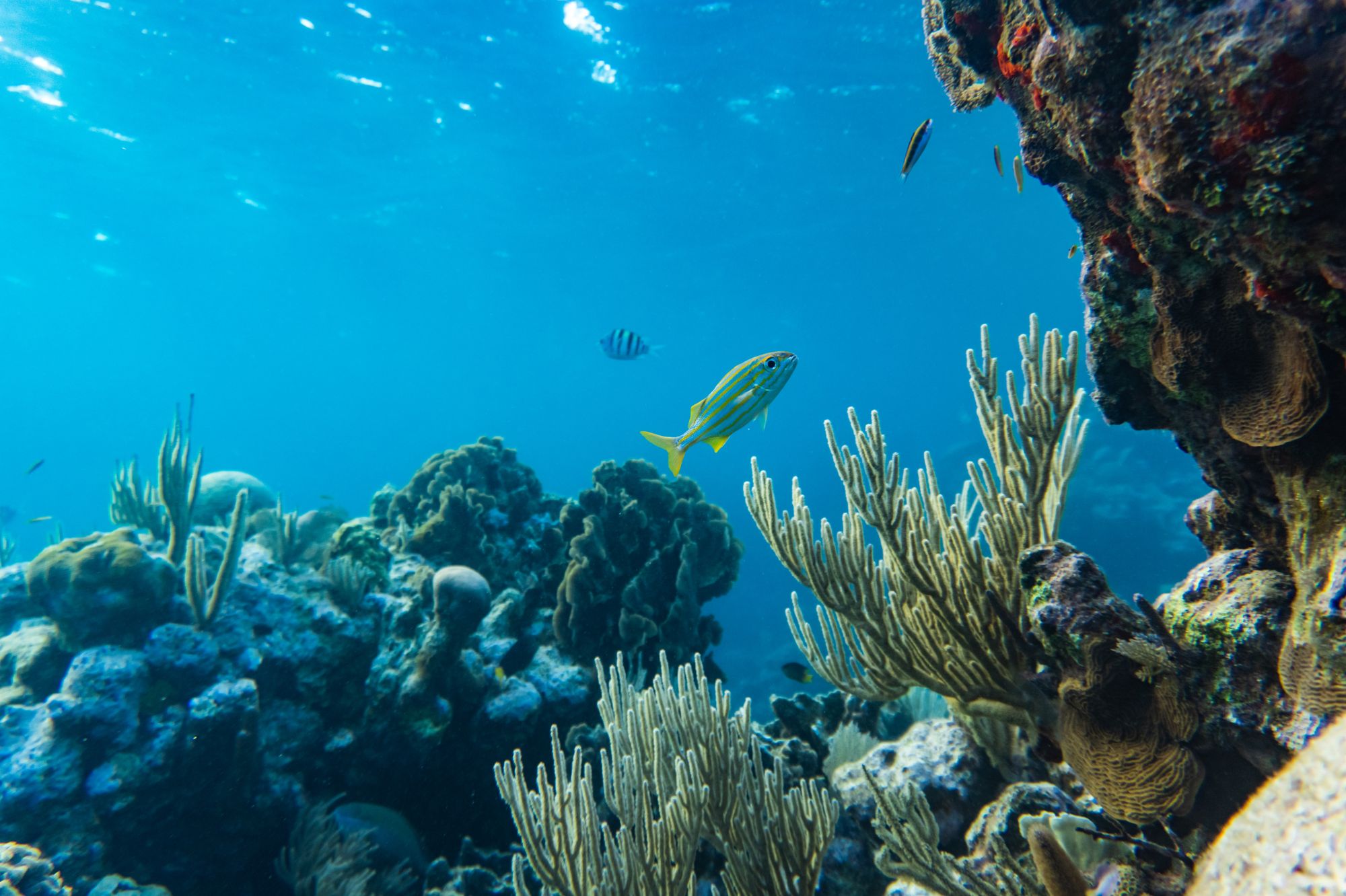
PML launches new strategy to 2030 at the World Ocean Summit in Tokyo
Global ocean science, policy and industry are gathering for the two-day event

Claiming land and wealth from the sea: the rise of ‘prestige reclamations’
A short communication calls attention to the emergence of a new kind of land reclamation – ‘prestige reclamation’ – with artificial la...
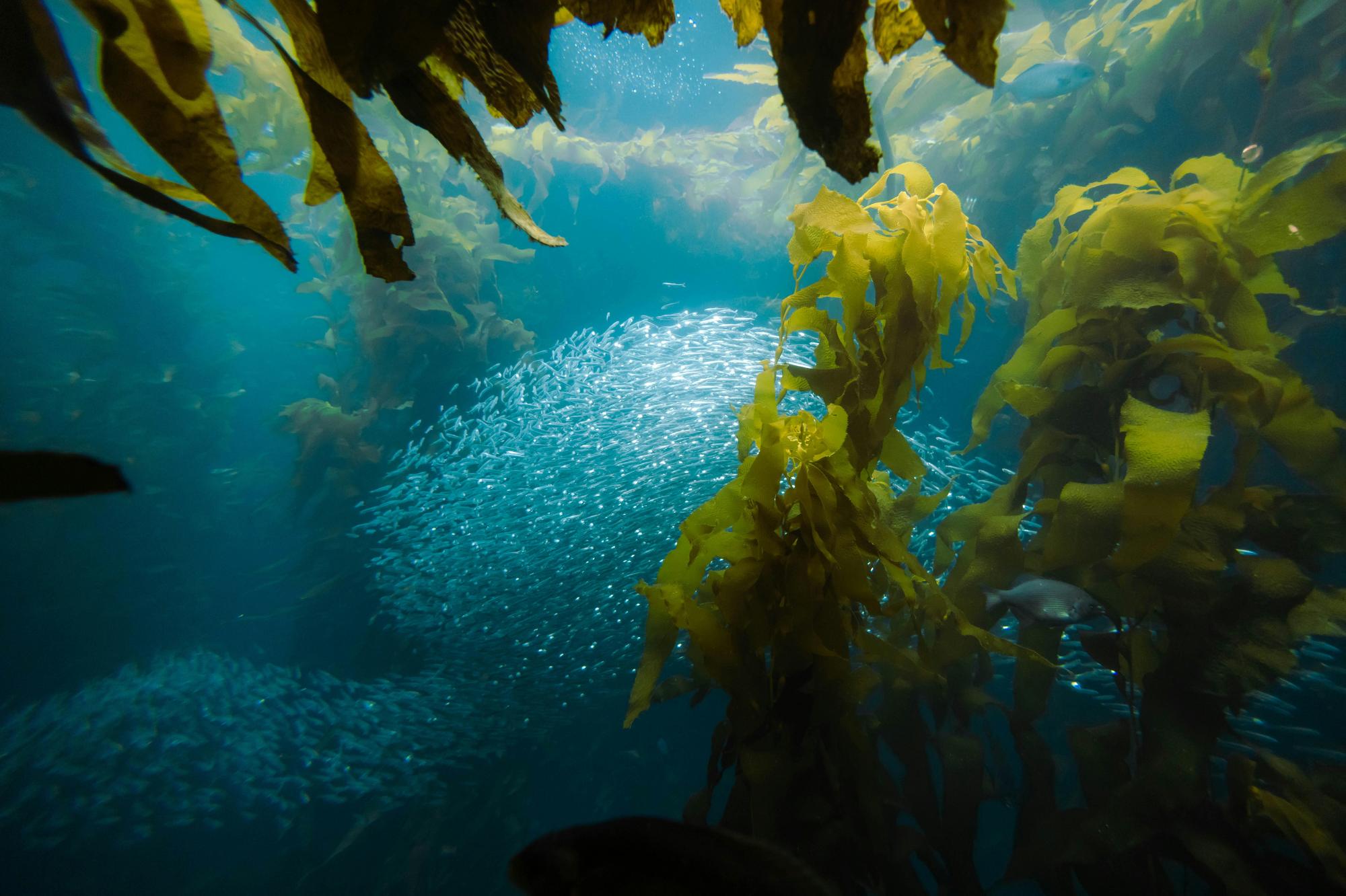
Plymouth Marine Laboratory Joins International Partnership for Blue Carbon
The IPBC is committed to ensuring all global blue carbon ecosystems are protected and sustainably managed.
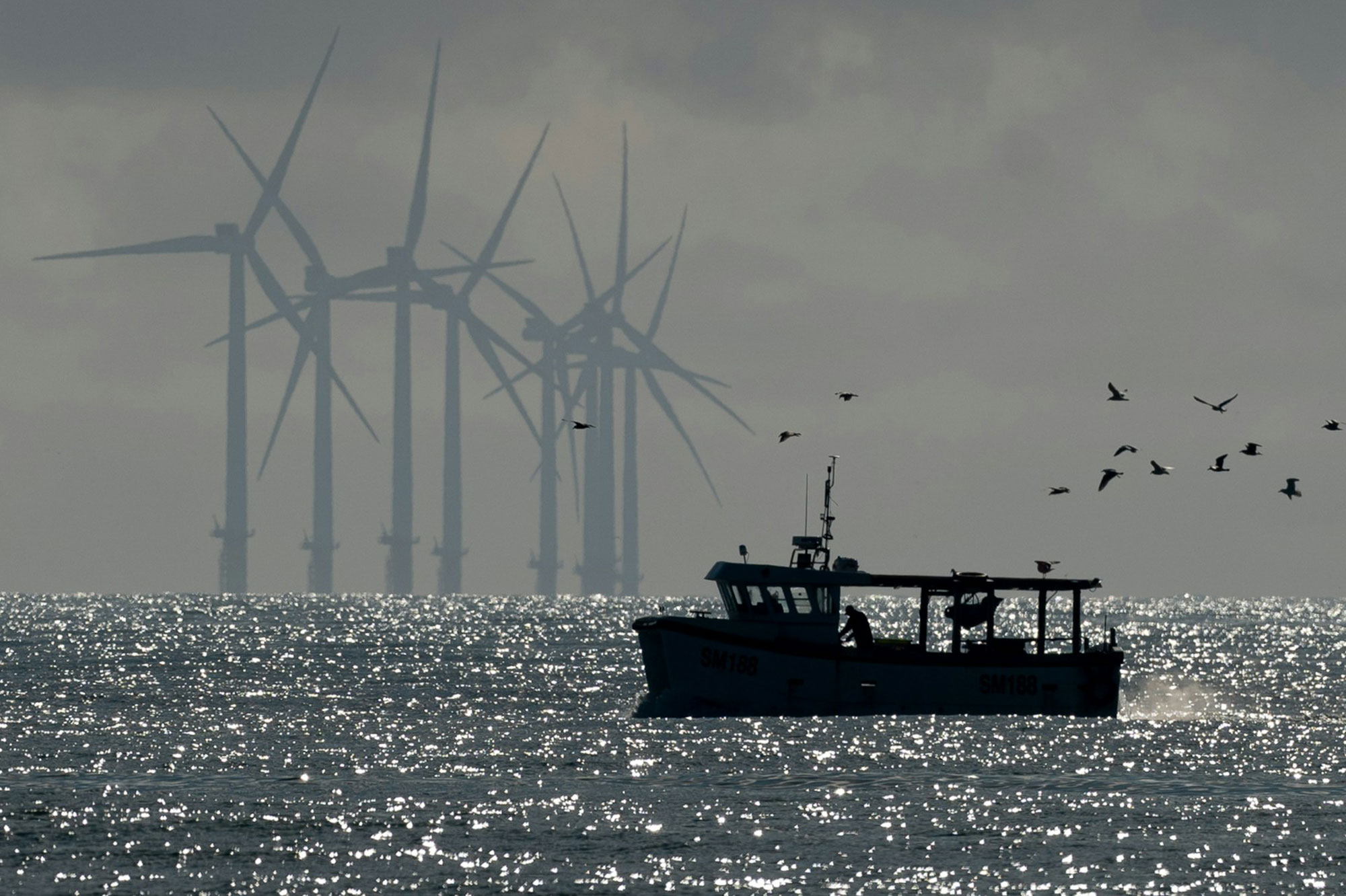
Can Offshore Wind Farms and the UK Fishing Industry co-exist effectively?
PML-led research highlights urgent need for standardised compensation and improved collaboration between energy companies and fishermen

UK Waters Facing Accelerated Ocean Acidification, New PML-Led Study Reveals
Plymouth Marine Laboratory (PML)’s Professor Helen Findlay has led the development of the latest Rolling Evidence Update on ocean acidification publ...
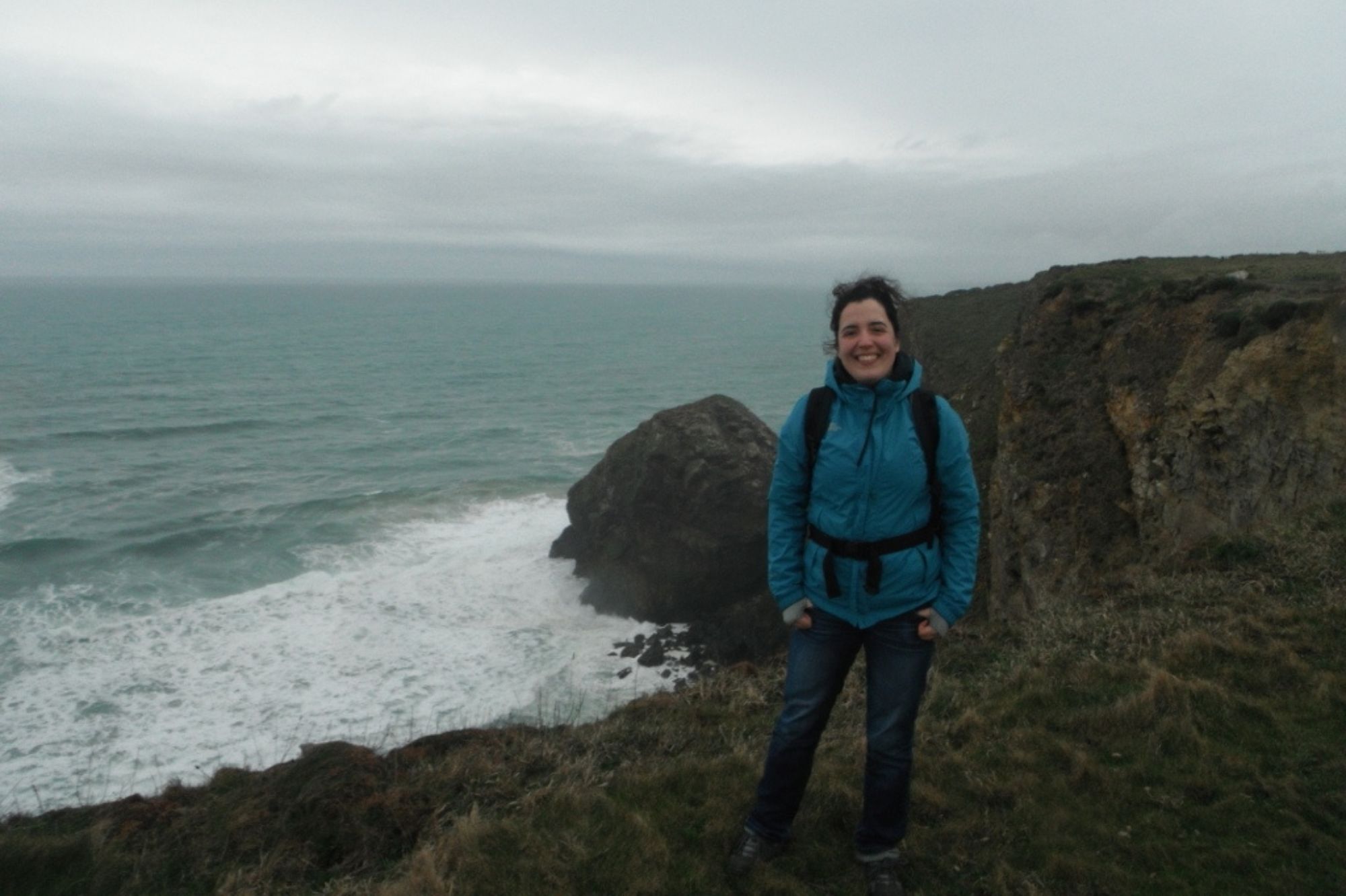
Staff spotlight: Dr Sevrine Sailley – Ecosystem modeller
Meet Dr Sevrine Sailley, who uses computer models to estimate how marine ecosystems may change in the future, to help society make more informed decis...
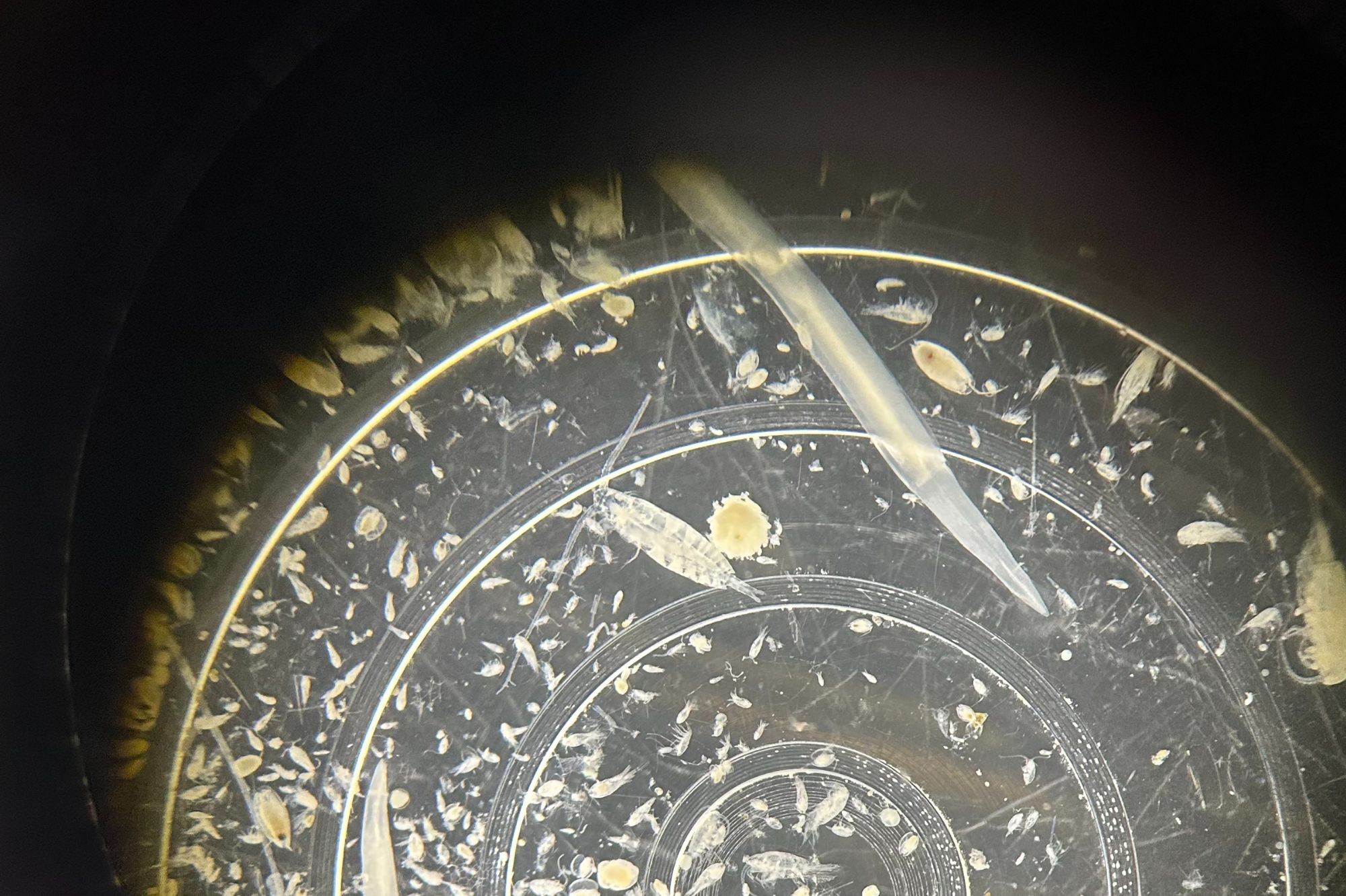
What have plankton ever done for us?
PML scientists have featured in a short documentary by the RAZOR Science show titled, ‘What has plankton ever done for us?’.
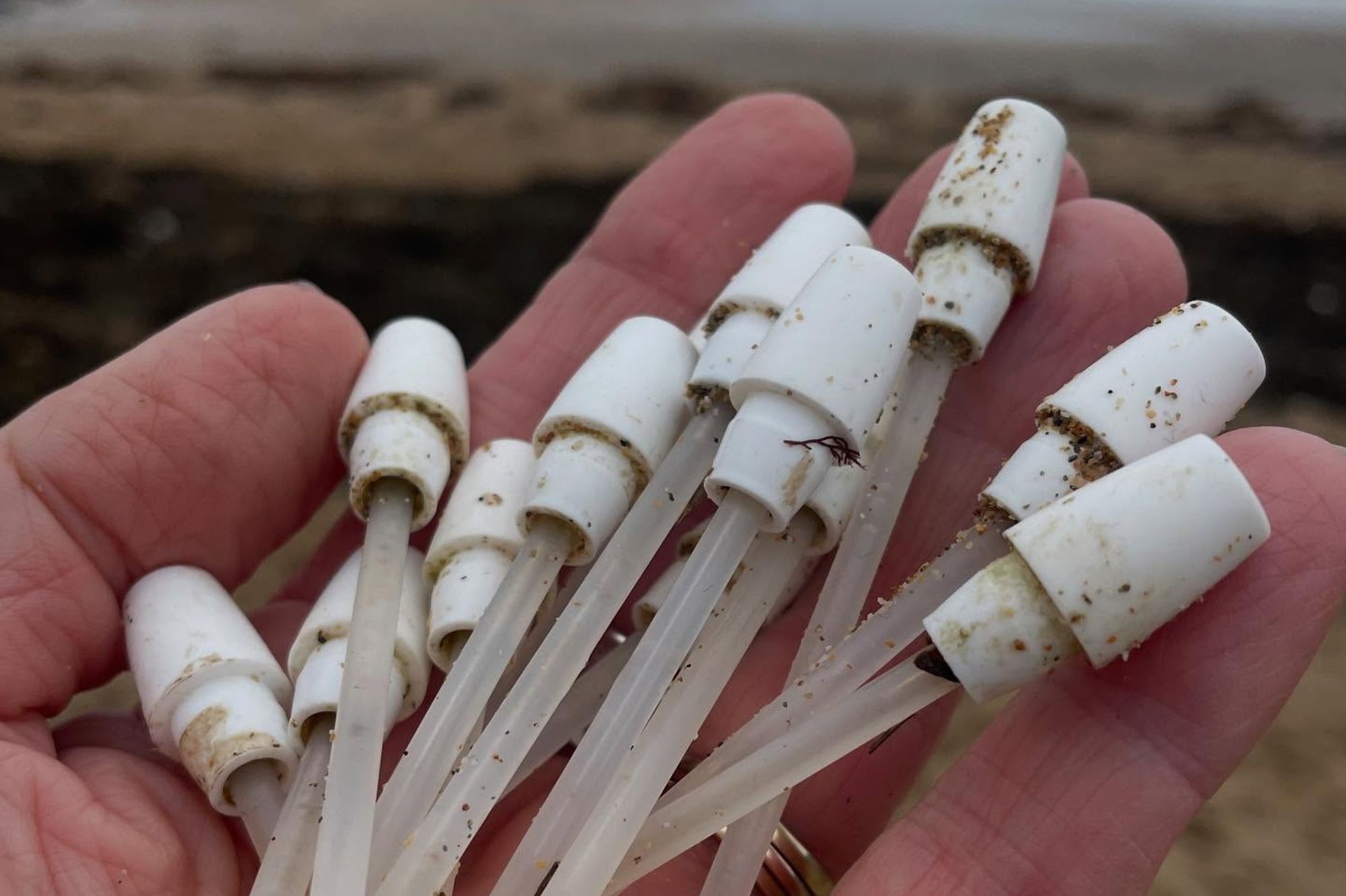
MEDIA: 1000s of plastic tubes wash up on beaches
Emily Stevenson, PhD researcher at PML and the University of Exeter, featured on BBC Spotlight over the weekend investigating thousands of plastic tub...

Sunscreen’s potential impact on marine life needs urgent investigation, new study reveals
The chemicals found in sunscreens are becoming an increasing presence in our ocean. But there are still significant gaps in our understanding of how t...

MEDIA: PML scientists comment on reverse-ban of plastic straws in the US
“It is a big step back in the battle against plastic pollution”. PML’s Dr Samantha Garrard‘s comments have featured on the sto...

Unveiling secrets of the Atlantic Ocean through ‘spectral fingerprints’ of phytoplankton
A new study reveals the optical properties, or ‘spectral fingerprints’, of phytoplankton in the ocean, providing a valuable dataset for remote-sen...

Meet Bryony, our Phytoplankton apprentice
It’s National Apprenticeship Week! And what better way to celebrate than finding out more about our Phytoplankton Apprentice, Bryony Pearton, and he...

Meet the scientist awarded the Trevor Platt Fellowship: Monolisha Sundar Raj
We would like to wish a warm welcome to Monolisha Sundar Raj – the second scientist, and first woman, to be awarded the Trevor Platt Fellowship. As...

‘Why science needs women’ – International Day of Women and Girls in Science
2025 marks the 10th anniversary of the International Day of Women and Girls in Science, a UN observance day celebrated every 11th February, and to mar...

PML’s Prof. Nicola Beaumont appointed to government advisory council
We are thrilled to share the news that PML’s Professor Nicola Beaumont, has been appointed to the Science Advisory Council for the Department for En...

MEDIA: How Does Life Happen When There’s Barely Any Light?
‘Under the sea ice during the Arctic’s pitch-black polar night, cells power photosynthesis on the lowest light levels ever observed in nature&...

MEDIA: ‘How satellites have become Earth’s new health and nature watchdogs’
PML’s Dr Dhritiraj Sengupta has written for The Conversation UK on how satellites can improve monitoring for environmental and human health; in...

Offshore wind farms could cause significant ecosystem, economic and human health risks
A new study, including scientists from Plymouth Marine Laboratory, warns potentially harmful levels of metal from turbine protection systems are on th...

Pairing old and new technologies could unlock advances in plankton science
New study, that included PML scientists, highlights the benefits of existing long-term monitoring programmes and emerging technologies in monitoring t...

Plymouth PhD researcher begins Parliamentary fellowship
PhD researcher with the University of Plymouth and Plymouth Marine Laboratory begins a three month fellowship with the Parliamentary Office for Scienc...

PML and the University of Plymouth bring the issue of artificial light pollution to Parliament
Last week, Professor Tim Smyth, alongside Dr Thomas Davies of the University of Plymouth, took part in the annual Evidence Week at the Houses of Parli...

Marine Plastic Pollution: A breeding ground for disease-causing bacteria
New study reveals for the first time that particle type affects colonization, enrichment and spread of both antimicrobial-resistant and pathogenic (di...

PML scientist announced as new Chair of intergovernmental working group
We are thrilled to share the news that Dr Sevrine Sailley, Ecosystem Modeller at Plymouth Marine Laboratory (PML), has been appointed Chair for the In...

Staff Spotlight: Dr Elizabeth C. Atwood – Earth Observation Data Analyst
Meet Dr Elizabeth C. Atwood, who monitors the health of the ocean – and transitional water systems like rivers – using satellite data. From co...

MEDIA: ‘New analysis aims to gauge the impacts of offshore wind on the fishing industry’
PML’s Dr Claire Szostek has written for Fishing News regarding new analysis of the impacts of offshore wind farms on the UK fishing industry.

Marine light pollution science initiative endorsed by United Nations
The Global Ocean Artificial Light at Night Network (GOALANN) programme was conceived by world-leading experts at the University of Plymouth and Plymou...

Ethical use of AI to support climate and biodiversity research
Yesterday the UK government announced plans to ‘unleash AI’ across the UK to boost economic growth. However, this has raised questions about AI’...

PML Science Urges Accelerated Action on Ocean Acidification at UN High-Level Ocean Retreat
The ‘Investing in Ocean Solutions’ meeting is taking place this week in Korea

2024 confirmed to be the warmest year on record
Today the EU’s Copernicus Climate Change Service (C3S) released its annual Global Climate Highlights report that confirmed 2024 was the warmest yea...

Ocean literacy resources for the next generation
Calling all educators – discover our latest videos to open up the world of marine science and ocean literacy to your students.

MEDIA: ‘Climate change could overwhelm our sewers – green infrastructure may help’. PML’s Dr Rodriguez writes for The Conversation
PML’s Dr Mayra Rodriguez, Earth Observation Scientist, has written for The Conversation UK on how climate change could impact sewer systems in ...

Season’s Greetings from us all at Plymouth Marine Laboratory and PML Applications Ltd.
On behalf of the Board of Trustees, staff and students at Plymouth Marine Laboratory and PML Applications Ltd, we send you our Season’s greeting...

Maintenance trip turned ‘Mayday’ rescue as PML crew support efforts byRNLI
On Monday this week (16th December 2024), crew from Plymouth Marine Laboratory embarked on the PML Explorer RIB for routine maintenance on the L4 data...

Blinded by the light: the effects of urban lighting on beach bugs
A new method reveals severe and lasting damage to small coastal creatures.

Marine Stations: Uniting Global Science Beyond Borders
Reflections on the recent meeting of the World Association of Marine Stations (WAMS)

Energy review sets out the key energy priorities for the new UK Government
This week the UK Energy Research Centre (UKERC) released their flagship publication, with contributions from PML scientists, highlighting the UK energ...

PML’s Dr Victor Martinez-Vicente selected Coordinating Lead Author in major new global biodiversity assessment
This appointment follows the UK Government nomination of PML’s Bio-optical oceanographer Dr Martinez-Vicente for this vital new two-year methodologi...

First map of European aquatic habitats with both light and noise pollution revealed
An EU research project, involving scientists from Plymouth Marine Laboratory (PML), has produced the first interactive map of European marine and fres...

Investigating the mesophotic mysteries of Ascension Island to support effective marine conservation
PML’s Professor Kerry Howell is currently in Ascension Island, a remote volcanic island in the South Atlantic Ocean, to gather biodiversity and phy...

NOW AVAILABLE: Latest zooplankton abundance data from the Western Channel Observatory L4 site between 1988-2023
The Western Channel Observatory team have recently published the latest data on zooplankton abundance up to 2023 at the L4 coastal sampling site, whic...

Protecting valuable aquatic ecosystems through improved satellite monitoring of water quality
The PML-led ‘Copernicus Evolution – Research for harmonised and Transitional water Observation (CERTO)’ project has been showcased in th...

Next steps for collaborative marine research and management in the Plymouth Sound & the Tamar Catchment
Earlier this year, PML hosted a Research Impact Spotlight Event ‘Plymouth Sound & the Tamar Catchment’, bringing together over 110 participant...

Digital technologies for ocean management in focus at the East Asian Seas Congress
The 2024 event united 855 participants from 20 countries

Staff spotlight: Aser Mata – Earth Observation Scientist
Meet Aser Mata, an Earth Observation scientist at the forefront of advancing PML’s use of drones – taking our environmental research to new he...

PML supports launch of ocean literacy materials for schools across Europe
The ProBleu Resource Catalogue of teaching aids is a dynamic online resource designed to promote water literacy and ocean education.

New paper reveals unprecedented algal bloom linked to the 2020 mass mortality of African elephants
The paper was led by PML co-hosted PhD researcher Davide Lomeo, who used satellite remote sensing and spatial data analysis to discover extreme cyanob...

Transatlantic research cruise sets sail for Argentina
The 31st Atlantic Meridional Transect (AMT) leaves Southampton (UK) today for the 5 week voyage to Buenos Aires (Argentina), taking a plethora of mari...

What are the potential effects of floating offshore wind on marine ecosystems?
Plymouth Marine Laboratory is a leading partner in a new programme focused on enhancing understanding of how UK marine ecosystems may respond to futur...

PML Joins Global Call for Increased Ocean Action in the wake of COP29
More than 60 leading ocean organisations have signed the Baku Ocean Declaration

PML in the media: PhD researcher Clare Lewis to feature on Channel 5 documentary ‘Britain’s Killer Wave of 1607’
Clare Lewis – PhD researcher studying meteostunamis in the UK with the University of Reading and Plymouth Marine Laboratory – will feature in a Ch...

Taking care of our data platforms: servicing the E1 buoy
PML’s Marine Technology and Autonomy Team embark on the Trinity House Vessel Patricia to service E1 Buoy

PML Welcomes Ministerial Calls at COP29 for Urgent Action on Cryosphere Loss
An international high-level group is warning of disruption at global scales

Fully operational: young seaweed have been planted in the world’s first co-located seaweed and offshore windfarm
The world’s first commercial-scale seaweed farm, set within an existing offshore wind farm in the North Sea, is now fully operational. The final dep...

Ocean Acidification Week 2024
Our friends at the Global Ocean Acidification Observing Network (GOA-ON) have organised an incredible week of webinars – free for all to attend – ...

The colour of the ocean – why does it matter?
As part of Protecting our Planet Day (POP24), PML experts share an introduction to Ocean colour, and why it matters to our health and the health of ou...

Warning to COP29 from cryosphere scientists as glacier loss hits record highs
The newly published State of the Cryosphere Report 2024, including contributions from PML’s Prof. Helen Findlay, states that the world’s ice store...

Strengthening research cooperation with China to help advance global marine science
We are pleased to announce that a Memorandum of Understanding (MoU) has been signed between Plymouth Marine Laboratory and State Key Laboratory of Mar...

Major European report highlights need for integrated social and environmental science
The ‘Navigating the Future VI’ report was published by the European Marine Board with input from PML.

Unmasking Ocean Acidification: Global Scientific Community invited to help map its biological effects
Scientists worldwide are being called upon to contribute to a major global research initiative aimed at understanding the impacts of ocean acidificati...

Student spotlight: Charlotte Woodhouse
Did you know that rubber particles broken off from the wear and tear of vehicle tyres are a major source of marine plastic pollution? How does this af...

MEDIA: PML’s Dr Stefanie Broszeit writes for The Conversation UK on how to quantify the benefits the Ocean provides
Dr Stefanie Broszeit, Senior marine ecosystem services scientist at PML, has written for The Conversation UK about her work quantifying the value of ...

Sliver of cool surface water helps the ocean absorb more carbon
Subtle temperature differences at the ocean surface allow more carbon dioxide (CO2) to be absorbed, new research shows.

How is eDNA shedding light on marine biodiversity?
PML’s Dr Karen Tait discusses the role of eDNA in advancing our understanding of marine life

Taking research to new heights: how aerial drones are supporting UK science
PML contributes to national review of Uncrewed Aerial Systems (UAS)

13 going on 195: The Race to Stop Ocean Acidification
As the United Nations Biodiversity Conference (COP16) has started in Cali, Colombia, our Director of Science Professor Steve Widdicombe shares his th...

Does marine carbon dioxide removal have the potential to mitigate ocean acidification?
Professor Helen Findlay explores the varying forms of marine carbon dioxide removal, and the efficacy and possible impacts of these, particularly in r...

Revolutionizing Biodiversity Monitoring: The Power of AI and New Technologies
Dr James Clark, Professor James Fishwick, Claire Widdicombe, Elaine Fileman, Dr Saskia Rühl.

What next for the Ocean in Climate Change Talks? Q&A with PML’s Professor Matt Frost
It follows the publication of the Summary Report of the 2024 Ocean Dialogue ahead of COP29.

PML and the National University of Singapore announce partnership to advance marine science research and education
The signing of an Memorandum of Understanding was announced at a workshop in Singapore focused on marine monitoring.

Monitoring water quality in Plymouth Sound and beyond
Initial fieldwork results are shared from a project aiming to transform water quality monitoring around the globe.

UK’s energy transition receives funding boost
The UK Energy Research Centre (UKERC) has been awarded £11 million to continue its work in advancing the UK’s energy transition, to which Plymouth ...

Bridging global climate and biodiversity strategies: PML contributes to international “Blue Thread” Policy Brief
The brief aims to guide governments in including ocean-based climate solutions as a “blue thread” between climate and biodiversity

Connecting marine stations across the globe: advancing science and marine policy
With nearly a thousand marine research stations and field laboratories estimated across the world, how can organisations collaborate to tackle key soc...

Western Channel Observatory showcased at international marine monitoring workshop
This week Prof. Steve Widdicombe is showcasing the Western Channel Observatory at the Marine Monitoring for Action workshop in Singapore.

Indigenous and scientific perspectives of blue carbon in focus at international event
PML’s Senior Environmental Economist Dr Olivia Rendón and Honorary Fellow Torsten Thiele are among the 80+ experts attending the annual Interna...

Seaweed science, industry and policy in dialogue in the Hague
PML is attending the North Sea Seaweed 2024 event

PML Wins Regional Chamber Business Award for Green Innovation
The award puts PML on the shortlist for the national prize. Plymouth Marine Laboratory (PML) is thrilled to announce its recognition as a Regional Win...

Microplastic Pollution in focus at the MICRO 2024 Conference
PML senior scientists and students among those presenting and chairing.

PML scientists contribute to groundbreaking Plankton Manifesto
The ‘Plankton Manifesto’ highlights the essential function of plankton within marine ecosystems.

Project to tackle nitrogen pollution in the Maldives launched
A new initiative to address nitrogen pollution in the marine environment of the Maldives, in which Plymouth Marine Laboratory (PML) is a partner, has ...

Testing drones to help monitor water quality
Plymouth Marine Laboratory (PML) and the UK Centre for Ecology & Hydrology (UKCEH) have been working together to explore water quality monitoring ...

Antarctic krill can lock away similar levels of carbon as seagrass and mangroves
Small marine crustaceans are as valuable as key coastal habitats for storing carbon and should be similarly protected, according to new research invol...

Plymouth Marine Laboratory and Seabed 2030 announce partnership to support understanding of the global ocean
The two organisations have signed an MoU to work more closely together

FOCUS ON: Offshore Wind
PML scientists investigate the impacts of windfarm developments on marine life

New project: TRansformative Actions for resilient Coastal Communities (TRACC)
We’re excited to share our involvement in a new project that aims to bring together researchers, communities and stakeholders across the UK to c...

Sponsorship opportunity: ESA Ocean Synergy Training Course 2025 and the One Ocean Expedition
Plymouth Marine Laboratory joins the Trevor Platt Science Foundation to announce the sponsorship of a trainee from a developing country to participate...

MEDIA: Are ocean temperatures reaching a boiling point?
‘Over the past year global water temperatures have smashed records. Fuelled by Climate change and El Niño, which warms Pacific waters, high sea...

Tackling Nitrogen Pollution in the Maldives
Dr Olivia Rendón, Environmental Economist at Plymouth Marine Laboratory (PML), is in the Maldives this August to support a multi-agency programme to ...

Has reducing ship exhaust pollution accelerated global warming?
A new study explored the climate effect of the mandated reduction of sulphur in ship exhaust emissions globally since 2020. Highly relevant to interna...

World’s first co-located commercial-scale seaweed farm and offshore windfarm announced
This autumn, the world’s first commercial-scale seaweed farm co-located with an offshore windfarm will launch in the North Sea, about 18 kilometers ...

New South West Marine Ecosystems Report highlights the unusual marine events of 2023
Following the Annual South West Marine Ecosystems Conference, hosted at Plymouth Marine Laboratory (PML) on 26 April 2024, the State of South West Sea...
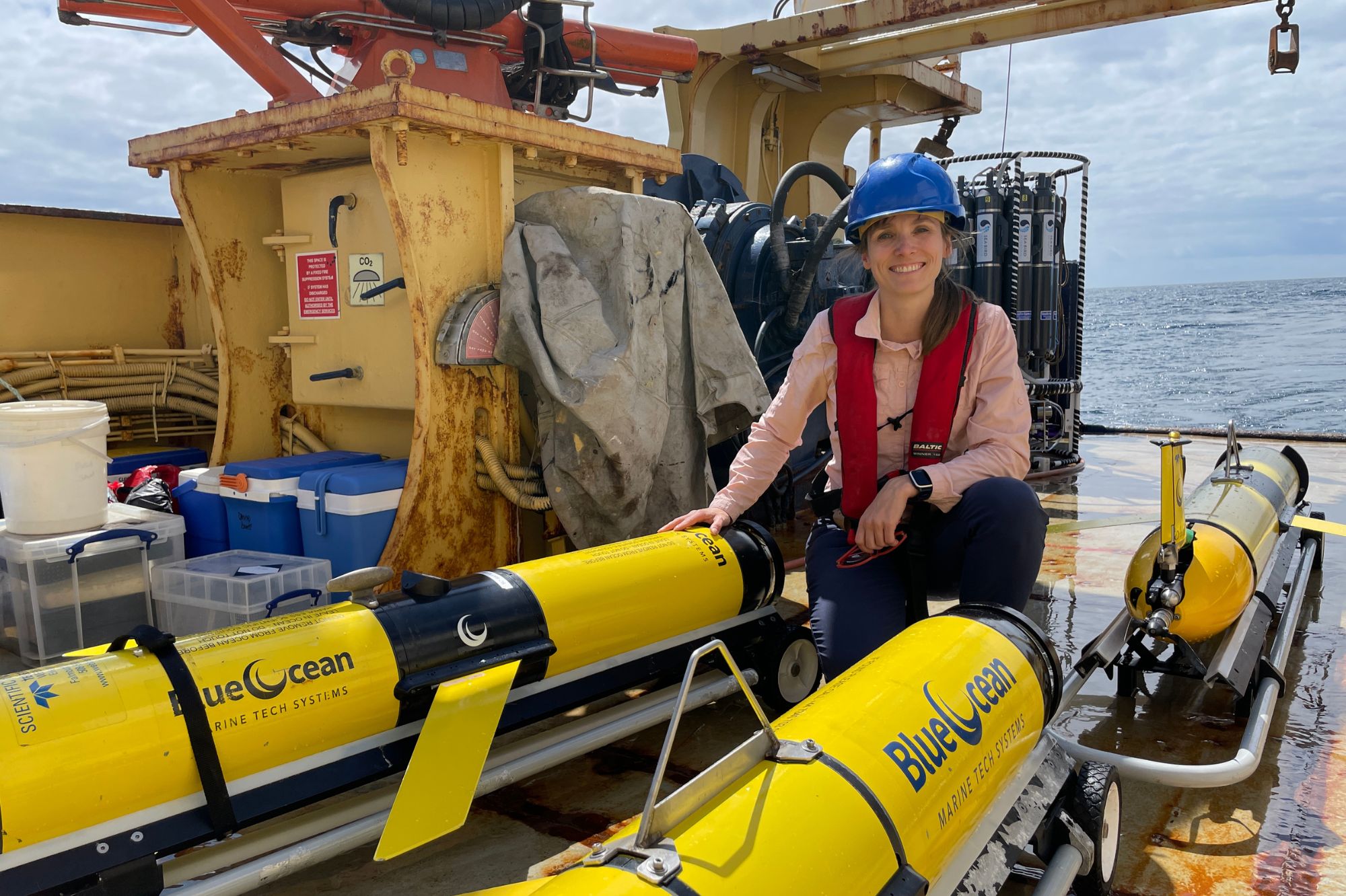
PML successfully deploy a fleet of ocean robots to improve future forecasts of ocean health
PML scientists have deployed a fleet of autonomous robotic gliders to monitor phytoplankton blooms and dissolved oxygen levels in the Western English ...

PML-led Transatlantic Research Project Endorsed as an Ocean Decade Action
The Atlantic Meridional Transect (AMT) from the UK to the South Atlantic enables pioneering investigations into how the Ocean is changing.

What is ocean alkalinity enhancement and why is it important?
Ocean Alkalinity Enhancement is one method of Ocean-Based Carbon Dioxide Removal (oCDR), also known as Marine Carbon Dioxide Removal (mCDR), a growing...

Are sunscreens damaging our marine environment?
As the summer sunshine sends thousands flocking to the South West’s coastline, researchers from the University of Plymouth and Plymouth Marine L...

Water pollution postpones Triathlons in Paris Olympics, highlighting urgent issue of water quality
Recent concerns over poor water quality at the Paris Olympics 2024 have highlighted the urgent need for effective monitoring and management of rivers....

Reflections on the 7th International Zooplankton Symposium
Earlier in the year, a team of PML researchers headed to Hobart, Tasmania for the 7th International Zooplankton Symposium. Some of the team kindly sha...

Is the Southern Ocean absorbing more CO2 than previously thought
New research led by the University of East Anglia (UEA) and Plymouth Marine Laboratory (PML) has found that the Southern Ocean absorbs more carbon dio...

PML welcomes the Associate Director of NERC’s National Capability
Delighted to host a visit by Tom Haynes, Associate Director of NERC’s National Capability, today at the laboratory! Discover the tour…

PML hosts work experience placements: discover one of the experiments!
We had a great week hosting work experience placements with Sixth Form students from the Nuffield Trust, with the aim to introduce students to the use...

Interactive ecosystem modelling training workshop enjoyed by international scientists
As a finale to the Advances in Marine Ecosystem Modelling Research (AMEMR) Symposium, an interactive ecosystem modelling training workshop was held at...

Local research, management and community representatives come together to discuss the future of Plym
PML recently hosted a landmark event that brought together over 110 participants from 30 organisations to tackle critical research needs for Plymouth ...

Using drone footage to map invasive species: managing the expansion of wild Pacific oysters
A new study led by PML scientists has, for the first time, explored the use of drones and deep learning to detect, count and map Pacific oysters ̵...

Plymouth MP visits lab to explore recent advances in marine science technologies
Luke Pollard MP today visited Plymouth Marine Laboratory (PML) to see firsthand some of the exciting new marine science technologies being developed i...

PML’s Dr. Dhritiraj Sengupta recognised with Google’s Geo for Good Impact award
The Geo for Good Impact Awards celebrate users and organizations creating real-world impact using Google’s mapping tools.

Plymouth Marine Laboratory Achieves Silver Investors in Diversity Accreditation
Plymouth Marine Laboratory (PML) is proud to announce that it has been awarded the respected Silver Investors in Diversity (IiD) accreditation.

Ocean warming in focus at Royal Society Summer Science Exhibition
Thousands are expected to attend the free event in London this week, an annual celebration of cutting-edge research that has hosted displays and discu...

UK National Champion of the Frontiers Planet Prize: Prof Widdicombe shares reflections
It was announced in April that PML’s Professor Steve Widdicombe was voted as the UK National Champion for the Frontiers Planet Prize, a global c...

Pioneering Ocean Carbon Removal technique proves successful in pilot study
The trial off St Ives Bay in Cornwall involved adding magnesium hydroxide to wastewater.

PML in the media: BBC Rare Earth – ‘Can an oil rig be a nature reserve?’
PML’s Professor Matt Frost featured on BBC Rare Earth today (28th June) discussing the problem faced by governments across the world… with...

L4 Autonomous Buoy back on station
Following the planned major overhaul and sensor upgrades, the L4 Autonomous Buoy has now been deployed back on station at the L4 sampling site, 4 naut...

WATCH: Latest video on detecting oil spills using state-of-the-art satellite technology
New video summarises research at Plymouth Marine Laboratory (PML) that is helping to detect oil spills across the global ocean using satellite technol...

Staff spotlight: Lee Merchant – Head of Estates and Facilities
Who manages the day-to-day running of our four-storey laboratory; brimming with an assortment of experiments and research spanning seven science depar...

Funding secured for automated image-analysis biodiversity monitoring project
The Natural Environment Research Council (NERC) has announced funding for a new project proposed by our Dr James Clark and collaborators, to develop s...

New study shows plastic and non-stick cookware is likely adding thousands of microplastics into the
A new collaborative study from scientists at Plymouth Marine Laboratory (PML), NORCE Norwegian Research Centre, SALT Lofoten and the Norwegian Institu...

Major boost for oceanic research as Challenger 150 joins forces with Seabed 2030
Coinciding with World Oceans Day (8th June 2024), two major international marine initiatives have announced the signing of a landmark agreement to wor...

PML’s Professor Angus Atkinson awarded MBE in the King’s Birthday Honours
Professor Atkinson has been recognised for his services to Polar Marine Research and Conservation, at the same time his father Anthony Atkinson was al...

PML celebrating the United Nations World Oceans Day
World Oceans Day (WOD) is celebrated annually on 8th June across the globe, fostering public interest in the crucial role the ocean plays in all of ou...

Increased ocean observations urgently needed, according to UN State of the Ocean Report 2024
PML’s Professor Steve Widdicombe was among the authors

Climate change exacerbated June 2023 marine heatwave
New research has shown that while high-pressure weather conditions were the main driver behind the elevated temperatures, warming due to climate chang...

WATCH: summary findings of the Decommissioning – Relative Effects of Alternative Management Strategi
This week the DREAMS team presented their findings from their 3 year study into the different strategies for decommissioning structures in the North S...

PML wins ‘Planet Saver’ award
The award was presented at the 2024 Devon &Plymouth Chamber Awards ceremony, “celebrating Devon’s brightest businesses’.

Accelerating global biodiversity efforts: key themes from the recent UN advisory meeting in Kenya
PML’s Professor Matt Frost reflects on the 26th SBSTTA meeting

Seaweed forests are an overlooked component of oceanic carbon storage
A groundbreaking study by an international team of researchers, including scientists from Plymouth Marine Laboratory (PML), has revealed seaweed fores...

The sonification of marine heatwaves
“Sonification’ is a term to describe the musical representation of data, and here, we share a sonification using projected model data of t...

Staff Spotlight: Dr Frances Hopkins – Marine biogeochemist
Meet Dr Frances Hopkins – or more affectionately known at the laboratory here as Frankie – a Marine Biogeochemist in our “Marine Bio...

MEDIA: “Suffocating seas…” Prof Ana Queirós on marine heatwaves and ‘seabed hypoxia’
PML’s Marine and Climate Change Ecologist Prof Ana Queirós was interviewed by the BBC for their article, “Hurricanes, heatwaves a...

MEDIA: Project Oceanus: Revolutionizing Oceanic Research with Autonomous Vessels
Listen now to Yachting International Radio’s Yacht Crew Vlog, featuring our Chief Executive Professor Icarus Allen and Brett Phaneuf from Submer...
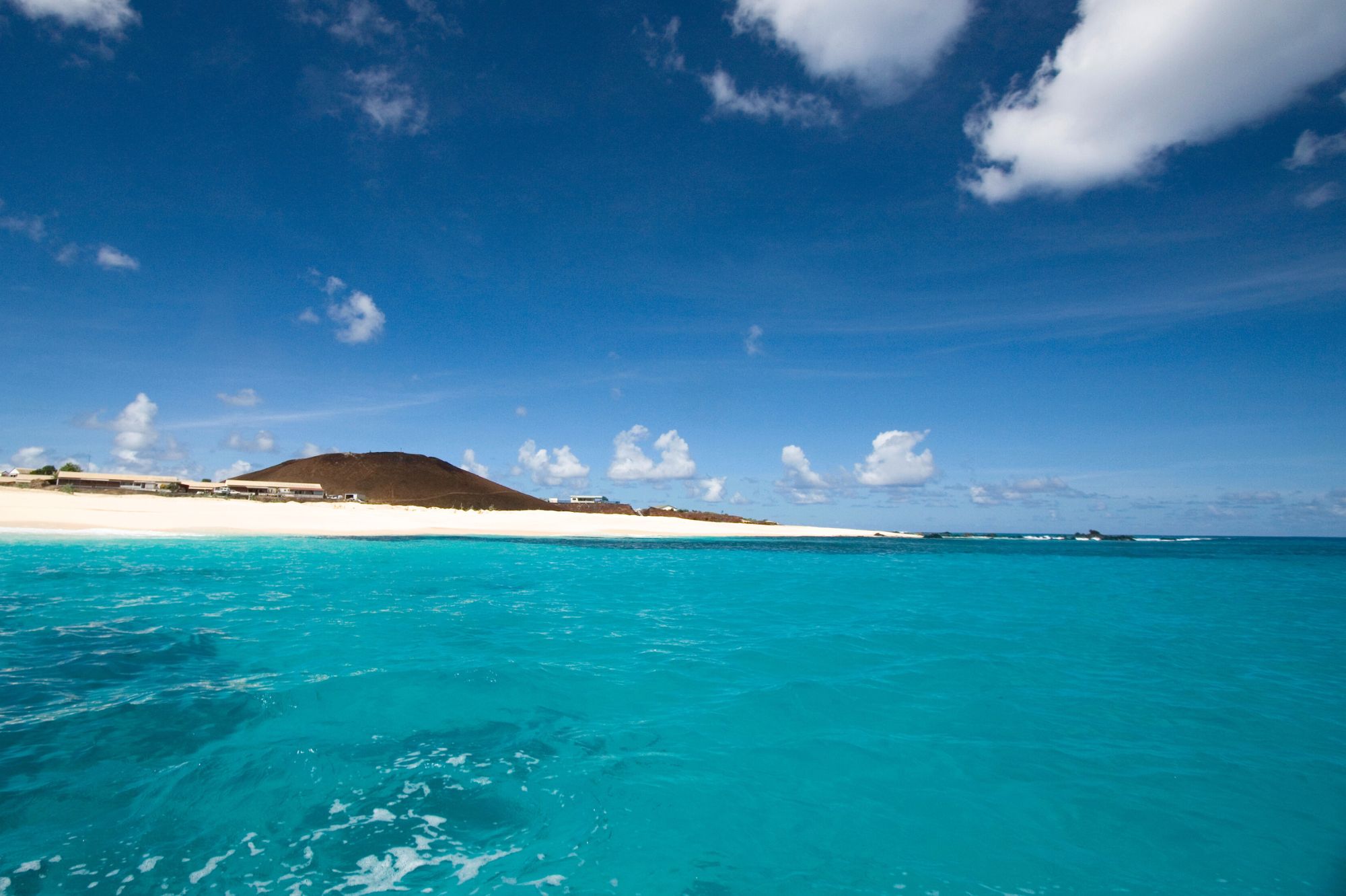
Marine Protected Area ‘not safe’ from climate change, projections show
Computer models forecast a worrying future for the Ascension Island Marine Protected Area.

Widespread microplastic pollution in Peruvian mangrove sediments and edible mangrove spe
New study shows that the mangroves of Tumbes, Peru are extensively contaminated with microplastic pollution, and estimate that the local inhabitants a...

New study provides vital insight for climate-smart marine planning in UK waters
The most advanced and comprehensive analysis of climate change impacts on the UK’s marine environment, in support of effective marine conservation a...

Future regulation of marine autonomy in discussion in Singapore
PML’s Professor James Fishwick takes part in a UK Marine Autonomy summit during Singapore Maritime Week

PML’s Prof Widdicombe voted as 2024 Frontiers Planet Prize Champion
It was announced today (22nd April 2024) that our Director of Science Professor Steve Widdicombe is one of 23 researchers from 23 countries voted as t...

Precious cargo… delivering our autonomous buoys to the sea
There was a lot of activity at the laboratory this week as we moved two of our autonomous buoys to Turnchapel Wharf in Plymouth, the final stretch bef...

5 key takeaways from the UN Ocean Decade Conference
The event in Barcelona brought together around 1,500 scientists and representatives of governments and environmental organisations.

Monitoring marine biodiversity from space
PML has worked with the European Space Agency (ESA) for a number of decades, building a strong collaborative relationship on Earth observation researc...

How do we address the complex issue of microplastic pollution?
International experts gather for panel discussions during UN Ocean Decade event in Barcelona.

Initiative increases awareness of the threats posed by light pollution to the global ocean
The Global Ocean Artificial Light at Night Network (GOALANN) was launched today at the United Nations Ocean Decade Conference in Barcelona.

CGI impression of ‘Oceanus’ – the world’s first long-range autonomous research vessel
Be the first to see the new video featuring a computer-generated imagery (CGI) impression of our eagerly-anticipated research vessel, the “Ocean...

PML in Barcelona for the UN Ocean Decade Conference
Our colleagues will be taking part in the 2024 UN Ocean Decade Conference (10-12 April) and the Ocean Decade Week (8-12 April). Find out more about th...

IN DISCUSSION: How best to monitor, report and verify ocean-based carbon removal?
Leading scientists, industry and governmental representatives gather for international workshop on ocean-based carbon dioxide removal.

View from above: monitoring the impacts of flooding on river water quality using optical sensors
New sensors have been installed on the Tamar Bridge in Devon as part of an international project

PML to exhibit at the Royal Society Summer Science Exhibition
Leading UK scientists will be bringing the ocean to London for a week of free science activities

High-risk zones identified where plastic litter threatens whales, dolphins and seabirds of the North
A new study, led by Plymouth Marine Laboratory, has revealed five high-risk zones where floating plastic litter poses the greatest risk to North Atlan...

The world’s leading zooplankton experts gather for the 7th international symposium
A team of PML researchers are heading to Hobart, Tasmania for the 7th International Zooplankton Symposium, with Prof. Angus Atkinson having the honour...

Building bridges between science and policy through the Royal Society ‘pairing scheme’
PML is taking part in the annual initiative to give scientists an insight into UK policymaking.
Protecting Our Planet session on detecting marine plastics from space now live
The ‘Protecting Our Planet’ Ocean session is now available to watch, featuring PML’s Senior Research Software Engineer, Dr Dan Clewl...

Non-native species in a hotter Europe: predicting the future spread of Pacific oysters
How will climate change affect the spread of non-native species? A new paper led by PML scientists investigates the expansion of the non-native Pacifi...

Celebrating Honorary Professorships with the University of Plymouth
We are thrilled to announce that a number of PML’s scientists have been awarded Honorary Professorships from the University of Plymouth.

The AgZero+ project: our work to protect rivers… and the ocean.
Most rivers ultimately lead to the sea, and so the health of our rivers is linked inextricably to the health of our ocean. Today (Thursday 14th March)...

International research warns of significant impact of global warming on biodiversity in European
New study shows an unprecedented redistribution of marine ecosystems as a result of ocean warming that may have important economic and social conseque...

New report shows all Irish inshore waters will be under pressure from climate change by the end of t
A new report has been published by Fair Seas, led by scientists from Plymouth Marine Laboratory, highlighting key Irish marine areas that can promote ...

Five hotspots where floating plastic litter poses the greatest risk to North Atlantic marine life
The pervasive use of plastic in modern society has led to plastic litter becoming ubiquitous within the ocean, writes Marine Ecosystem Services Resear...

‘The world must rethink plans for ageing oil and gas platforms’
PML scientists have been published in a Nature.com comment article, where they stress the need for “a review of decommissioning strategies [R...

Share your research: social & cultural values & valuation of UK marine & coastal ecosystems
We are calling for researchers to submit research to feed into a structured review of social and cultural values of UK marine and coastal ecosystems, ...

PML in the media: ‘The extreme science of climate forecasting’ – Financial Times
Our Director of Science Professor Steve Widdicombe and Biological Oceanographer Professor Helen Findlay were interviewed by the Financial Times on the...

Marine biodiversity conservation: NECCTON project endorsed by UN Ocean Decade
It was announced last week that the NECCTON project – dedicated to enhancing marine biodiversity conservation through innovative methods –...

Professor Queirós on unlocking the secrets of the Orkney kelp forests
Watch the new film featuring PML’s Professor Ana M Queirós and Thomas Mesher, who talk alongside colleagues from Heriot-Watt University...

Incorporating climate-readiness into fisheries management strategies for tropical seas
New collaborative study has developed an important addition to the decision support toolkit of tropical fisheries managers, to enable proper considera...

PML scientists evaluate the evidence-base on the impacts of offshore wind farms
New metrics are needed to help policymakers assess the benefits and environmental effects of offshore wind more effectively, writes Ecosystems Service...

2nd funding call now open: could your school be a blue school?
We’re delighted to announce that the 2nd funding call is now open for educators and schools to dive into water literacy and sustainability proje...

Update from our Dr Glen Tarran on the Antarctic PICCOLO expedition
Our Marine microbial ecologist Dr Glen Tarran is one of the PML scientists onboard the RRS Sir David Attenborough, which is currently navigating the A...

PML-hosted Earth observation service recommissioned following continued success
NERC Earth Observation Data Analysis and Artificial-Intelligence Service (NEODAAS), a service hosted at Plymouth Marine Laboratory (PML), overseen by ...

Microplastic shape influences fate in vegetated wetlands
New study shows that the shape of microplastics influence their trapping in coastal vegetated habitats, and adds to the growing knowledge base of accu...

Key considerations identified for the development of an effective global plastic treaty
A new study, published in Nature Scientific Reports, reveals that the availability of viable pollutant substitutes and environmental risk rather than ...
Superyacht Science: How luxury boat owners are supporting global marine research
In their quest to improve our understanding of the changes taking place in the world’s oceans, leading scientists from Plymouth Marine Laborator...

Protecting the ocean through marine net gain
Recent research undertaken by Plymouth Marine Laboratory scientists has revealed several key insights from offshore windfarm stakeholders, in relation...

Sea Technology Magazine Review and Forecast: Advancing Marine Science Tech For a Cle
PML’s Chief Executive, Prof. Icarus Allen, writes for Sea Technology Magaine about exciting developments and achievements at PML in 2023 and wha...

Tackling nitrogen pollution in South Asia, project update from the Maldives
The Maldives is a nation of islands in the Indian Ocean, renowned for its idyllic beaches, glass-like waters, and rich marine biodiversity; home to ab...

Small but mighty – study highlights the abundance and importance of the ocean’s tiniest inhabitants
New research sheds light on tiny plankton, which measure less than 0.02mm in diameter but can make up more than 70% of the plankton biomass found in t...

How investment in AI is pushing the boundaries of marine science
PML’s artificial intelligence (AI) capabilities are expanding rapidly. Here we are excited to share our new AI video as well as a Q&A with D...

PICCOLO photo diary: 30-day scientific expedition in Antarctica
Our scientists are currently in Antarctica, on an ambitious 30-day scientific expedition onboard the RRS Sir David Attenborough. In this update, we sh...

PML tests new plankton imaging tech – see the plankton photos it captured!
Our scientists took our new Imaging FlowCytobot down to the local Millbay Marina last week for our first-ever test of the equipment in real sea condit...

Listen to the podcast: Professor Steve Widdicombe on the Ocean-climate nexus
“Each one of us has a vested interest in the Ocean, because the Ocean is critical in maintaining our climate”. Listen to our Director of S...

Offshore wind farms: new paper reveals global impacts on biodiversity and ecosystem services
To help meet net-zero emission targets by 2050, it is estimated that there will need to be a drastic increase in the development of offshore windfarms...

PML contributes to Brian Cox School Experiment films
PML is excited to share the news that the next installment of Brian Cox School Experiment videos has been launched, including a video on ocean acidifi...

Improving understanding of light and noise pollution on aquatic environments
PML is pleased to be participating in a new EU project, launched this week, to improve our comprehension of how biodiversity is being impacted by ligh...

Early Career Ocean Professionals Africa awarded ‘Ocean Tribute Award’
Our Dr Anthony Ndah is the Coordinator for Early Career Ocean Professionals (ECOP) Africa, which has been awarded the “Ocean Tribute Award’...

New internal projects incubator awards first funding
PML is pleased to share the news of three projects, on the topics of oil spills, health impacts of sea spray and ocean connectedness, have been awarde...

PML contributes to UK ‘Future of Ocean Technology’ inquiry report
Policy-makers and stakeholders attended a recent launch event and roundtable discussion in Parliament.

Climate change threatens fish supply: tiny phytoplankton, big consequences
PML’s Dr Angus Atkinson has led a new study that reveals a hidden danger lurking beneath the waves: climate change is silently eroding the ocean...
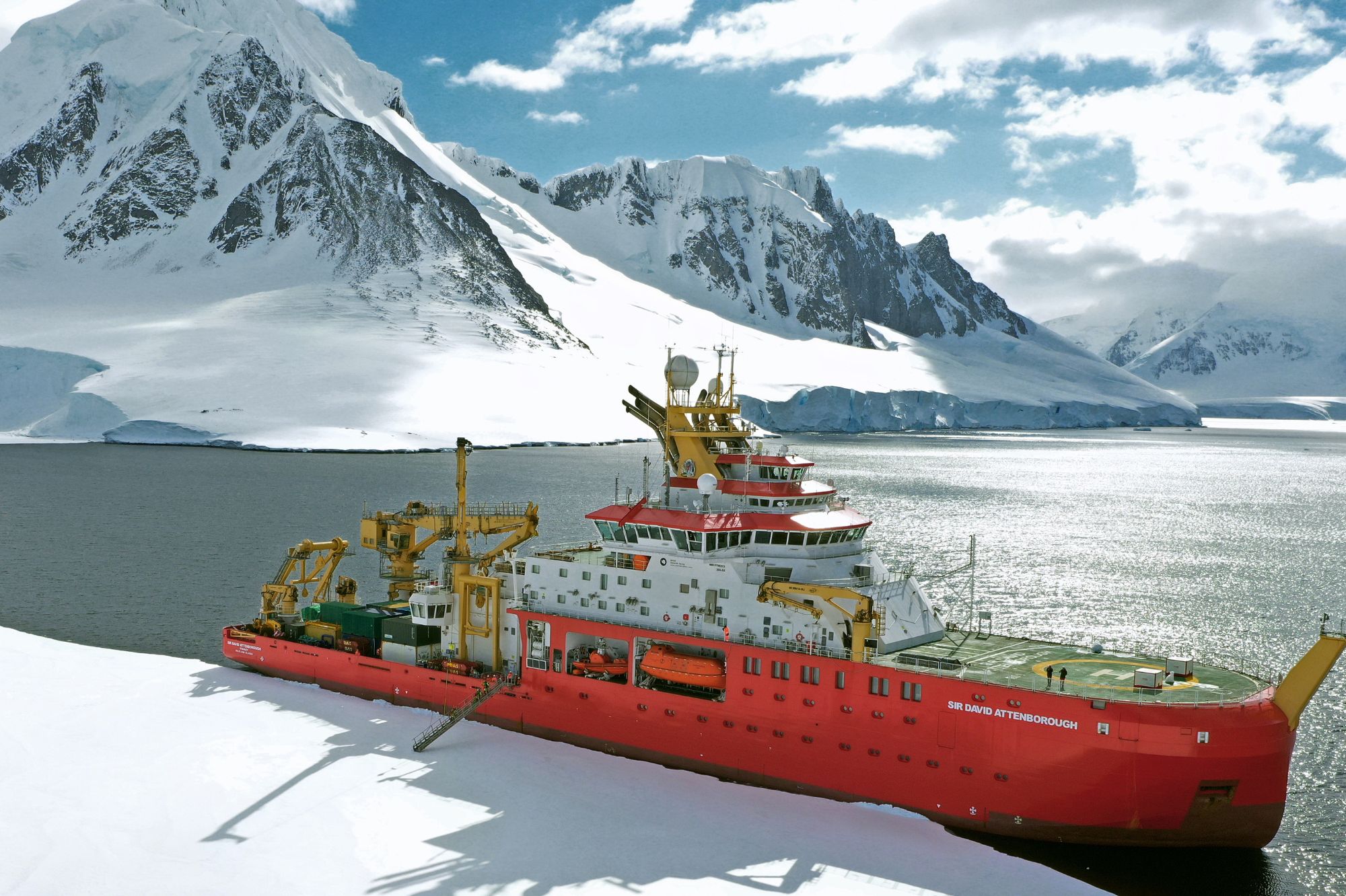
PML scientists head to Antarctica to investigate the carbon secrets of the Southern Ocean
The ambitious 30-day scientific expedition aboard the RRS Sir David Attenborough is part of the PICCOLO project

PML awarded funding to develop state-of-the-art digital twin for harmful algal bloom monitoring
Through the Twinning Capability for the Natural Environment (TWINE) programme, PML has been successful in a funding bid that aims to significantly imp...
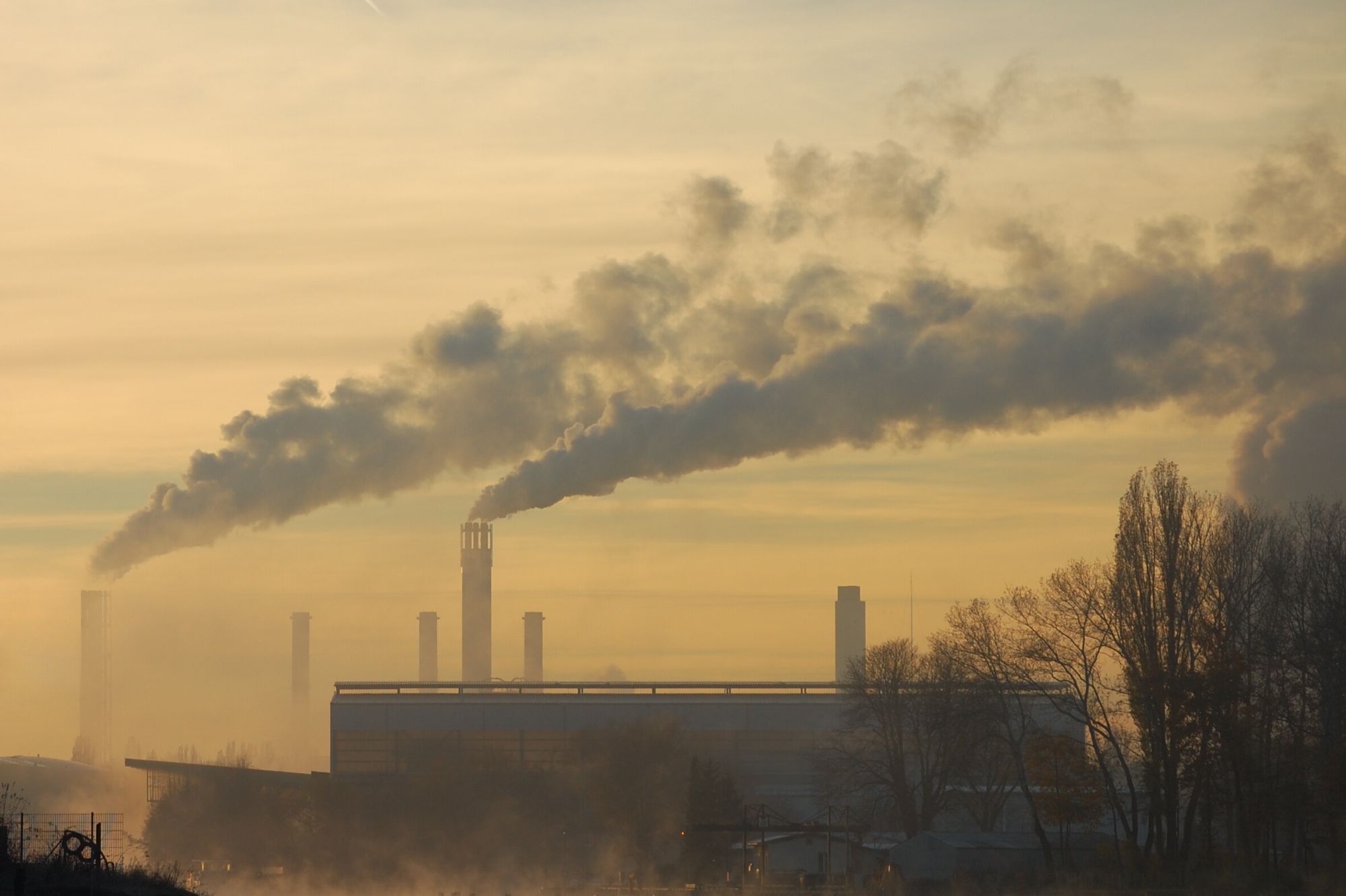
How will global warming and emissions affect the Earth’s carbon cycle?
PML scientists have led a new publication that has shown that the carbon cycle (the direction, flow and destination of carbon between Earth’s ca...

What happens to biodegradable plastics if they enter the sea?
Our new study investigates what happens when biodegradable plastics enter the ocean, and whether these increasingly popular alternatives to convention...

UK fishing community shares its views on offshore wind
Preliminary results from our survey on the impacts of offshore wind farms on commercial fishing in the UK. There is still time to share your views, wi...

Western English Channel data is now easier than ever to access
We are happy to share the news that the Western Channel Observatory has made accessing its century worth of physical, chemical and biological data fro...

Arctic adventures: reflections on 1st leg of the Ocean Warrior expedition
This is a chat with internationally-renowned explorer and founder of Ocean Warrior, Jim McNeill, and PML’s Chief Executive, Prof. Icarus Allen, ...

Staff spotlight: Prof. Stefan Simis – Earth Observation Scientist (inland/coastal waters)
Whilst most of our scientists focus on marine research, Professor Stefan Simis specialises in inland water ecosystems – using satellite data to ...

Celebrating Honorary Professorships with the University of Exeter
A number of PML staff have been awarded Honorary Professorships by the University of Exeter, highlighting the outstanding contribution of their collab...

COP28, the ocean, cryosphere and Plymouth Marine Laboratory
COP28 acknowledged the need to transition “away from fossil fuels” but many feel it is not enough.

Help to shape policy: share your views on the impacts of offshore wind farms on commercial fishing
The survey, launched today, aims to gather feedback from those working in commercial fishing in the UK, using data collected to help inform more effec...

Mapping floods and pathways for water-borne diseases with satellites
A newly published study of existing satellite algorithms shows that multi-spectral satellite images can be used to generate flood maps in the Lake Vem...

Taking space to COP28
Plymouth Marine Laboratory (PML) is excited to be part of the very first dedicated Space Pavilion, showcasing the latest climate data, technology and ...

Final Call for Trevor Platt Fellowship Applications
Our brilliant Gayathra Bandara, tells us about his experience as the first-ever Trevor Platt Fellow, and urges aspiring scientists to apply for the 20...

Maximising the potential of Blue Carbon ecosystems
PML scientist contributes to new Blue Carbon policy brief that outlines the ways in which coastal blue carbon ecosystems are currently “actionab...

PML and the National Institute of Oceanography and Fisheries commit to international cooperation
Today at the UN Climate Change meeting COP28, in the ‘Rising Seas: Coastal Strategies and Solutions’ side event, PML signed a letter of in...

Major new report confirms just 2°C of warming will trigger irreversible global damage
Our Professor Helen Findlay, along with over 60 other leading cryosphere experts, contributed the latest in scientific research to inform the State of...

COUNTDOWN TO COP28: PML scientists championing the Ocean in climate negotiations
PML ocean and climate experts will be playing active parts in the 28th Conference of the Parties to the United Nations Framework Convention on Climate...

Project ProBleu: Promoting ocean and water literacy in school communities
Plymouth Marine Laboratory have joined forces with the Institute of Marine Sciences (ICM-CSIC) and four other partners to deliver project ProBleu: to ...

PML contributes to multi-organisational report highlighting ocean and climate action
The Roadmap to Oceans and Climate Action (ROCA) initiative, involving governments, international agencies, NGOs, scientific institutions, private sect...

PML supports international calls for increased ocean observations ahead of COP28
Ocean Pavilion partners and stakeholders have unveiled the COP28 Dubai Ocean Declaration in advance of the UN climate conference.

PML scientists once again recognised on the Highly Cited Researchers list
We are thrilled to share the news that PML’s Prof. Pennie Lindeque and Dr Matthew Cole have yet again both been named on Clarivate’s Highl...
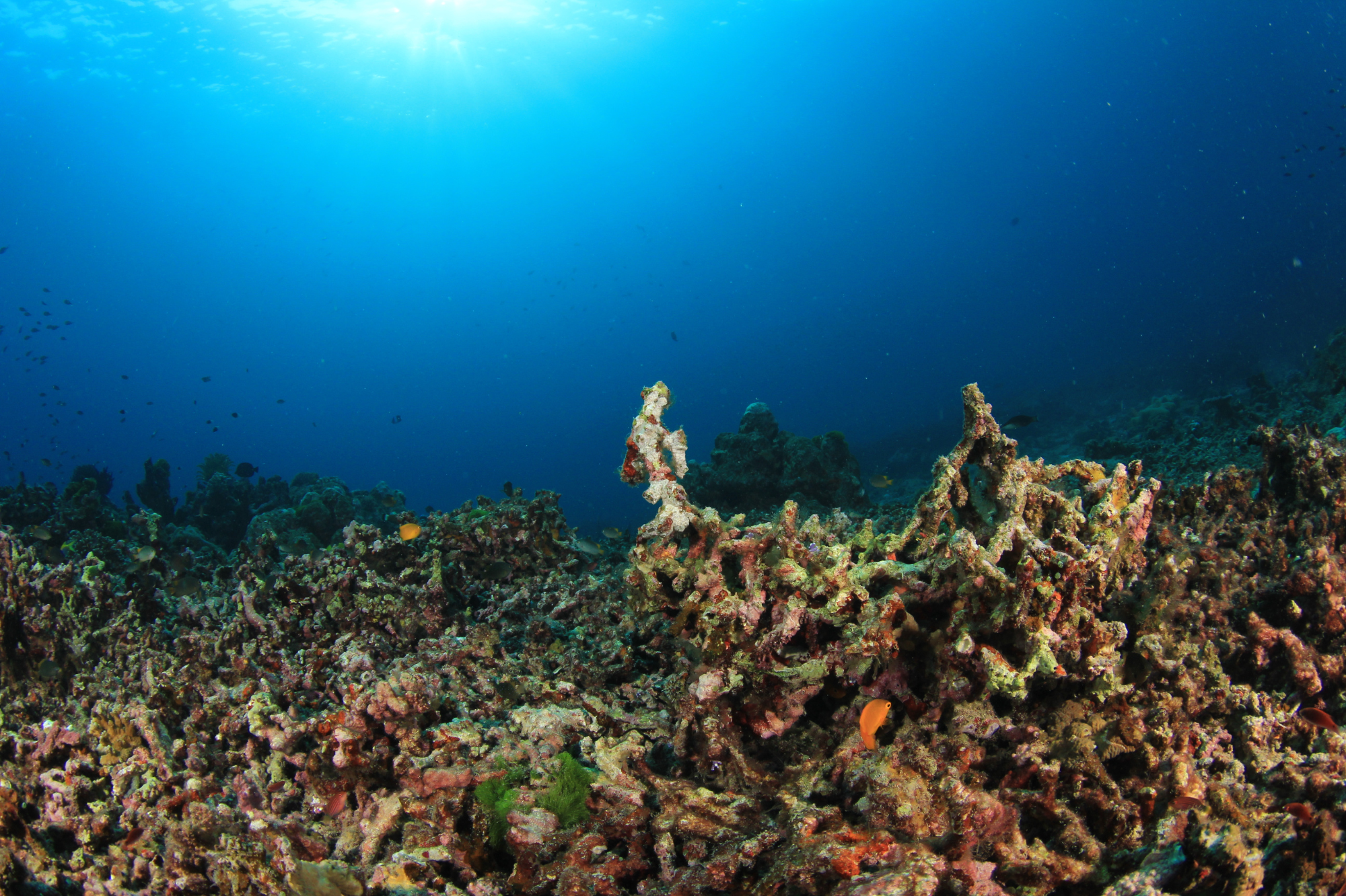
Ocean acidification: a threat to marine ecosystems and economies in the Commonwealth and beyond
TOMORROW: Join a free webinar organised by the Economist Impact: Ocean acidification: a threat to marine ecosystems and economies in the Commonwealth ...

Microplastic research round-up
There has been a flurry of microplastic research papers involving Plymouth Marine Laboratory (PML) scientists published over the last month.

Unveiling our new solar carport – saving 65 tonnes of carbon dioxide each year!
Plymouth Marine Laboratory is delighted to announce that the official opening of a brand new solar photovoltaic carport is being held today, with the ...

Storms and heatwaves: the importance of maintaining long-term time-series stations
As Storm Ciarán continues its journey north-east, Professor Tim Smyth reflects on its effect on the Western Channel Observatory – an oc...

In focus: Ocean Acidification
For Ocean Acidification Week 2023, we’re breaking down the science to help make the issue more accessible for everyone.

Staff Spotlight: Amy Kenworthy – OARS Project Manager
Meet Amy Kenworthy, who joined us recently as the new Project Manager for the “Ocean Acidification Research for Sustainability’ (OARS) pro...

OA Week 2023: ocean acidification research for sustainability initiatives around the world
Our friends at the Global Ocean Acidification Observing Network (GOA-ON) have organised an incredible week of webinars – free for all to attend ...

PhD Student spotlight: Emily Stevenson
Emily Stevenson is a PhD student with PML and the University of Exeter – and has been making a splash in the media recently for her work on plastic ...

PML welcomes £7.5 million boost for marine and maritime innovation in the South West
Innovate UK announce Government funding to support innovation and growth in the region’s marine and maritime sectors.

PhD Studentships with Marine Research Plymouth
Exciting new PhD Studentship opportunities to train tomorrow’s leaders in Environmental Science.
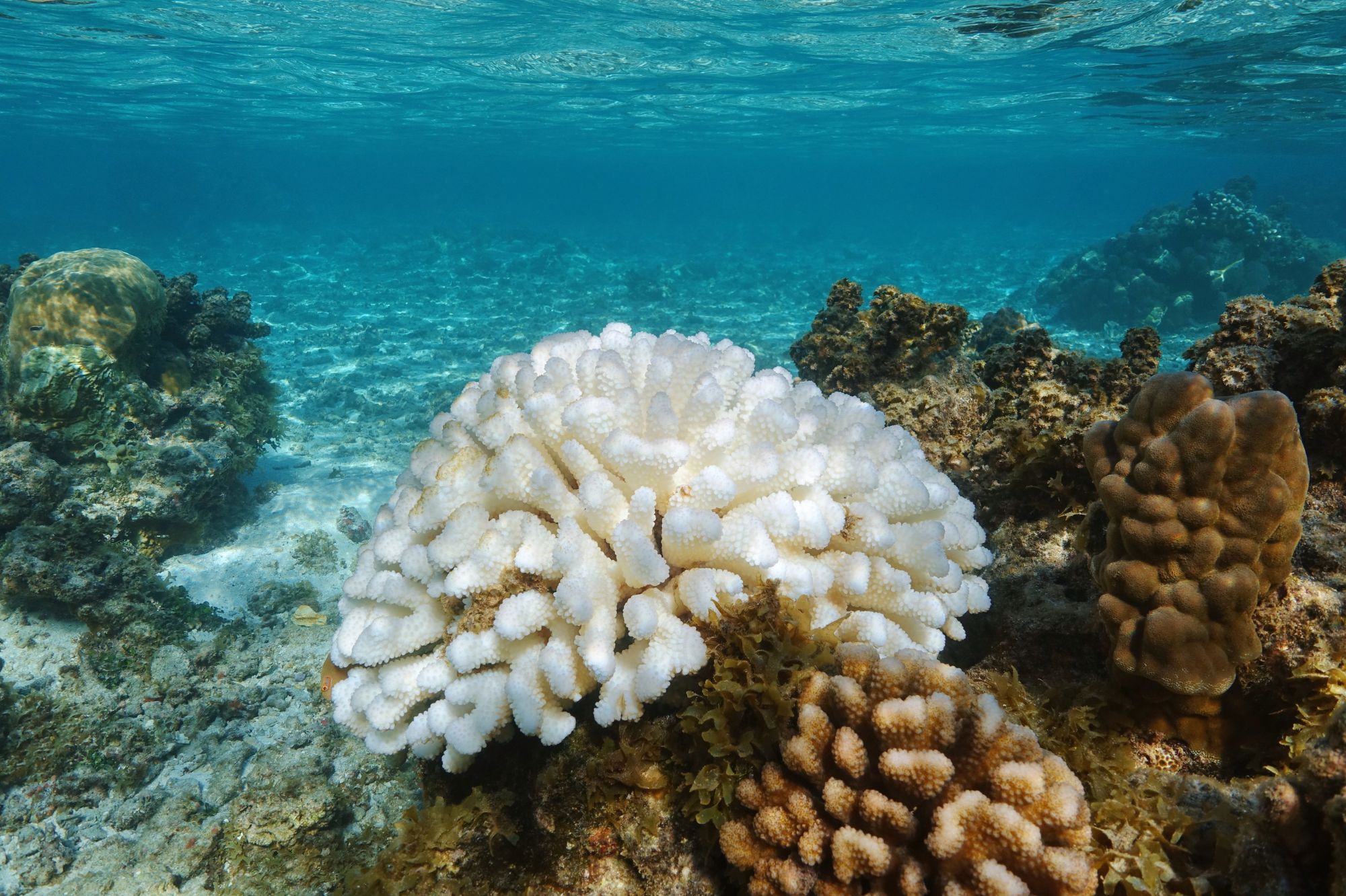
The “three horsemen” of climate-linked biodiversity loss
Our Director of Science Professor Steve Widdicombe has written an article for the Global Ocean Observing System, on the “three horsemen” o...

What happened at the Global Plastics Summit?
Our Dr James Clark facilitated discussions on the impact of plastic pollution on “Small Island Developing States’ (SIDS), and proposed sol...

Improving methods to study the ‘Plastisphere’
First comparison of the efficiency and efficacy of methods to culture microplastic-colonising bacteria to help increase understanding of the “Plasti...

Ocean circulation, ice melt and increasing tourism could all be contributing to Arctic microplastics
Scientists measured microplastic concentrations in the highly productive Barents Sea and suggest that ocean circulation, ice melt, tourism, inadequate...

Environmental impacts of offshore wind farms: PML research features in MDE Impact Report
Earlier this year, PML scientists released a new evidence base on the impacts of offshore wind farm developments and the outcomes for marine ecosystem...

PML’s ocean acidification work shortlisted for the 2023 NERC Impact Awards
The awards “shine a spotlight on the UK science at the heart of the responsible management of our planet”.

“What happens in the Arctic, doesn’t stay in the Arctic”: rising sea levels risk 1.5m UK properties
PML has contributed evidence to inform a report published today by the Environmental Audit Committee, with the report stating that rising sea levels &...

PML welcomes Dr Richard Brinkman of the Australian Institute of Marine Science
PML has a long-standing relationship with the Australian Institute of Marine Science (AIMS) – a world-leading institute in tropical marine resea...

PML proud contributor to the Ocean Breakthroughs
Launch of the Ocean Breakthroughs: 5 pathways to catalyse action to achieve a healthy and productive ocean

Informing Biodiversity Restoration: PML at the SBSTTA
Dr Matt Frost, Head of PML’s International Office is attending the 25th Subsidiary Body on Scientific, Technical and Technological Advice (SBSTT...

Ocean Hackathon: Plank-tonnes of fun; gamifying plankton data to increase ocean literacy
Plank-tonnes of fun; gamifying plankton data to increase ocean literacy in non-scientific communities

How space is helping to tackle societal issues
This World Space Week we want to celebrate the ways in which space technologies are helping PML to address societal challenges across the globe:

Solutions for Plastic Pollution in Small Island Developing States: Global Plastics Summit
Our Dr James Clark will be attending the Global Plastics Summit this coming week – held in Bangkok, Thailand – where he will be facilitati...

Meet the scientist awarded the first Trevor Platt Fellowship: Gayathra Bandara
We would like to wish a warm welcome to Gayathra Bandara – the first scientist to be awarded the Trevor Platt Fellowship. As part of the Fellows...

PML’s Professor Pennie Lindeque awarded the Blue Planet Prize in Tokyo
Professor Lindeque received the prestigious award this week alongside colleagues Professor Richard Thompson of the University of Plymouth and Tamara G...

PML scientists contribute to understanding the ‘nitrogen footprint’
This week PML scientists join the annual meeting of the UKRI GCRF South Asian Nitrogen Hub to discuss programme progress as well as help launch a bran...

Unusual blooms in Scottish waters
New study examines the conditions that led to two unusual coccolithophore blooms in Scottish waters during the summer of 2021. Using satellite data an...

PML’s contributions to the UN’s Sustainable Development Goals
The 2023 Sustainable Development Goals (SDGs) Summit takes place this week in New York. It will mark the beginning of a new phase of accelerated progr...

Improved access to the longest marine time series in the world
It’s now easier than ever to utilise data from the Western Channel Observatory (WCO) – an open-access time series that began in the Wester...

Friends of Ocean Action announces PML’s Prof. Steve Widdicombe as new member
The group includes a range of ocean leaders including Sylvia Earle and Prince Albert II of Monaco

Defra boost for ocean acidification research: PML funded to become Secretariat for the UN-endorsed ‘
The “Ocean Acidification Research for Sustainability’ (OARS) programme is designed to support the development of ocean acidification scien...

Plymouth Marine Laboratory hosts 6th UK National Decade Committee meeting
“Britain’s Ocean City’ welcomes the committee – whose members span the breadth of ocean science – to champion the UN Oce...

How healthy is the North-East Atlantic? Findings from the 2023 OSPAR Quality Status Report
PML scientists have played leading and contributing roles to assessment reports on the health and status of the North-East Atlantic, published today (...

Investing in the future: new careers in marine autonomy and robotics
PML has invested heavily in its marine autonomous capabilities in recent years, with further backing in the recruitment of three new positions to deli...

Did you spot these “unusual sea creatures” in Cornwall recently?
“I have fished, dived, swam and kayaked around the coast for 50 years – and not seen them before.”

Staff spotlight: Dr Saskia Rühl – Digital Marine Biologist
Dr Saskia Rühl recently joined us as a Digital Marine Biologist, but her journey at PML actually began much earlier than this – almost ...

Roadmap published for the future of satellite monitoring of ocean carbon
World-leading scientists have developed a comprehensive scientific roadmap for satellite monitoring of ocean carbon over the next decade. Alongside a ...

Professor Queirós on the importance of climate literacy for stakeholders to invest in solutions
Our Professor Ana Queirós has been featured in the AXA Investment Managers Sound Progress podcast, explaining the importance of climate liter...

Arctic bound: The Ocean Warrior project prepares to expand the frontiers of marine science with its
A unique voyage to build a greater scientific understanding of the marine environment in the Arctic and the impacts of global climate change will see ...

What have marine zooplankton ever done for us? As it turns out, quite a lot.
First full assessment of ecosystem services provided by zooplankton shows that by maintaining sustainable fisheries, reducing plastic pollution and mi...

Call for social science participation for the 9th International Nitrogen Conference
We are seeking panel sessions for the 2024 International Nitrogen Initiative Conference, to emphasise the contributions of social scientists in meetin...

PML Work Experience Week a great success
Last month we ran our first work experience week, inviting 12 students from schools across Devon to the lab to sample life as a marine scientist first...

PML contributes to OSPAR 2023 policy assessment of pelagic habitats
Today the OSPAR Commission shared the 36th issue of highlights from its Quality Status Report 2023, focusing on the Plankton Indicator Assessments.

New science fund launched celebrating the incredible life of Prof. Trevor Platt FRS
We are pleased to announce the launch of the Trevor Platt Science Fund, which has been set up to support capacity building, primarily in developing co...

State of the South West’s Seas report published for 2022
PML scientists contribute to the annual comprehensive review of the South-West’s stunning marine and coastal environments.
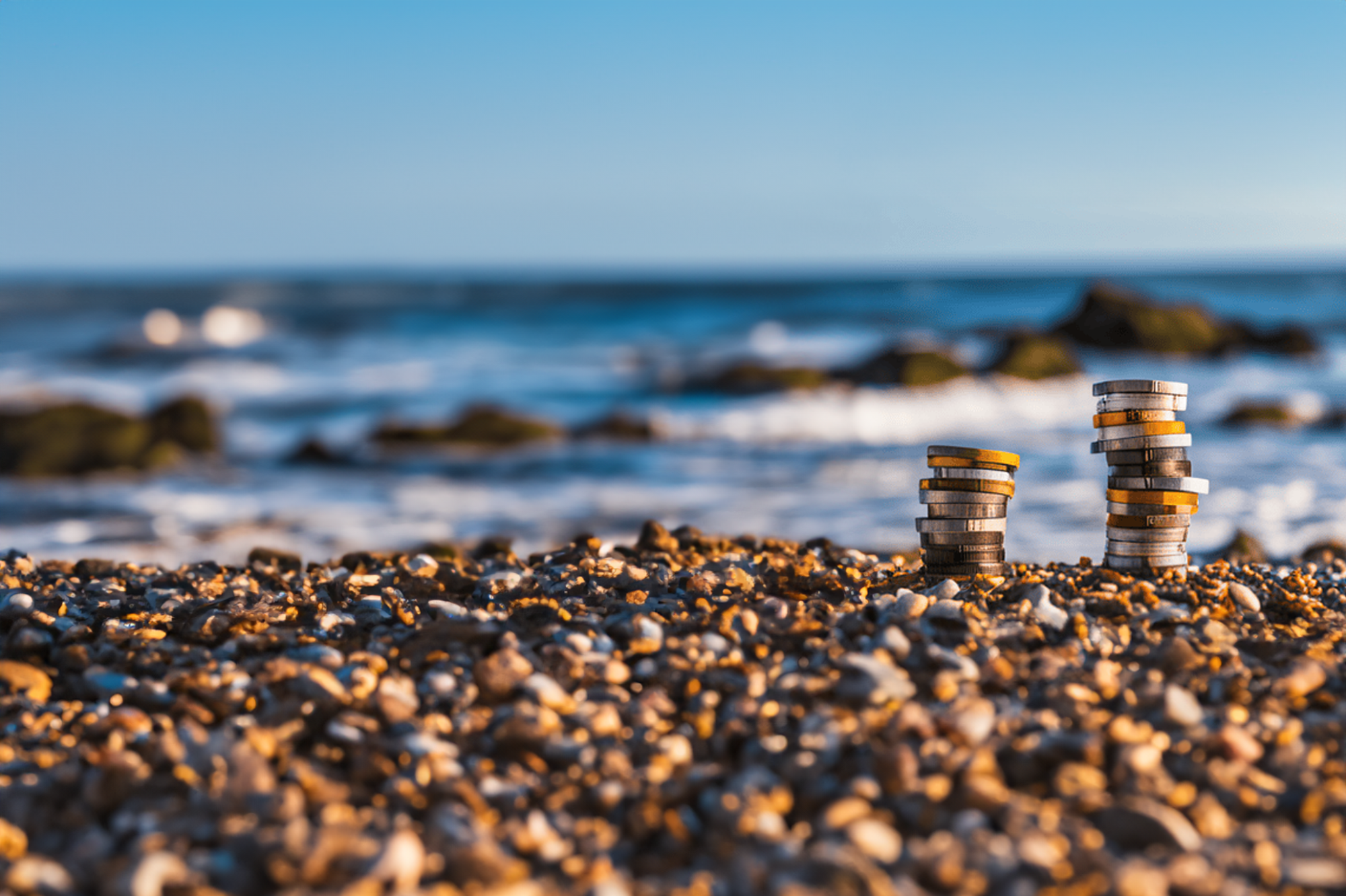
PML joins the Global Ocean Accounts Partnership
We are pleased to share the news that PML is the latest member of the Global Ocean Accounts Partnership (GOAP).

“Record-Breaking” North Atlantic ocean temperatures: PML Scientists Respond
Global average sea surface temperatures reached “unprecedented levels” for June, according to Copernicus (EU’s Earth Observation pro...

In Memoriam: Professor Paul Somerfield, PML Ecologist
We are deeply saddened by the loss of our friend and colleague, Professor Paul Somerfield, who has passed away following a short illness.

Impacts of flooding on coastal water quality from sewage, agricultural and industrial effluent
A new two-year project, named Vis4Sea, has been granted funding to measure the impacts of flooding on water quality in the Plymouth Sound and the wide...

Remote monitoring AI camera installed on PML roof to test detection of boats, birds and marine life
We are delighted to be working with Seiche Ltd to test a remote monitoring camera system on top of our laboratory, as part of our ongoing work to expa...

Our research to protect mangrove ecosystems
Yesterday (26th July) we celebrated The International Day for the Conservation of Mangroves by sharing information about these incredible ecosystems a...

Celebrating International Day for the Conservation of Mangroves
Find out more about these incredible ecosystems and the reasons why a day has been dedicated to celebrating them.

Announcement of Opportunity: Trevor Platt Fellowship 2024
We are excited to announce the opportunity to apply for the 2nd Trevor Platt Fellowship.
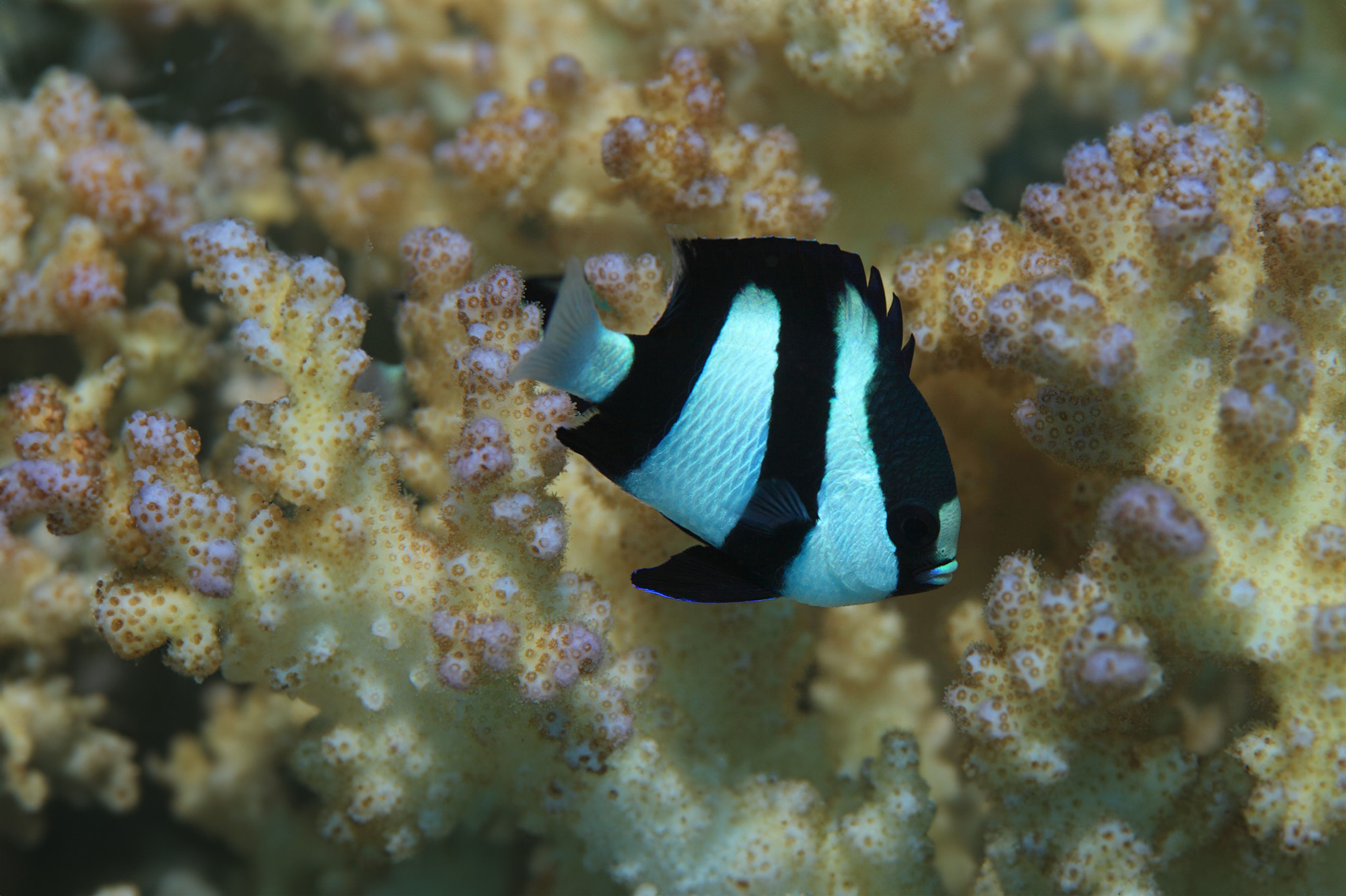
MEDIA: How climate change is causing a communication breakdown in the animal world
Our Dr Mahasweta Saha has featured in the popular online publication The Conversation UK, discussing the impacts of climate change on chemical communi...

Evidence on the ‘Future of Ocean Technology’
Our Prof. Matthew Palmer gave evidence on the “Future of Ocean Technology’ to the All-Party Parliamentary Group for the Ocean, and the inq...

Europe’s First Marine Social &Natural Capital Laboratory launched at PML
The Lab will be a testbed for novel and transformative marine science using integrated ecological, psychological, social and economic research approac...

Europe’s First Marine Social & Natural Capital Laboratory launched at PML
The Lab will be a testbed for novel and transformative marine science using integrated ecological, psychological, social and economic research approac...

PML begins work on solar carport – a first-of-its-kind for Plymouth
As Net Zero week begins, so does the installation of our new solar photovoltaic panel carport – the latest in our efforts to reduce carbon emiss...

Galapagos-bound: Professor Pennie Lindeque joins international plastic pollution project
Our Head of Marine Ecology and Biodiversity leaves for the Galapagos this weekend ahead of a new project to tackle plastic pollution in the Eastern Pa...

What we know about marine heatwaves
Marine heatwaves have been headline news over the last couple of weeks. Here we explain what they are, how they are caused and what impact they have o...

ITV News visits Plymouth Marine Laboratory to find out more about the marine heatwave
The film crew visited the laboratory – and came onboard our research vessel Quest to discuss the effects of changing temperatures on the marine ...

Revised approach revolutionises above-water method for measuring remote-sensing reflectance
A new method to improve field measurements of remote sensing reflectance for satellite validation of ocean colour has been published by our Earth Obse...

What happened at the INC-2 Global Plastics Treaty meeting? Dr Samantha Garrard explains
Our Dr Samantha Garrard attended the second session of the Intergovernmental Negotiating Committee to develop an international legally binding instrum...

PML’s Dr Shubha Sathyendranath appointed MBE in the King’s Birthday Honours
Dr Sathyendranath is recognised for her services to oceanography

Discover our new project investigating the production of climate-cooling gas DMS in agriculture
Scientists have installed autonomous sensors into fields of key crops to gain a better understanding of how agricultural land may act as a source of d...

Staff spotlight: Dr James Clark – Marine Ecosystem Modeller
As part of our ongoing celebrations of the Western Channel Observatory (WCO), we sat down with Senior Scientist Dr James Clark, who sits in our Marine...

PML’s Professor Lindeque joint winner of prestigious Blue Planet Prize
A trio of SW-based scientists were awarded for their research and influence on the global issue of marine microplastics.

Why we need a Global Framework for Ocean-based Carbon Dioxide Removal: Professor Tom Bell explains
Our Professor Tom Bell spoke yesterday at the UN Bonn Climate Change Conference S8 58 side event: “The Global Stocktake &Ocean-based Ca...

Staff Spotlight: Claire Widdicombe – Plankton Ecologist
As part of our ongoing celebrations of the Western Channel Observatory (WCO), we sat down with Claire Widdicombe to talk about her role as WCO Phyto...

Staff spotlight: Dr Gavin Tilstone – Bio-optical oceanographer
As part of our ongoing celebrations of the Western Channel Observatory, we sat down with Dr Gavin Tilstone to talk about how he keeps an eye on the We...

Celebrating the Western Channel Observatory on World Ocean Day
For this years’ World Ocean Day we are celebrating the wonderful work of the Western Channel Observatory, hosted at Plymouth Marine Laboratory i...

Our Head of International Dr Matt Frost appointed Chair of the UK National Decade Committee
The appointment was announced today to mark World Ocean Day.

The cool twin of carbon dioxide gets some worthy attention
A new evidence review draws attention to the often overlooked marine trace gas dimethylsulfide (DMS). The review covers its production and fate, its i...

I spy with my little eye, good &bad things floating on the ocean: SoapBox Science with Dr Biermann
Our Dr Lauren Biermann spoke with BBC Radio 2 today about her upcoming SoapBox Science talk this weekend, which will focus on her work using satellite...

I spy with my little eye, good & bad things floating on the ocean: SoapBox Science with Dr Biermann
Our Dr Lauren Biermann spoke with BBC Radio 2 today about her upcoming SoapBox Science talk this weekend, which will focus on her work using satellite...

Impacts of offshore wind farms: new evidence base
Just released: a new evidence base on the environmental impacts of offshore wind farm developments and the outcomes for marine ecosystem services.

Measuring manmade and natural gases in the sea air
Our Dr Frances Hopkins talks about how the Marine Biogeochemistry team measure various gases produced both by human activities and naturally by the oc...

Driving with flatter tyres increases the amount of microplastics released into the environment
Our Dr Samantha Garrard explains in a new article published in The Conversation UK why you should check your tyres: maintaining the correct tyre press...

Celebrating the International Day of Biological Diversity
Monday 22nd May marks the “International Day of Biological Diversity’, a day sanctioned by the United Nations for the promotion of biodive...

Coastal lights trick coral reefs into early spawning
Research published in Nature Communications shows, for the first time, that corals exposed to artificial light at night are spawning one to three days...

How eddies enhance the absorption of carbon: a South Atlantic Ocean study
An oceanic phenomena: investigating the effects of “mesoscale eddies’ on the air-sea CO2 sink in the South Atlantic Ocean

Staff Spotlight: Dr Matt Frost
Dr Matt Frost has recently taken up the position of Head of the PML International Office, to help drive forward PML’s vision for a sustainable o...

What are the effects of decommissioning man-made structures on marine ecosystems globally?
Scientists have released a plain language summary of a publication that examined the scientific evidence for impacts of decommissioning man-made struc...

PML Welcomes New Honorary Fellow Torsten Thiele
Internationally-renowned expert on blue finance and ocean governance

Predicting the changing marine conditions with future digital twins
A pioneering application of machine learning is helping scientists to emulate highly complex physical-biogeochemical marine processes, to forecast mar...

Student Spotlight: Perle Deaibes
Perle Deaibes is completing a research internship at Plymouth Marine Laboratory under supervisor Dr Mahasweta Saha.

OSPAR report on ocean acidification released
The report has been supported by three ocean acidification experts from Plymouth Marine Laboratory.

New appointment for PML’s International Office
We are delighted to welcome Dr Matt Frost to the PML family, who is taking up the position of Head of the PML International Office.

Ship emissions: New study shows scope for ‘faster, better, cheaper’ monitoring
Potential to increase ship emission monitoring to 100% coverage of the global ocean and attribute to individual ships.

Projections show that the seas of Southeast Asia may warm by 1.1 to 2.9°C through the 21st century
Modelling study highlights potential effects of climate change on marine ecosystems in Southeast Asian seas.

From lab to lawmaking: PML participates in the Royal Society ‘Pairing scheme’
The initiative is designed to give scientists and policymakers an opportunity to experience each other’s worlds.

Rapid collective climate action required, according to major UN report
PML science supports the UN Intergovernmental Panel on Climate Change (IPCC) assessment.

Microfibres shown to stunt mussel growth
Polyester microfibres shown to inhibit growth in mussels by about a third in first-of-its-kind experiment.

Earth observation for climate resilience: PML supports launch of new UK climate information service
The UK Earth Observation Climate Information Service (EOCIS) is designed to support better-informed decision-making

PML welcomes agreement on UN High Seas Treaty
The historic pact supports the aim of placing 30% of international waters into protected areas by 2030

PML scientists in US as part of advanced plankton imaging project
The scientists have received bespoke training from McLane Labs with their Imaging FlowCytobot

Atlantic Meridional Transect supported by near-real time satellite data from NEODAAS
The Atlantic Meridional Transect (AMT) is a research programme that samples the open ocean between the UK and the South Atlantic, and has recently dep...

How climate change is affecting the marine species at the base of the food web
A comprehensive new review of impacts on zooplankton caused by ocean warming also highlights solutions for improved monitoring

Major research mission back on track after three year hiatus
The Atlantic Meridional Transect (AMT) is a research programme that samples the open ocean between the UK and the South Atlantic, and it is readying f...

Natural capital at the heart of decision making: how the SWEEP project changed the South West for th
The South West Partnership for Environmental and Economic Prosperity (SWEEP) project ran from 2017 – 2022, here we celebrate its impact to the b...
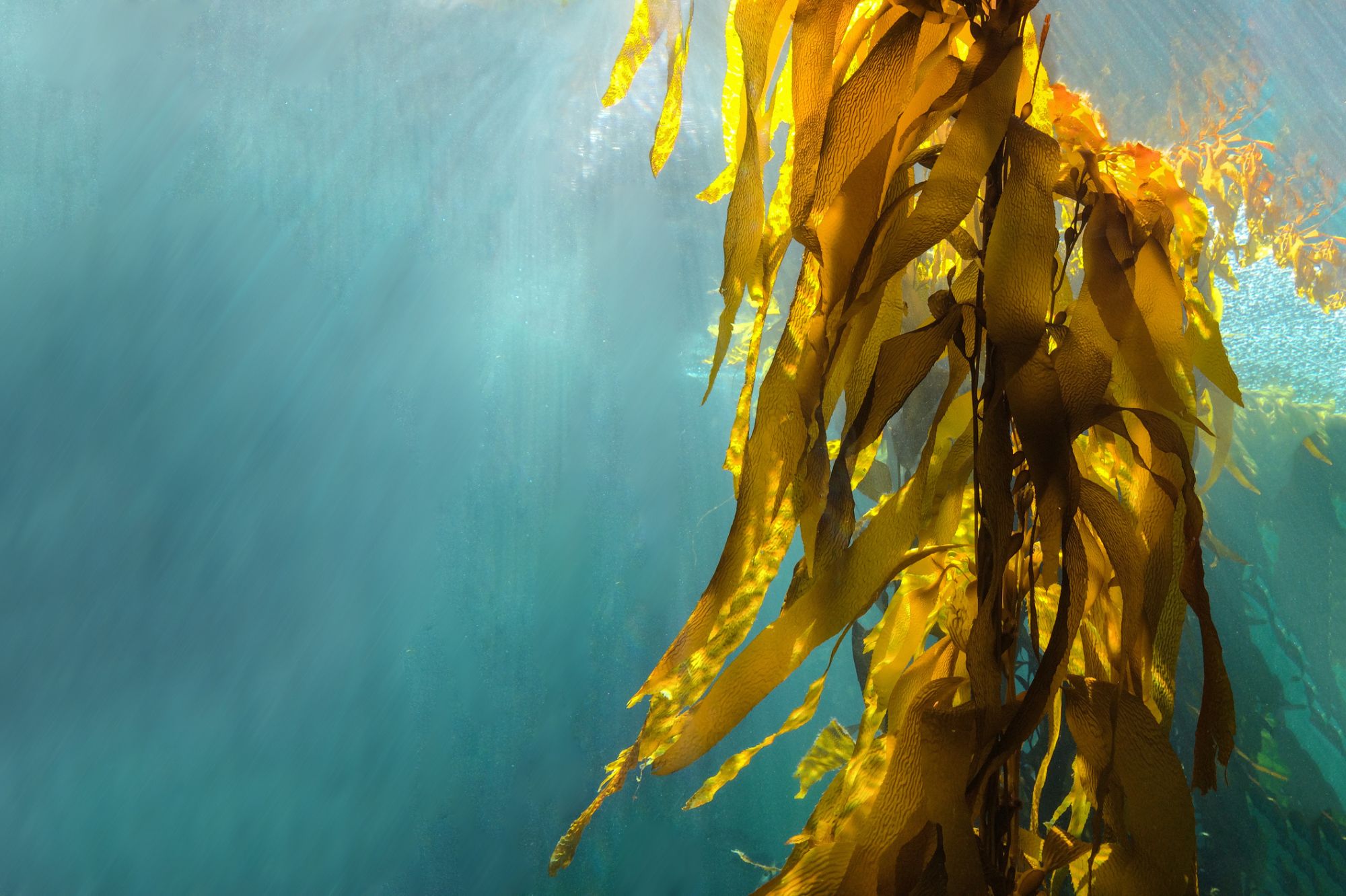
PML leads the science on the world’s first co-located seaweed and offshore wind farm
PML to provide independent analysis of the Amazon-funded North Sea Farm 1 project

New trustees welcomed to the Board of Plymouth Marine Laboratory (PML)
Four appointments over the past year to support the charity’s strategic direction

Staff spotlight: Georgina Ramm – Deputy Skipper
To mark “International Day of Women and Girls in Science‘, we wanted to share the story of our “Deputy Skipper’ Georgina Ramm,...

Using community knowledge and citizen science to help tackle climate-sensitive, water-associated inf
New project aims to map cholera in India by collecting sanitation and disease data through a publicly accessible smartphone app.

PML scientist joins RRS Sir David Attenborough for polar science trials in Antarctica
The trials are a critical milestone in the commissioning of the ship

Uniting on ocean acidification: a radical new approach to monitoring OA impacts at global scale
A new framework supports the vision for a step change in the global monitoring of OA impacts on marine life

Undermeasured compound could help resilience against climate change in key coa
New study helps improve understanding of the interplay between species domination, competitive advantage and changing environmental factors relevant t...

Emissions of unexpected gases from marine life affect the air and climate over the poles
A new study reveals that trace atmospheric gases thought to be pollutants are also produced by marine plankton and emitted by the ocean, with potentia...

Staff Spotlight: Dr Lee de Mora – Marine Ecosystem Modeller
Dr Lee de Mora sits within our Marine Systems Modelling group, which develops and applies state-of-the-art computational models to promote sustainable...

Green light for project to enhance understanding of climate change &human impacts on coastal ocean
The “FOCUS’ project is one of six given the go-ahead as part of a £39m funding announcement from the Natural Environment Research Council...

New study investigates seaweed detritus as a Blue Carbon ‘blind spot’
Pioneering techniques helps reveal how link between seaweed habitats and the seafloor may affect the global carbon cycling.

New approach to satellite data analysis reveals unexpected patterns in biological production
The pioneering statistical method compensates more accurately for gaps in chlorophyll and sea surface temperature data.

Scientists stress the need to drastically reduce CO2 emissions
“Only by halving emissions by 2030, in line with the Paris Agreement’s science-based 1.5°C limit, can we minimise the risks of crossing i...

PML welcomes the adoption of the Global Biodiversity Framework following COP15
After lengthy deliberation nearly 200 countries signed the pact aimed at halting and reversing biodiversity loss.

World first satellite mission to measure surface waters successfully launched
PML scientists are over the moon with the opportunities the ‘Surface Water and Ocean Topography (SWOT)’ mission will open up for increasin...

Learning to better understand the language of algae
International research duo highlight the ecological significance of chemical communication by algae.

Megacities out-shine the moon in coastal environments according to the first quantification of artif
Coastal megacities could be illuminating the marine environment up to six times more than the moon but is often not considered when reviewing stressor...

PML scientists contribute to tackling the nitrogen pollution challenge
Last week three PML scientists attended the annual meeting of the UKRI GCRF South Asian Nitrogen Hub at the Maldives National University, to present ...

PML’s Dr Shubha Sathyendranath Receives Prestigious Award
The Knight of the Order of Cultural Merit recognises excellence in science

PML scientist highlights need for dedicated plastic litter satellite mission
Dr Victor Martinez-Vicente is part of PML’s Earth Observation team which has pioneered techniques for remote sensing of marine plastics

Dr. Ana Queiros wins the 2022 AXA IM Research Award for blue carbon as a Nature-Based Solution
AXA Investment Managers (AXA IM), in partnership with the AXA Research Fund, has announced Plymouth Marine Laboratory’s Dr Ana Queiros as winner...

PML scientists recognised for world-class microplastic research four years in a row
We are extremely proud to announce that PML’s Prof. Pennie Lindeque and Dr Matthew Cole have both been named on Clarivate’s Highly Cited R...

Who Benefits From Marine Ecosystems? Major Funding for PML-Led ‘Economics Of Biodiversity’ Project
The UKRI-supported “Sea the Value’ project is aimed at determining the economic, ecological and socio-cultural value of marine ecosystems....

PML scientist leads Ocean Acidification Update of new marine climate change review
Dr Helen Findlay, Biological Oceanographer at PML, led a team of internationally recognised scientists to bring together the Marine Climate Change Imp...

“Terminal Diagnosis for Arctic Sea Ice”: State of the Cryosphere Report 2022
The IPCC has concluded that total Arctic summer sea ice loss is now inevitable, likely before 2050.

PML scientists in Egypt for COP27
The 27th session of the United National Framework Convention on Climate Change Conference of the Parties (COP27) takes place in Sharm El-Sheikh from 6...

Funding boost for satellite ocean observation
Additional funding has been awarded to continue satellite research that will ultimately help increase understanding of the important role of phytoplan...

PML scientists contribute to Royal Society’s Geological Carbon Storage briefing paper
Plymouth Marine Laboratory’s Marine Systems Modelling team have contributed to the Royal Society’s Geological Carbon Storage briefing pape...

Eye in the Sky: How satellite data on algal blooms is supporting the marine economy
Algae may be tiny but many in maritime industries know all too well the large-scale negative impacts some of these microscopic plants can have on busi...

PML donates laptops to orphaned schoolchildren in Ukraine
Plymouth Marine Laboratory (PML) has donated a number of laptop computers for use by orphaned schoolchildren in the Black Sea coastal city of Odesa.

Bright clouds and artificial intelligence help illuminate climate science
A pioneering new study has been published that investigates global trends in ship emissions, using a novel AI method to catalogue over one million shi...

PML’s Prof. Pennie Lindeque wins Volvo Environment Prize 2022 as part of a Southwest microplastics r
Plymouth Marine Laboratory (PML) is delighted to announce that Prof. Pennie Lindeque, Head of Science for Marine Ecology and Biodiversity at PML, has ...

HRH Princess Royal visits PML for launch of National Centre for Coastal Autonomy
The potential for autonomous technology to advance understanding of our constantly evolving ocean and coastlines has taken a major step forward with t...

Staff spotlight: PhD Researcher Jasmin Dorinda
Jasmin Dorinda is in the 2nd year of her ARIES PhD project based at Plymouth Marine Laboratory in the Marine Biogeochemistry and Observations (MBO) te...

Listen: PML Professor features on Euronews podcast: ‘Is it possible to end ocean plastic pollution?’
Our Professor Pennie Lindeque, Head of Science: Marine Ecology and Biodiversity, featured recently on the Euronews #OceanCalls podcast: ‘Is it p...

Cutting-edge Smart Sound Connect Control Centre opens
Following on from the successful launch of Smart Sound Connect earlier this year, today marks the opening of a state-of-the-art control centre for the...

Mussel ‘cages’ deployed in a pilot project to help stem the flow of marine plastic
Scientists from Plymouth Marine Laboratory (PML) have installed cages filled with mussels at four local estuary sites (three in the Plym estuary and o...

PML a founding partner in the first ever Ocean Pavilion at the UN climate conference
World leaders in ocean science and philanthropy are coming together to ensure the ocean will occupy a more prominent position at the UN Climate Confer...

Smart Sound Connect Wins 5G Innovation of the Year Award
Smart Sound Connect, the world’s first ocean-focussed 5G testbed, has been recognised by the mobile sector as a cutting-edge innovation platform...

PML awarded grant to facilitate expansion of environmentally-sustainable marine UK wind energy
Plymouth Marine Laboratory has been awarded a grant to fund a decision-making support tool to facilitate the expansion of marine UK wind energy in an ...

Advanced monitoring of plankton using AI technology receives major funding boost
The new automated system will enable a step change in the frequency and range of marine plankton measurements.

Plymouth Marine Laboratory lead study identifying variations in South Atlantic air-sea CO2 flux
Plymouth Marine Laboratory has led on a study to identify the biological control of the interannual and long-term variations in South Atlantic air-sea...

PML contributes to paper on human health and wellbeing benefits associated with mangrove habitats
Plymouth Marine Laboratory’s Andrew Edwards-Jones has contributed to a paper that offers qualitative research on cultural ecosystem services, sp...

New approach to estimate phytoplankton biomass and primary production more accurately
Plymouth Marine Laboratory has contributed to a publication that highlights a new approach to more accurately estimate phytoplankton biomass and net p...

Characterisation of the inshore marine sectors of Da Nang, Vietnam
PML has published a new paper on the ‘Characterisation of the inshore marine sectors of Da Nang, Vietnam’.

PML visits Australian Institute of Marine Science
Plymouth Marine Laboratory’s Chief Executive Professor Icarus Allen was recently invited by the Australian Institute of Marine Science (AIMS) to...

Ecosystem ‘health’ considerations help deliver a more precise approach for active marine habitat man
A new study has been published to help improve understanding of the link between marine habitat “health’ and ecosystem service provision, ...

Plymouth Marine Laboratory project awarded UKERC Flexible Research Fund
Plymouth Marine Laboratory and the University of Aberdeen and have been awarded a round of funding for their joint project, “The marine energy, ...

Remote sensing reveals lake response to European double heatwave
Plymouth Marine Laboratory have contributed to a paper investigating lake chlorophyll-a (an indicator of algae) responses to the 2019 European double ...

Dramatic changes in the abundance of phytoplankton in the North Atlantic
Plymouth Marine Laboratory has led a study that has revealed dramatic changes in the abundance of phytoplankton in the North Atlantic over the last 60...
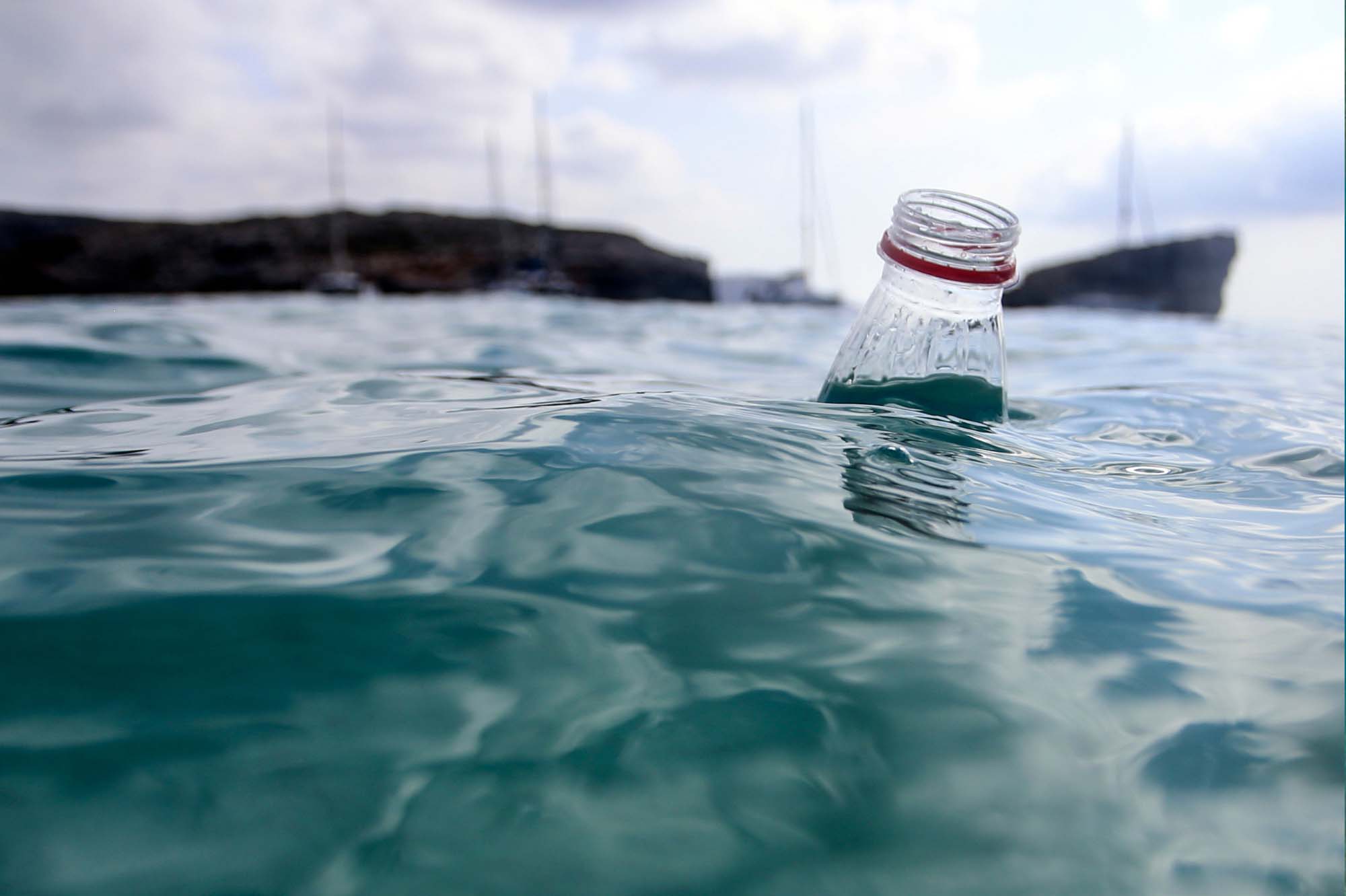
Spotted! Floating Plastic Litter Detected and Categorised Using Artificial Intelligence (AI)
A new AI technique pioneered by scientists at PML uses images from a vessel-mounted camera to identify different types of marine plastic.

The State of South-West Seas in 2021
Plymouth Marine Laboratory has contributed to the eighth report in the series, which brings the marine and coastal community together to record change...

£3 million for new carbon capture project and pilot plant: SeaCURE
Plymouth Marine Laboratory are part of a new carbon capture project that could pave the way for large-scale removal of carbon dioxide (CO₂) ...

Plymouth Marine Laboratory successfully deploys state-of-the-art scientific data buoy off Plymouth
The advanced technology is a key part of the Smart Sound Plymouth network of autonomous platforms.

Highlights from the 2022 UN Ocean Conference
Plymouth Marine Laboratory scientists were delighted to have been able to play a prominent role at the UN Ocean Conference in Lisbon, in recognition o...

Plymouth Marine Laboratory contributes to UNESCO’s pilot ‘State of the Ocean’ report
Plymouth Marine Laboratory’s Director of Science Steve Widdicombe has co-authored Chapter 2 in UNESCO’s pilot ‘State of the Ocean Re...

How viable and safe is offshore carbon capture and storage (CCS)?
The findings of a world-first pilot study involving marine system modelling and biodiversity scientists from Plymouth Marine Laboratory (PML) will hel...

UN Ocean Conference focused on innovation to stop the rapid decline of ocean health
Plymouth Marine Laboratory (PML) scientists will play a prominent role at the 2022 United Nations Ocean Conference from 27 June to 1 July in Lisbon, P...

Plymouth Marine Laboratory reveals plans for the world’s first long-range autonomous research vessel
Plymouth-based M SUBS Ltd were commissioned to design the 24m “Oceanus‘

PML selected by Turing Institute for new programme to tackle environmental issues using data science
The new expanded skills programme will involve ten UK organisations focused on solving a broad range of critical environmental and sustainability prob...

‘The Language of Life’ disrupted by climate change
Climate change is disrupting essential chemical communication processes between organisms – “the language of life’ – in all ty...

International scientists to gather for major air-water gas exchange summit
The Gas Transfer at Water Surfaces (GTWS) meeting occurs every five years and brings together approximately 150 scientists from countries all over the...

Urgent actions required to sustain future seafood consumption
Climate change challenging the Ocean’s capacity to provide, according to a new paper co-authored by PML’s Dr Carol Turley.

Pioneering use of AI exposes the extent of microplastics in Arctic zooplankton
A PML-led study and international collaboration with Germany’s Alfred Wegener Institute which utilizes artificial intelligence (AI) to identify ...

PML response to new government energy strategy
The UK Government’s “British energy security strategy‘ (published April 7 2022) sets out how Great Britain will “accelerate ho...

PML celebrates 20 years of marine science excellence as an independent charity
Friday 1 April 2022 marks the 20th anniversary of Plymouth Marine Laboratory (PML) becoming an independent organisation with charitable status.

Losing the cover of darkness
Study shows advances in street lighting are reducing the efficacy of coastal species’ camouflage

Vodafone, Plymouth City Council and Plymouth Marine Laboratory announce use cases for world’s first
The Smart Sound Connect Marine 5G Mobile Private Network, deployed by Vodafone and operated by Plymouth Marine Laboratory (PML), is to be the world&#...

PML scientists supporting international agreement on plastic pollution
Professor Nicola Beaumont and Dr James Clark among the contributing authors of a brief issued by the North Atlantic Microplastic Centre (NAMC) to supp...

PML highlighted for exemplar impact strategy
A review of more than 70 impact strategies from organisations across the world has identified Plymouth Marine Laboratory as a key example of good prac...

Major UN report stresses the need for urgent action on climate change
Plymouth Marine Laboratory science contributes to the latest Intergovernmental Panel on Climate Change (IPCC) report.

Sea ice concentration found to impact the exchange of gases related to climate
A new study has found that sea ice extent has a profound impact upon the concentration of reactive organic gases and their exchange between Arctic wat...

Leading UK marine scientists welcome the move towards a global plastics pact ahead of UN meeting
The resumed session of the fifth United Nations Environment Assembly (UNEA) – the world’s highest-level decision-making body on the envir...

International Day of Women and Girls in Science
International Day of Women and Girls in Science (11th February 2022) offers a chance for the scientific community to reflect on gender diversity in ST...

Funding award will facilitate game-changing advances in climate science at PML
Support from the Wolfson Foundation will enable monitoring and improved understanding of air-sea gas exchange in unprecedented detail using autonomous...

Night lights: New global atlas maps out artificial light at night under the sea
As coastal areas become increasingly built up, concerns are growing about levels of artificial light at night (ALAN) and its potential impacts on the ...

PML welcomes the enhanced role of Vietnam’s Da Nang city in the sustainable development of the East
On 1 December 2021, Dr. Le Quang Nam – the Vice Chairman of the People’s Committee of Da Nang City – was elected to become the new P...

Dr Shubha Sathyendranath receives A.G. Huntsman Award
Dr Shubha Sathyendranath, PML Merit Remote Sensing Scientist, received the prestigious A.G. Huntsman Award for Excellence in the Marine Sciences durin...

Multi-million pound initiative advances the sustainable management of UK’s marine resources
In the wake of COP26, the South West is to play a lead role in a major new initiative aimed at sustainably managing the UK’s coasts and seas.

What next for the ocean? PML welcomes incorporation of the ocean into COP26 Glasgow Climate Pact
Following more than a decade of hard work by many parties and stakeholders, including Plymouth Marine Laboratory (PML), the ocean was incorporated int...

PML scientists on Highly Cited Researchers 2021 List
PML is proud to announce that two of our academics have been named on the annual Highly Cited Researchers™ 2021 list from Clarivate.

Message from PML patron James Cameron
James Cameron – filmmaker, ocean explorer and Plymouth Marine Laboratory patron – has a message about the importance of science-based solu...

PML supporting largest ever survey of carbon stored in coastal seascapes
Scientists from Plymouth Marine Laboratory (PML) are part of team of world-class ocean and blue carbon experts taking part of ambitious five-year glob...

National Climate Science Partnership launched at COP26 to guide UK climate change policy
Plymouth Marine Laboratory has joined forces with eight of the UK’s leading scientific organisations to create the National Climate Science Part...

Study finds that climate change may make marine management initiatives unsustainable but bright spot
Researchers from six countries have investigated the impact of climate change on strategies designed to ensure the sustainable use of marine resources...

Robots for a Resilient Ocean
The use of autonomous ocean-going vessels, SMART platforms and other maritime technologies are in focus as part of a short film from IMarEST and ITN P...
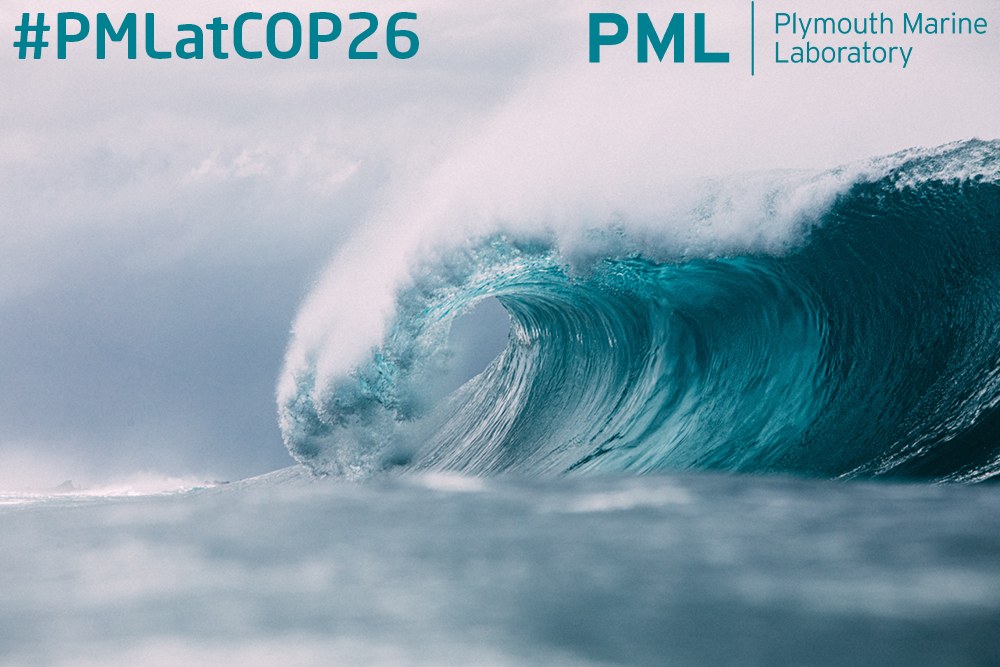
Plymouth Marine Laboratory at COP26
PML’s research and researchers played key roles at COP26 in Glasgow.

Plymouth Marine Laboratory endorses the ‘Ocean For Climate Declaration’ ahead of COP26
More than 90 organisations are supporting the call to scale-up ocean-based climate solutions and action. With just one week until the start of COP26, ...

Satellites detecting oil slicks
A PML project using satellite data to detect oil on the sea’s surface has found significant oil spills occurring off the coast of West Africa.

A.G. Huntsman Medal for Dr Shubha Sathyendranath
The 2021 A.G. Huntsman Medal will be awarded to PML Merit Remote Sensing Scientist Dr Shubha Sathyendranath.

Dr Saha wins Science category at the Asian Women of Achievement Awards
We are overjoyed to share the news that Dr Mahasweta Saha, Senior Scientist at Plymouth Marine Laboratory (PML), won the Science category at the Asian...

Consortium submits plan to confirm South Wests status as global leader in ocean tech innovation
The Ocean Futures programme identifies key strengths in fields including marine autonomy, digital innovation and clean maritime.

‘Environmental Impact of Ships’ book available to buy
PML’s former CEO working with PML scientists have published the fascinating book “Environmental Impact of Ships’, which is available...

Widespread phytoplankton blooms in the Southern Ocean following Australian wildfires
A team of international scientists have identified widespread phytoplankton blooms in the Southern Ocean, from December 2019 to March 2020, following ...

Survey launched to assess usage and needs of Earth Observation applications for cholera-risk
Cholera is an acute, diarrheal illness caused by infection of the intestine with the toxigenic bacterium Vibrio cholerae.

Challenging autonomous gliders in the coastal seas
An autonomous underwater glider was launched off the coast of Plymouth earlier this year, offering the opportunity to challenge methods of navigation ...

Progress reported for MARLIN Star
Further to the funding announcement in Summer 2020, the MARLIN Star project held its 5th progress meeting in the Marine Station (University of Plymout...

PML authors contribute to crucial IPCC climate report
A Plymouth Marine Laboratory researcher has contributed to the latest report from the United Nations Intergovernmental Panel on Climate Change (IPCC),...

Marine science on the ice
Science on ice, helicopter training, and a polar bear encounter: all in a day’s work for a Marine Chemist in the Arctic.

Study provides first holistic assessment of plastic pollution in the Caribbean
The Caribbean is renowned globally for its stunning beaches and crystal clear ocean. However, its islands and the surrounding seas are being contamina...

PML endorses UN vision towards achieving the race to zero in ocean and coastal zones
“It is 2050 and the Ocean is thriving and abundant … activities have made a significant contribution to successfully addressing four globa...

Climate-ready spatial management of UK marine habitats and resources
Plymouth Marine Laboratory (PML) and partners have been successful in securing funding to help investigate how to safeguard the future of the marine a...

New Chair appointed at Plymouth Marine Laboratory
PML has announced the appointment of a new Chairperson. Janice Timberlake – who has been a Trustee of the charity for the past nine years –...

First-of-its-kind data buoy launched as part of multi-million pound Smart Sound fleet
The culmination of two years detailed planning and development, a custom-built 8.5-metre-tall autonomous data buoy – featuring a set of onboard ...

PML trials pioneering nature-based solution for the marine plastic crisis
Scientists at Plymouth Marine Laboratory have launched a series of in-situ trials of a unique microplastic clean-up method using mussels as filtration...

Understanding waves through satellite data
A unique new study builds on understanding of how ocean waves behave in coastal areas, using data from satellite-based altimetry measurements.

Using remote sensing technologies to understand the impact of ocean acidification on a remote Arctic
In a new paper published in Frontiers in Marine Science, scientists call for increased consideration of ocean acidification to help inform future fish...

Going viral – What happens to infected phytoplankton?
Even phytoplankton, one of the ocean’s smallest but most important groups of organisms, are susceptible to viruses. A new study takes an in-dept...

Marine Research Plymouth cements citys reputation as the UKs go-to location for marine science
The city of Plymouth has seen its position as an international centre of excellence for marine research further enhanced after its three leading scien...

New report highlights why the ocean matters in climate negotiations
On World Oceans Day, and ahead of the G7 later this week, leading UK experts shine a spotlight on the critical role the ocean plays in greatly slowing...

New study shows a 50% decline in Krill abundance in the North Atlantic
A team of UK and French scientists have shown a huge decline in North Atlantic krill over the last 60 years driven primarily by climate variability an...

‘Champagne’ technology to capture carbon dioxide via the oceans
A new method of capturing carbon from seawater could help us tackle climate change.

Environmental improvements at PML
The team at PML, in conjunction with external contractors, have been working incredibly hard to complete environmental improvements to PML’s bui...

Spotting Brittany’s ‘Green Tides’ from space
‘Green tides’ of algae have wreaked havoc across the coastlines of Brittany, France, for half a century due to high levels of agricultural...

Measuring ocean colour
Accurate satellite measurements of ocean colour are vital for assessing the health of the ocean. A new study, part of the AMT4OceanSatFlux programme, ...

Award for detecting marine plastic from space
We are delighted to share the news that PML’s Dr Lauren Biermann has won the Science category of the Ocean Awards 2021 for her development of a ...

Launch of briefing paper on nature-based solutions for climate change, people and biodiversity
Today sees the launch of a comprehensive briefing paper on “Nature-based solutions for climate change, people and biodiversity’ by a colla...

Second UN World Ocean Assessment calls for urgent changes in how we interact with the ocean
The failure to deal with the pressures placed on the ocean by human activities continues to present the greatest threat to the ocean, according to the...

Microplastics buried by marine animals
The presence of microplastics in the ocean is a growing concern, but there’s still a lot we don’t know about how marine organisms interact...

Countdown to launch of Plymouth’s autonomous fleet
Scientists, industry leaders and local government are counting down to the launch of a first-of-its-kind multi-million-pound fleet of innovative and i...

Open-source technology offers expansion of satellite validation capability
Solar-tracking radiometry for all: PML publishes open-source hardware and software for the solar-tracking radiometry platform (So-Rad).

Floating the idea: PML supporting the development of an innovative renewable energy platform to serv
The large-scale seawater tanks and data analysis expertise at Plymouth Marine Laboratory’s Smart Sound workshop are being used to conduct stabil...

International Womens Day at PML
The 8th March 2021 marks International Women’s Day; to celebrate, we spoke to some of the PML team about their challenges, successes and hopes f...

Paul James joins PML Board of Trustees
We are delighted to welcome Mr Paul James as the latest member of our Board of Trustees.

Western English Channel springs into life
One of the wonderful aspects of PML is its truly interdisciplinary nature and keeping a look out for the start of the Spring bloom is a great example ...

What do water hyacinths and plastic waste have in common?
They are both clogging up rivers across the globe but a new project, involving PML scientists, aims to combine these two issues for greater benefit.

The UNFCCC Ocean and Climate Dialogue in the lead up to COP26
PML has submitted recommendations for future climate action to a Dialogue on Ocean and Climate Change, in the run up to November’s UN Climate Ch...

Novel bacterial gene makes new step in the nitrogen cycle
A newly discovered component of the nitrogen cycle could shed light on marine greenhouse gas emissions and their role in climate change, according to ...

PML welcomes the publication of the Dasgupta Review, which calls for a global re-think
With marine science input from PML, the landmark global review “Economics of Biodiversity: The Dasgupta Review” was published t...

PML Trustee Dr Bev Mackenzie supporting best practice in the shipping industry in new role at BIMCO
Having opened a new local office in London, BIMCO – the world’s largest direct-membership organisation for shipowners, charterers, shipbro...

Statement highlights importance and impact of the ocean in a changing climate
The UK Marine Science Co-ordination Committee (MSCC), of which PML is a member organisation, has released a Statement on The Ocean in a Changing Clima...

Science with impact at PML
In the latest assessment of the UK’s research centres, released today, Plymouth Marine Laboratory has been shown to excel in the quality and rea...

Special issue curated by PML researchers
PML researchers were part of the curation team for a recently-completed special issue of Remote Sensing devoted to calibration and validation of satel...

PML researcher joins NERC Science Committee
PML’s Professor Nicola Beaumont has become one of four new members of the Natural Environment Research Council (NERC) Science Committee.

Research sheds light on diatom bloom formation
Scientists have described how diatoms (a type of eukaryotic algae) can sense phosphorus, demonstrating a new role for calcium ion signalling in eukary...

PML involved in a new global-scale phenology study
A study published today in Nature Ecology and Evolution sheds new light on the evidence for how climatic warming affects the seasonal timing within te...

Season’s Greetings from PML Group
This year has been difficult for so many people due to the COVID-19 pandemic. We’re incredibly grateful to all key workers and those who have he...

Scientists awarded 2.6million to examine environmental impacts of biodegradable plastics
Biodegradable packaging and products are seen by many as part of the solution to the global plastics crisis. However, until now, there has been very l...

Ship exhaust emissions can alter the behaviour of clouds
Emissions from ship exhausts can have a major impact on air pollution, weather and climate, however until relatively recently these have been largely ...

PML scientists named as Highly Cited Researchers
Two PML scientists have been named on the annual Highly Cited Researchers 2020 list from Clarivate, marking the second year PML has been represented o...

Pacific project will build a circular economy to target plastic pollution
Scientists aim to tackle plastic pollution in the Galapagos Islands and wider Eastern Pacific in a major project based on cooperation with local resea...

Continued research detects mega-blooms
Marine science research has not escaped the impacts of the Covid-19 pandemic and scientists have had to be particularly innovative at finding ways to ...

Understanding the chemical language of plants and seaweeds under climate change
A new paper highlights a “missing’ link and novel aspect of studying plant and seaweed responses to climate change by considering the chem...

Meet the New Buoy
It took three lorries to deliver the tower, floats and other parts of Plymouth Marine Laboratory’s new Autonomous Data Buoy; the buoy is a vastl...

New research shows stricter regulation is needed on the fate of legacy, toxic antifouling treatments
Recently published research provides clear evidence of the negative effect antifouling paint particles can have on marine organisms that live in or on...

Mystery over decline in sea turtle sightings
The number of sea turtles spotted along the coasts of the UK and Ireland has declined in recent years, researchers say.

The grand finale to the expedition of a century
After 389 days, the largest Arctic research expedition of all time comes to a successful end in Bremerhaven

Top of its class for automated plankton identification
New research has been published in the Institute of Electrical and Electronic Engineers (IEEE) Access journal showing that combining Deep Learning mod...

National Biofilms Innovation Centre (NBIC) Annual Report 2020 now available
The National Biofilms Innovation Centre (NBIC) are delighted to share that their Annual Report 2020 is now available to view and download via their we...

What happens to tyre particles in the sea?
Tyre particles are believed to transfer in large quantities from vehicles into our rivers and oceans. However, their precise fate – and the impa...

Plymouth scientists play key role in understanding future threats to the Atlantic
Plymouth’s world-leading ocean scientists will play a key role in an international project that aims to map and assess the current and future ri...

New project links climate change, marine biodiversity and ecosystem services
FutureMARES is an EU-funded research project examining the relations between climate change, marine biodiversity and ecosystem services. It hosted its...

Arctic phytoplankton face competition in warming seas
As Arctic seas warm, important phytoplankton communities could find themselves competing for nutrients with encroaching Atlantic species, suggests new...

GOOD NEWS: Habitat refuges of Antarctic krill provide shelter from climate change
New research published in Limnology and Oceanography shows that Antarctic krill, a key link in the Southern Ocean food web, has refuges from the rapid...

Making climate science into music
An innovative technique creates music from climate data, to illustrate some significant effects of climate change in the ocean and to introduce how co...

Zooplankton and the smell of microplastics
The shape and smell of microplastics may influence whether they are eaten by tiny but vital marine zooplankton, a new study suggests.

Monitoring ocean acidification from the sky
PML’s research into ocean acidification and its effects spans across scientific disciplines. One study from last year demonstrated how satellite...

Global effort to investigate climate change using satellites
PML researchers have contributed to a paper describing a new satellite-derived wave height dataset and produced research highlighting an innovative pr...

Working together to help save Malaysian mangroves
New research and information has been published highlighting the importance of the dynamic and productive mangrove habitats but also how working toget...

New capability for developing environmental intelligence applications from satellite data
The NERC Earth Observation Data and Acquisition and Analysis Service (NEODAAS) is pleased to announce the successful install of its state-of-the-art M...

Crucial environmental benefits of Solent coast
The Solent’s coastal habitats provide the equivalent of over £1.1 billion in environmental benefits every year, according to a new study by res...

Blooming algae off the South West coast
The last couple of weeks have seen a burst of biological activity off the south coast of the UK. From dolphin sightings to tuna shoals off Plymouth, o...

MOSAiC reaches the North Pole of Perseverance
On the 19th August MOSAiC, the largest Arctic research expedition in history, reached the North Pole. Even without COVID restrictions on travel, organ...

Huge coccolithophore bloom spotted from space
During June, many organisations were keeping an eye on a huge bloom of coccolithophore phytoplankton in the Channel, including NEODAAS, based at PML. ...

Coastal cities expose seafloor to dangerous light pollution
The global expansion of coastal cities could leave more than three quarters of their neighbouring seafloor exposed to potentially harmful levels of li...

PML’s latest Annual Review
PML’s latest Annual Review is now available to download. Find out about some of the research our scientists have been undertaking, as well as ex...

South West Marine Ecosystems 2019 Annual Report now published
The South West Marine Ecosystems 2019 Annual Report has just been published and can be accessed on the SWME website.

Marine environment vital for UK economy
A new approach to understanding the UK’s marine economy changes our understanding of its importance, suggesting that its contributions are doubl...

Defra report features Westcountry research on health benefits of being by the sea
Researchers at two leading Westcountry institutions have teamed up with Department for Environment, Food and Rural Affairs (Defra) in a study that sho...

Weather, time and phytoplankton blooms
Computer models used to study important phytoplankton blooms can be affected by how often weather variables are input, a new study suggests.

PML announces new Head of Science for Sea and Society
PML is excited to announce the new Head of Science for Sea &Society, Professor Nicola Beaumont.

Dr Tony Stebbing, BSc (Hons), PhD – In Memoriam
Dr Anthony (Tony) Stebbing sadly passed away on the 2nd May from Covid-19 following a prolonged illness. Tony was aged 78 years and is survived by his...

Virtual Ocean Dialogues
The first ever completely virtual global conference for ocean action, the Virtual Ocean Dialogues, took part (1-5 June) with Plymouth Marine Laborator...

Satellites powering global science
A new study co-ordinated by PML highlights the accuracy of satellite observations of elevation over a range of water and ice surfaces, supporting cruc...

Demystifying interdisciplinary working report published
Today a report from the Valuing Nature Programme, led by Prof. Nicola Beaumont, has been published to explore the opportunities and challenges of inte...

Plymouth Marine Laboratory launches strategy for supporting ocean futures
World Oceans Day provides an auspicious backdrop for the launch of Plymouth Marine Laboratory’s new Strategy 2020-2025.

Climate change has degraded productivity of shelf sea food webs
A shortage of summer nutrients as a result of our changing climate has contributed to a 50% decline in important North East Atlantic plankton over the...

International fishery and aquaculture research project published synthesis report
The international fishery and aquaculture research project CERES (Climate change and European aquatic resources) recently published its final, synthes...

Twenty years of data contribute to global phytoplankton study
For the first time, research led by PML brings together satellite ocean colour observations from across two decades with high-coverage in situ observa...

Are we underestimating microplastics in the marine environment
A new study, led by Plymouth Marine Laboratory, suggests an underestimation of microplastics in the ocean.

Acidifying oceans may threaten crucial links in Earth climate cycles
A review of more than two hundred studies highlights where research needs to focus if we are to understand vital oceanic processes that can alter the ...

Solve invasive seaweed problem by turning it into biofuels and fertilisers
Seaweed could produce sustainable fuels, chemicals and fertiliser while helping protect tourist hotspots.

How well can we predict the future Fish of the Day?
An international team of modellers and researchers have collaborated to find out how reliable projections of today’s fisheries forecasting model...

PML supports COVID-19 efforts in the South West and beyond
Plymouth Marine Laboratory has supported COVID-19 efforts in the South West and beyond through donations of personal protective equipment to local car...

First successful study to detect marine plastic pollution using satellites
A pioneering technique to detect plastics floating on the sea surface, led by scientists at Plymouth Marine Laboratory, has been published this week i...

Report calls for integrated approach to nature-based interventions
Failure to consider the wider environmental impacts of nature-based interventions risks increasing global warming and damaging the environment, warns ...

In memoriam – Professor Trevor Platt FRS
It is with deep regret that PML has to report the passing of Professor Trevor Platt FRS, following a short illness.

Earth observation service NEODAAS website relaunched
The NERC Earth Observation Data Acquisition and Analysis Service (NEODAAS) is delighted to announce the relaunch of its website, following recommissio...

Improving assessment of wave height near the coast
Researchers at PML have created an innovative methodology to compare the accuracy of different satellite radar technologies in producing wave height d...

World-class energy research to drive a net zero future
As a step towards achieving the UK’s net-zero target, funding announced today will enable engineers, social scientists and natural scientists to...

Uncovering the mysteries of marine snow
Scientists working in the UK and France have found that a hidden process is limiting our oceans’ capacity to absorb carbon dioxide.

Promoting the use of satellite observations to improve water quality monitoring
The Horizon 2020 project EOMORES has issued a white paper promoting the potential of satellite observations in fulfilling the objectives of the Europe...

Natural Capital Committee launches annual report
The Natural Capital Committee has launched its 2020 Annual Report today, including contribution from member Prof. Melanie Austen of Plymouth Marine La...

Climate change plankton report led by Plymouth scientists
Marine scientists in Plymouth have led a major study highlighting the effects of climate change on the plankton populations in UK seas.

PML Trustee awarded OBE
PML Trustee, Professor Tim Jickells, has been awarded an OBE in the New Year Honours List.

Focus on polar oceans in new report
A report on the Earth’s cryosphere (ice and snow, including the polar oceans) by a group of leading scientists highlights the urgent need to lim...

Former PML Chief Executive awarded Honorary Doctorate
PML’s previous Chief Executive, Professor Stephen de Mora, was awarded an Honorary Doctorate of Science by the University of Plymouth last week....

Devon Climate Emergency hearing at PML
Last week, Plymouth Marine Laboratory (PML) hosted Devon Climate Emergency’s second Thematic Hearing on Food, Land and Sea; part of a series of ...

PML researchers at COP25
This year, the UN Climate Change Conference (UNFCCC COP25) has been named ‘the Blue COP’, prioritising the connection between the ocean an...

PML Scientist named as a Highly Cited Researcher
Professor Penelope Lindeque, PML Head of Science for Marine Ecology and Biodiversity, has been named as a Highly Cited Researcher in the field of Envi...

Seaweed, seagrass and sea temperature
With marine heatwaves expected to increase in frequency and intensity due to climate change, new research from researchers at PML, the Scottish Associ...

Seaweed potential in the South West
Seaweed is an underutilised and under-cultivated commodity, but offers huge potential for a variety of products, according to a new paper from PML res...

More than just whale food krill’s influence on carbon dioxide and global climate
Antarctic krill are well-known for their role at the base of the Southern Ocean food web, but also play an important role in removing CO2 from the atm...

29th AMT research cruise sets sail
PML scientists are on board a research cruise that will spend six weeks sailing from the UK to Chile, taking samples and measurements along the route ...

Understanding phytoplankton communities
Understanding the structure of marine ecosystems is important for sustainable policy and management of the ocean. New research from PML looks at the s...

COMFORT project looks to future of the ocean
A new EU Horizon 2020 project, involving PML researchers, is kicking off this week, aiming to detect and minimise climate change in the oceans by focu...

IPCC report on future of ocean and cryosphere
The latest Intergovernmental Panel on Climate Change (IPCC) Special Report highlights the urgency of prioritising timely, ambitious and coordinated ac...

Biggest ever Arctic research expedition sets sail
UK research teams, including scientists from PML, are set to join the first ever year-round expedition into the central Arctic Ocean to undertake grou...

Seabed carbon stores threatened by climate change and human activity
New research suggests that some marine organisms are unable to cope with increasing carbon dioxide and low oxygen events simultaneously, providing fre...

Blue Carbon possibilities
Blue Carbon research focuses on the ways that oceans and vegetated coastal ecosystems, like mangroves, tidal marshes and seagrass beds, contribute to ...

Green turtles snack on plastics that look like seagrass
Green turtles are more likely to swallow plastic that resembles their natural diet of sea grass, new research, supported by PML, suggests.

New technique can show links between prey and microplastics
A brand new method has been developed by scientists at PML and the University of Exeter, in collaboration with Abertay University and Greenpeace Resea...

Studying gas exchanges and zooplankton in the Arctic
A research team, including scientists from PML, recently set off on a scientific cruise to the Arctic Ocean this weekend in a bid to understand the be...

Antarctic krill use hotspots for spawning and nursery of their young
New research, published today in PLOS ONE and led by PML, has shown how Antarctic krill (Euphausia superba), a key species in the Southern Ocean food ...

PML and PML Applications earn Health and Safety seal of approval
Continuing PML and PML Applications’ pursuit of excellent standards of health and safety awareness and practice, the Group has just been awarded...

UK Environmental Prediction collaboration delivering new research on high resolution interactions be
More than 50 researchers from across a wide range of organisations and disciplines gathered in late June for a UK Environmental Prediction (UKEP) work...

A New Chief Executive for PML Group
The Board of Trustees is pleased to announce the appointment of Professor Icarus Allen as the new Chief Executive of both Plymouth Marine Laboratory, ...

Cooperation to tackle plastic pollution
PML researchers will be contributing to a new research project aiming to inspire international action to tackle marine plastic pollution.

PML scientists investigating in the Arctic
Several PML scientists were on board the UK Natural Environment Research Council research ship RRS James Clark Ross, as it departed Tromsø in...

Tender Opportunity New buoy platform to facilitate trials and validation of innovative technologies
PML have operated a highly successful scientific data buoy programme within the context of the Western Channel Observatory for over ten years and are ...

The future of the Antarctic Peninsula
A briefing note published today by the Grantham Institute looks at the expected impacts of 1.5°C of global warming above pre-industrial levels on the...

Smart Sound Plymouth to support next generation of marine technologies
The Marine Business Technology Centre (MBTC) has officially launched Smart Sound Plymouth, a proving area for designing, testing and developing cuttin...

Choosy copepods avoid microplastic-shaped algae
With concerns around the presence of microplastics in the environment growing, two new research papers from Plymouth Marine Laboratory (PML) and partn...

Prey patches increase seabird competition
A new study involving remote sensing research from Plymouth Marine Laboratory suggests that in areas of the sea where prey are clumped into “pat...

Collaboration to stop idling coaches
In November 2018, several PML scientists attended the AccessLab workshop in Plymouth. AccessLab is a new public engagement format that aims to improve...

Seaweed helps to trap carbon dioxide from the atmosphere
New research led by scientists from Plymouth Marine Laboratory shows, for the first time, the important role that the connectivity between macroalgae ...

Plan Plastic gives PML ‘Mussel Power’
PML researchers have been awarded funding towards an innovative microplastics project through Plan Plastic: The Million Pound Challenge, a £1 million...

Seaweeds can attract friends and keep away enemies
Two biologists from Plymouth Marine Laboratory (UK) and the GEOMAR Helmholtz Centre for Ocean Research Kiel (Germany) have shown for the first time th...

Focus on diver safety for pilot app
e-shape (EuroGEOSS Showcases: Applications Powered by Europe), a new project coordinated by ARMINES and funded under the European Union’s Horizo...

Once-in-a-decade review on observing sea states
“Sea states”, or wave conditions, have been observed for centuries in ships’ logs and other historical documents. Now new technologi...

PML researchers educating from the Arctic
AXA XL Arctic Live is launched for the sixth year running, livestreaming scientists’ field work on microplastics and ocean acidification into cl...

Identifying plastic hotspots from space
Scientists at Plymouth Marine Laboratory (PML) are using Earth observation satellites to detect patches of marine debris, using a new method that may ...

Satellite service recommissioned
This week the Natural Environment Research Council (NERC) re-commissioned a Plymouth Marine Laboratory-led service, which provides processed and analy...

Marine plastic has a cost to humans too
Following hot on the heels of the recognition that plastics entering the ocean have an impact on its marine life, scientists have now revealed, for t...

Massive biological shifts in the global ocean
A new study shows how a warming ocean has led to unprecedented marine biological changes at the global level over the last decade, and that future cha...

First UK-wide assessment of changes in plankton community
Scientists have developed the methodology to complete the first ever assessment of how plankton communities are changing in coastal waters and shelf s...

Krill and carbon
Large krill swarms in the Southern Ocean could help remove additional carbon from the atmosphere, in a way that is currently “hidden’ in g...

PODCAST project seeks solution for cholera outbreaks
A new project, Pathways Of Dispersal for Cholera And Solution Tools (PODCAST) will investigate the sources and transmission routes of microbial pollut...

Event shows how 6.4m project can have positive impact for Plymouth businesses
Business leaders from across Plymouth have been finding out how the region’s environmental and technological expertise can benefit them.

PML scientist highlights marine stewardship in government report
This week the Natural Capital Committee (NCC), an independent body that advises the Government on how to develop and deliver its 25 Year Environment P...

Plastic in Britain’s seals, dolphins and whales
Microplastics have been found in the guts of every marine mammal examined in a new study of animals washed up on Britain’s shores.

PML and Exeter look forward to a sustainable future
Building on years of collaboration, Plymouth Marine Laboratory (PML) and the University of Exeter (UoE) are delighted to announce a renewed, reinvigor...

20 million pounds to tackle nitrogen pollution
The UK Government today (January 22) announces its commitment to fund a major international research programme to tackle the challenge that nitrogen p...

Antarctic krill population contracts southward as polar oceans warm
The population of Antarctic krill, the favourite food of many whales, penguins, fish and seals, shifted southward during a recent period of warming in...

Success for PML with Athena SWAN award
We are delighted to announce that PML has successfully achieved Bronze level Athena SWAN accreditation.

Explorer and Film-maker James Cameron to be first patron of PML
PML is thrilled to announce that James Cameron, world renowned explorer, environmentalist and film-maker, has joined PML as its first patron.


































